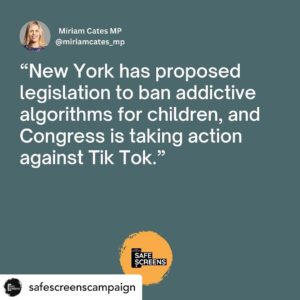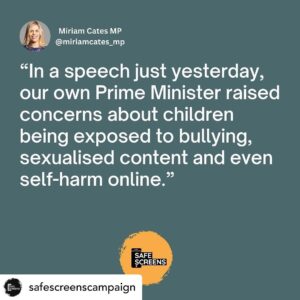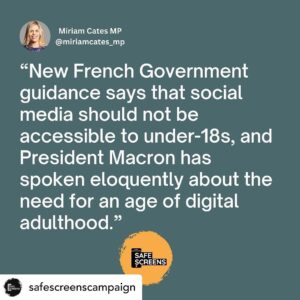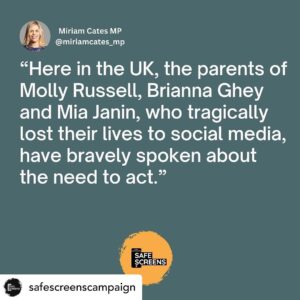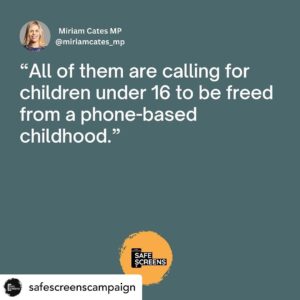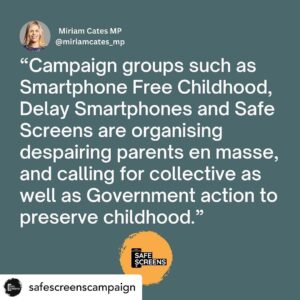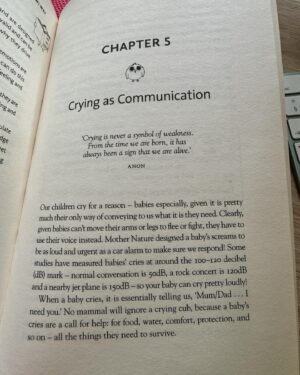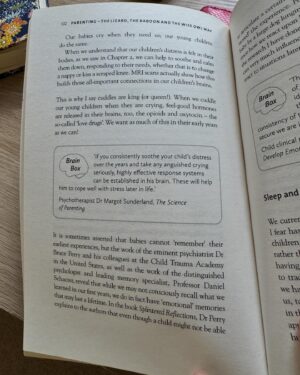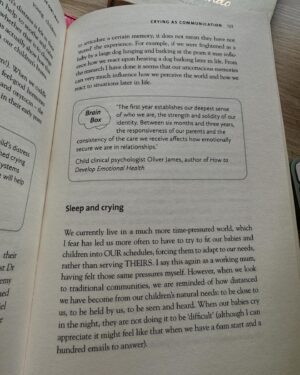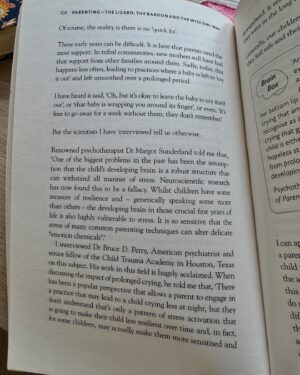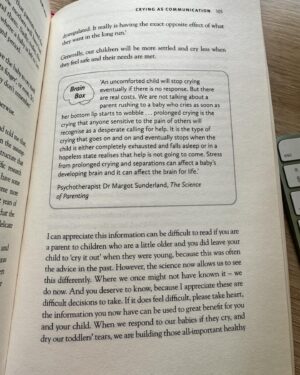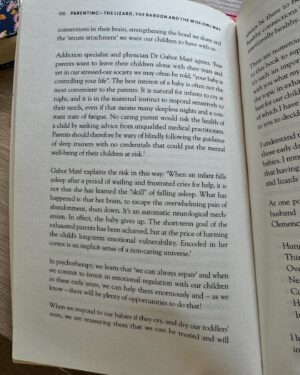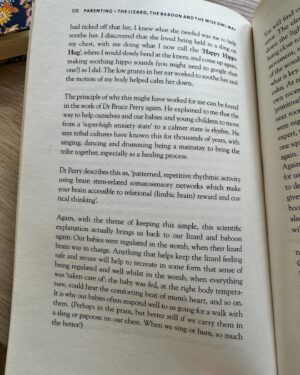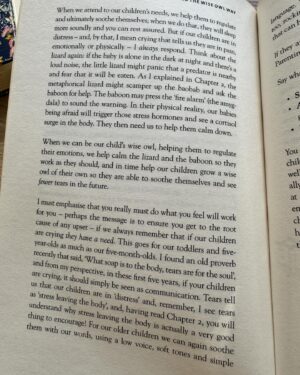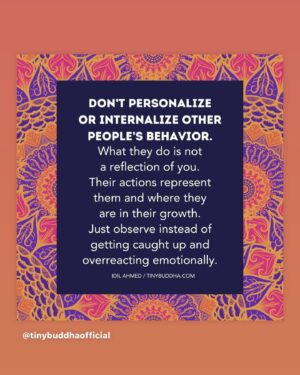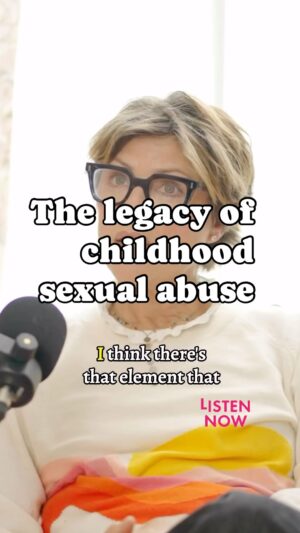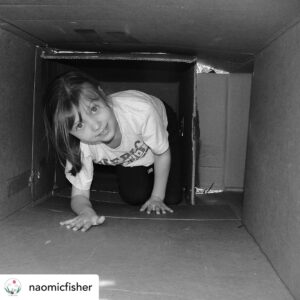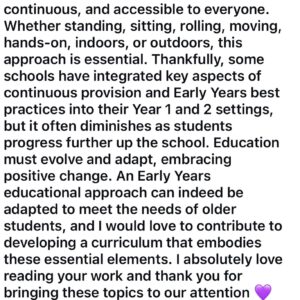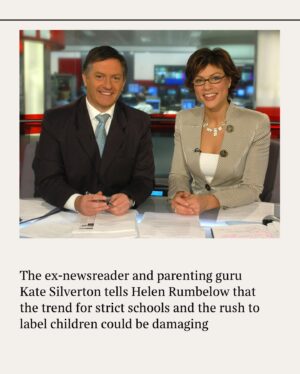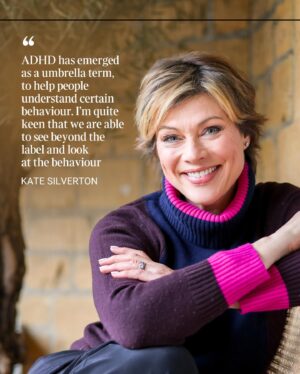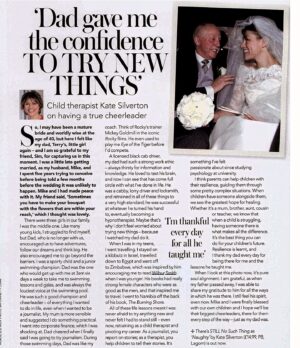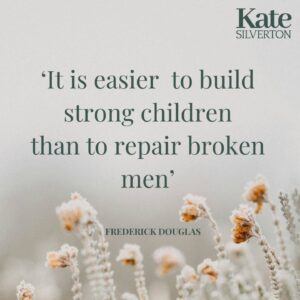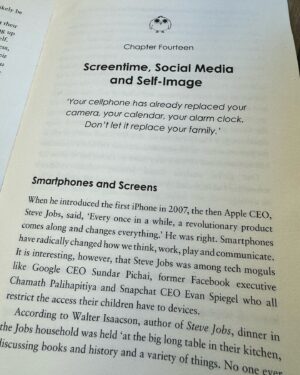Most liked photo of Kate Silverton with over 99.8K likes is the following photo

We have around 101 most liked photos of Kate Silverton with the thumbnails listed below. Click on any of them to view the full image along with its caption, like count, and a button to download the photo.

99.8K Likes – Kate Silverton Instagram
Caption :Likes : 99829

12.9K Likes – Kate Silverton Instagram
Caption : Catherine, Princess of Wales has taken the brave step to share what is an incredibly personal message with the world. I share the great shock many of us I imagine felt as she revealed the news that she is undergoing chemotherapy following the major abdominal surgery she underwent in January. I am using this picture of her, taken by @chrisjacksongetty as it captures the essence of a woman I hugely admire and have had the privilege to work alongside. She is strong, compassionate, intelligent and as beautiful inside as she is in person. To know first-hand how gracious, and how kind she is – and how she puts everyone else first, not least her children – leads to great sorrow that she has had to endure the level of intrusion into her well-being and health while trying to remain strong for herself and her family. I am sure I join everyone tonight in wishing her and her family our love and wishes that she may now be left to a peaceful and private recovery. @princeandprincessofwales @earlychildhood #princess #princessofwales #kateLikes : 12921
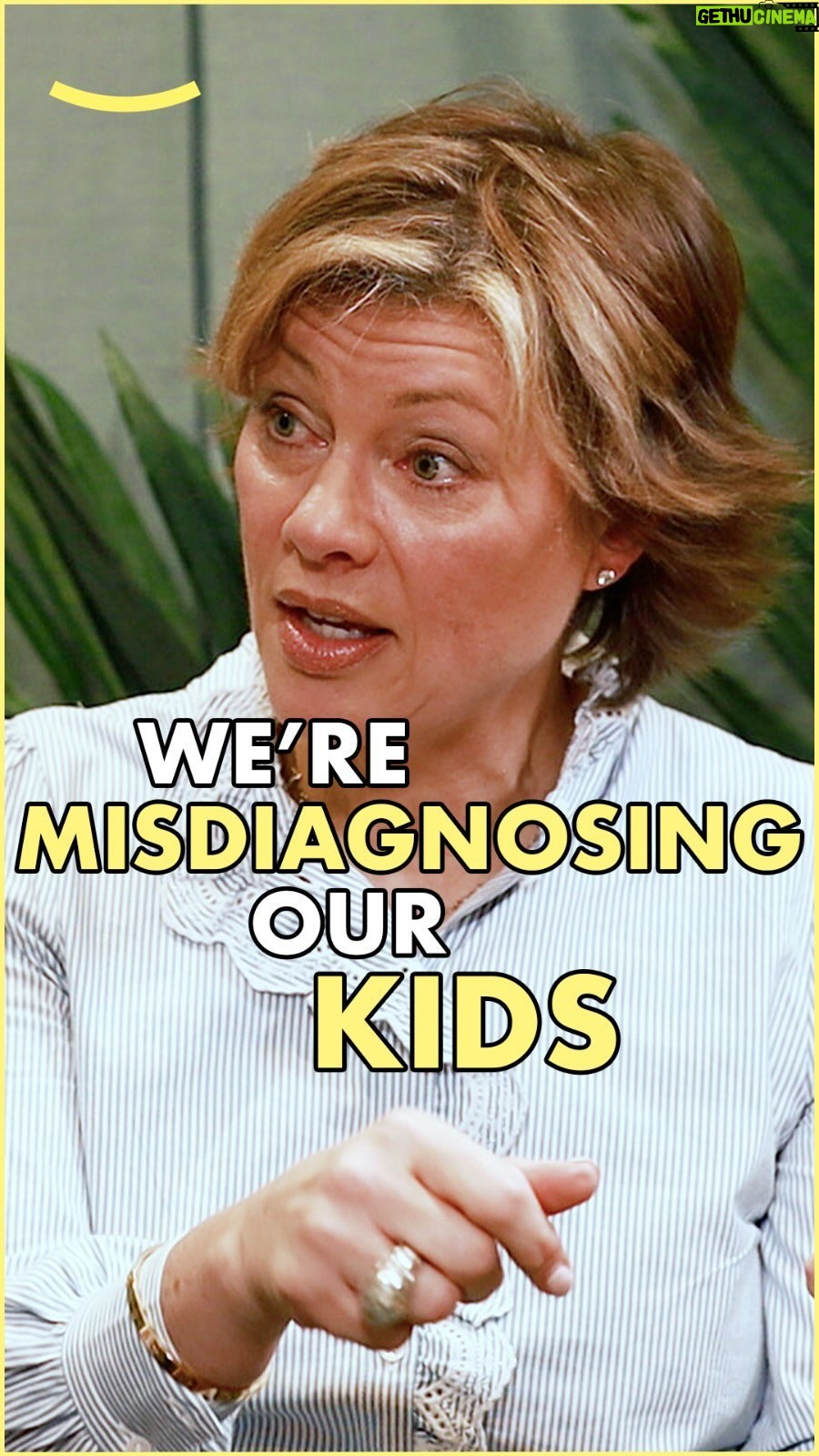
9.7K Likes – Kate Silverton Instagram
Caption : Did you learn to regulate your emotions as a child? Broadcaster turned child therapist @KateSilverton says our ability to regulate our emotions has been found to be the best indicator of future happiness. In this chat with Fearne, Kate definitively explains why it’s never too late to change your relationship with your kids regardless of how much you think you’ve already messed up. Kate talks through why it’s not about changing our children, it’s about changing their environment. Similarly, it’s not that you’re bad at parenting, it’s that you’re being expected to parent while under often more stress and with less community support. Fearne and Kate also chat about why all of these conversations are relevant even if you’re not a parent, because all these things – soothing anxiety, acknowledging emotions, cultivating resilience – also relate to our relationships with our own parents, and ourselves… Plus, Kate gives her take on how best to help children with neurodiversity, and how screens are really affecting our brains. Available to watch now wherever you get your podcasts or watch on YouTube 🫶 Kate’s book, There’s Still No Such Thing As Naughty, is out on the March 28th.Likes : 9707

6.4K Likes – Kate Silverton Instagram
Caption : What does friendship mean to you ? My best friend just sent me this .. I love it – who will you send it to? ♥️ #friendship #love #relationshipsLikes : 6383
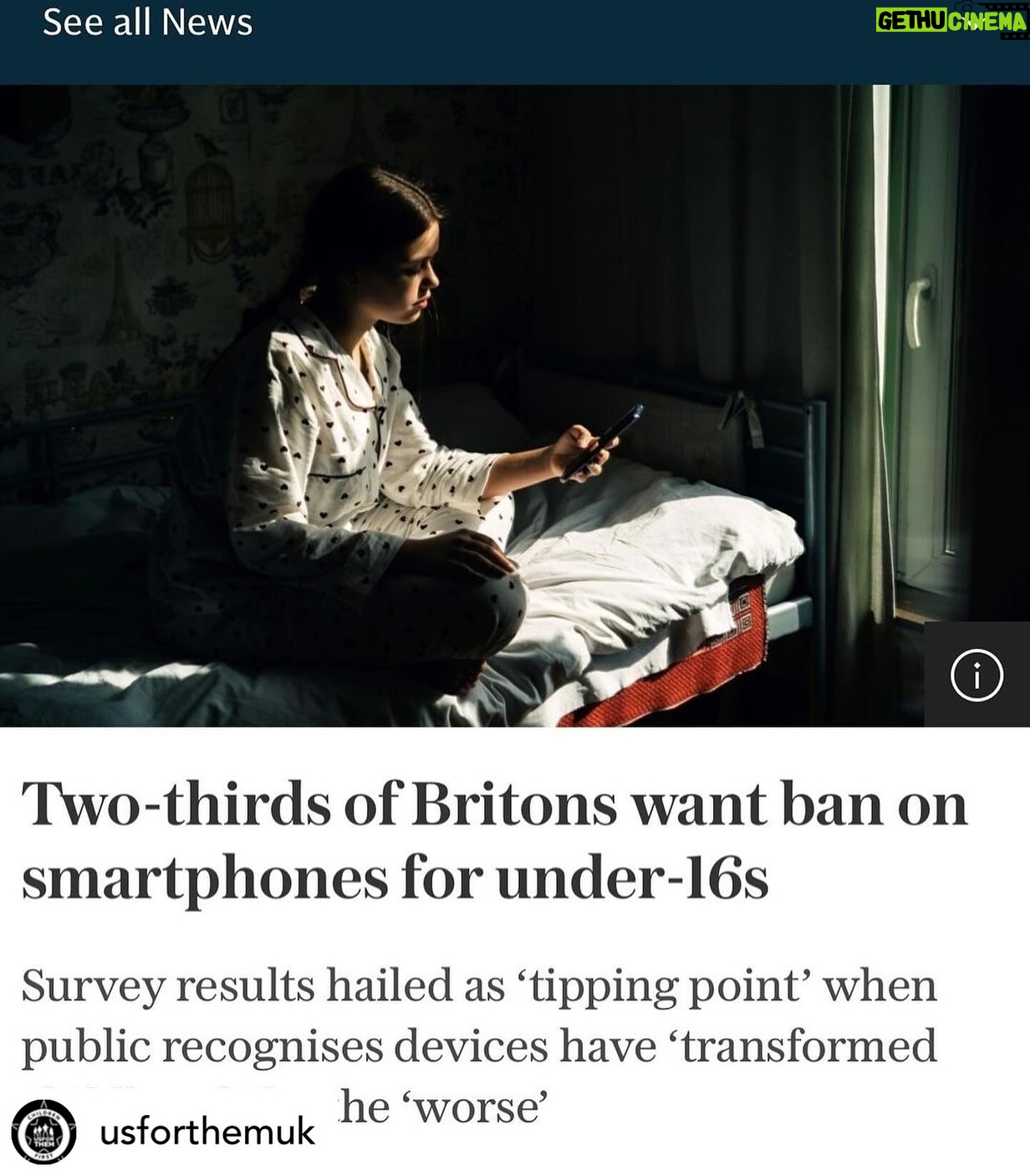
6.4K Likes – Kate Silverton Instagram
Caption : Congratulations to the hard working parents and organisations committed to raising awareness around the impact on our children ( and their still developing brains ) of smartphone use … I researched this topic for my book and reference the works of @usforthemuk and am keen to support, including more recently @smartphonefreechildhood Once we know … we cannot ‘unknow’ … repost @usforthemuk When we launched our safescreens.org campaign in December 2022 many told us we’d struggle for support and that it would be impossible to get smartphones out of the hands of children. Not so now. We’re delighted to see reports such as this which confirm that a majority of parents would now welcome help in protecting children from rapacious Big Tech. It’s time to restrict the supply of smartphones to U16s. Join us at www.safescreens.org @telegraph #safescreens #healthytech #smartphones #safescreensforteensLikes : 6376

5.6K Likes – Kate Silverton Instagram
Caption : Amen… Leave me a 🙏🏼♥️ if this resonates #grace #forgiveness #mentalhealth #relationships #relationshipgoals #lifeLikes : 5609

5.3K Likes – Kate Silverton Instagram
Caption : Once I discovered that my children’s brains developed in ‘sequence’ it explained so much about my children’s behaviour. When I understood that the parts of our brain that regulate big emotions are not fully developed until we are in our twenties, a lightbulb went off – I could suddenly understand why my toddler was ‘tantruming’ and later, why my pre-teen seemed intent on pushing me away … When we understand our children from the perspective of their having a less developed, more immature brain – a brain that is still LEARNING how to regulate big emotions like anger, fear and excitement, so much of their big, irrational, and erratic behaviour, makes sense. It’s our JOB as parents, to help our children’s brains to develop healthily and this means we must teach our children ( and their brains ), by modelling the regulated behaviour we want to see – not the dysregulated behaviour that we don’t When we gift our children our calm – even when their world seems in chaos – we give them a gift for life. The psychologist Dr Allan Schore says enhancing self-regulation should be considered the whole of child development. Why? Because he says ‘just about every psychiatric disorder shows problems in emotional dysregulation’ If you want to ensure your child’s good future mental health – you need to ditch the concept of ‘naughty’ and learn the neurobiology that explains their behaviour instead . In my latest book ‘there’s still no such thing as naughty’ I show you how to support your child and teach them how to regulate big emotions – even, and especially, anger. In doing so you will support your children’s future happiness, and healthy mental health – as well as your own #parenting #parentinghacks #parentingtips #mentalhealth #mentalhealthawarenessLikes : 5339

5.1K Likes – Kate Silverton Instagram
Caption : Tomorrow on the Happy Place podcast we’re joined by broadcaster turned child therapist, Kate Silverton. Ever wonder about the key to future happiness? According to @katesilverton, it starts with emotional regulation from childhood. Join Fearne and Kate as they unravel emotional wellbeing and why it’s never too late to rewrite your parenting script. Plus, get ready for Kate’s insights on supporting neurodiverse children and the real deal with screens and our brains. Avilable to listen and watch tomorrow. Monday 18th March ✨Likes : 5120

4.7K Likes – Kate Silverton Instagram
Caption : … and here’s another @themumclub THIS … and YES .. I will post thoughts in a reel on this – such an important post for women and mothers everywhere … We CAN do it all … just not at the same time #internationalwomensdayLikes : 4651

4.6K Likes – Kate Silverton Instagram
Caption : What will your ‘second act’ entail? If you are having second thoughts about your career or are ready for a change … training to become a children’s counsellor or psychotherapist is something I can whole-heartedly recommend … I trained with @_place2be and @traumainformedschoolsuk and @instituteforarts all of whom I can commend highly Check out their websites, see where you feel ‘called’ and many will hold ‘taster’ days for you to ‘try before you commit’ Leave me a message if you are thinking of making the change, what might be stopping you, and what other areas of life bring you joy. Life is too short not to be doing something you love .. follow your heart and you won’t go far wrong POLL: Are you ready for a career change ?Likes : 4554
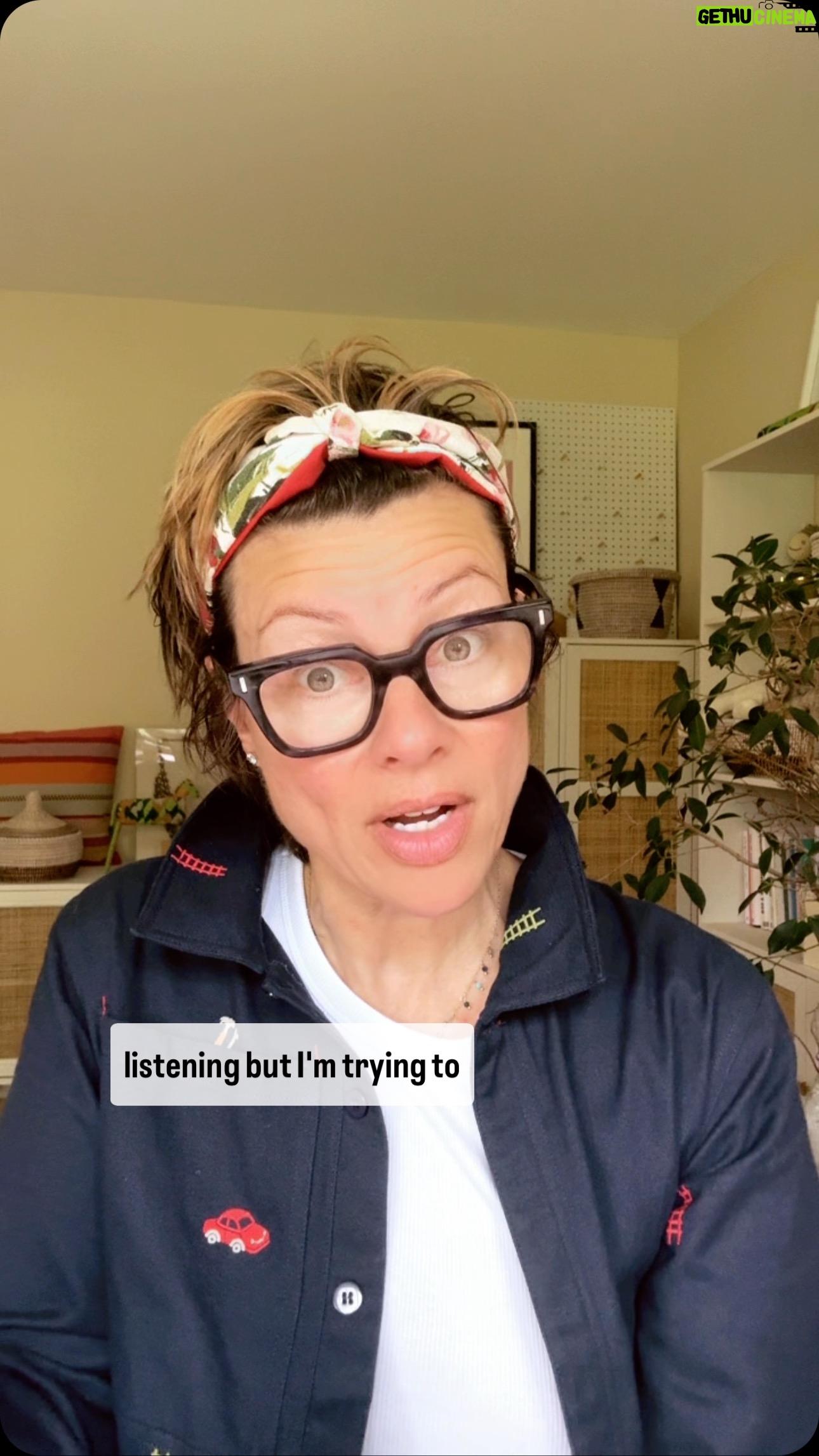
4.5K Likes – Kate Silverton Instagram
Caption : As parents we always want to alleviate our children’s worries and wobbles … of course we do, we never want to see our children in distress… but if we are too quick to try to FIX the problem – it doesn’t necessarily build resilience ( we want to help our children to find solutions ) and it can leave big feelings left ‘unexpressed’ and our child feeling unheard. It’s why, as I explain in my book, it’s ok to ‘press into the emotional pain’ a child might be carrying – not because we are mean, but because it helps our children to sit with and ultimately work through big and often difficult emotions – but only with us by their side, listening, offering little other than our empathy and understanding. We might say ‘oh my goodness that sounds difficult I wonder what that was like for you?’ Or ‘I imagine that must have felt really embarrassing I am so sorry you had to go through that alone today’ or ‘oh wow I can feel your hurt right here in my chest.. where did you feel it?’ Having what I call conversations that count, where we open up what may feel like painful conversations rather than shutting them down – actually helps to ‘exorcise’ difficult feelings and is much more likely to have our children feeling relieved of them and build resilience in time as our children realise they can come to us when they feel sad / worried / anxious – and we will offer them the space to explore the feelings and THEN support them to use their ‘little owl ‘ ( the pre frontal cortex) to find the solution themselves … I explain all this in detail in the book … ‘there’s STILL no such thing as naughty’ … it helps us to lend our wise owl in our children’s moments of overwhelm and demonstrates that, even in the most painful moments, they can still come through #parenting #parentingtips #anxiety #compassion #feelingsLikes : 4546

4.4K Likes – Kate Silverton Instagram
Caption : ALL behaviour is communication. 👍 It’s important to recognise the ‘unconscious’ drivers that lead our children to behave and do / say things we may not immediately understand Behaviour that appears irrational, or ‘out of character’ usually has its origins in our nervous system and is acted upon by the more ancient parts of our brain – the parts I visualise as a little skittish lizard If our children are fearful of something , they ( their brain ) will understandably want to avoid it So remember to get CURIOUS – before you judge your child’s behaviour 🤔 If they are reluctant to go to school, or they are doing something that puzzles you Our first consideration should be NOT ‘they’re being naughty!’ But rather we must wonder why .. Then we can ask our children – without judgement ‘sweetheart I’m wondering about x / y … can you help me to understand?’ You can perhaps add ‘If you can help me to understand how it feels for you – then I can really help … ‘ These conversations take time and trust .. in my books I explain the importance of having the ‘ten C’s in place that will help our parenting in those moments when we’re at a loss I offer scripts / tips and tools to guide you and your child through the challenges we will all face as parents .. and see you soothing and smiling as you do! ❤️ #katesilverton ##childtherapy #getcurious #questionyourchildsbehaviour #communication #parentsevening #speaktoyourchildren #parentingtips #parentingLikes : 4379

4.1K Likes – Kate Silverton Instagram
Caption : Quick ten minute tip for both PLAY and BONDING Anything that’s patterned, repetitive and rhythmic can be very soothing for our brain stem … when this part of our brain feels soothed, it can lead to calmer more contained behaviour in our children … All you need is a ball and a small area to play ‘catch’… observe how your child throws the ball – do they engage easily, do they throw it with force, do they try to make you run for it … just notice it to yourself and remember to smile, to be playful, ‘wow you are making me run for this one !’ Or ‘ooh you are showing me you can throw it HARD!’ Then, depending on the age of your child you can throw in some reflections as I have just done with my son – who told me ‘it’s boring just throwing back and forth’ … I asked him to notice his frustration, and to see if he could work with me to find ‘flow’ in just throwing it back and forth … I explained how our brain can find it soothing when we do something together that’s in rhythm .. and we got there .. the four of us, throwing and catching the ball, mixing up the turns and finding joy in being together in flow. Being playful, having eye contact, spending just ten minutes engaged in focused play with our children can have a huge impact on their behaviour, and their ability to focus on tasks and in play. Make time to play… and see how your relationship with your child benefits – and how your mental wellbeing benefits too ♥️ Love to hear your thoughts in the comments below – what games do you play with your children that help you to find ‘flow’ #play #playfulness #parenting #parentingtips #halftermLikes : 4126
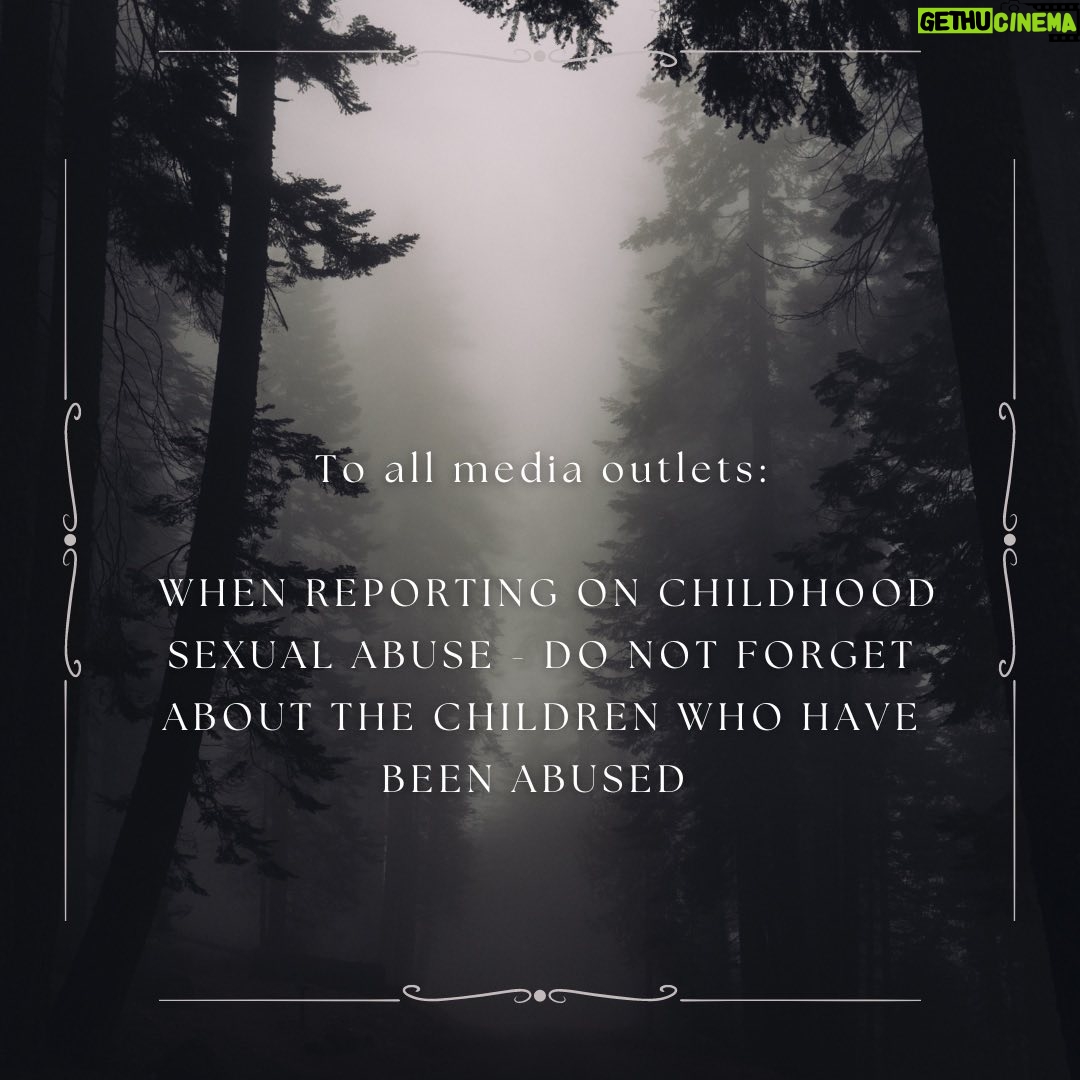
4K Likes – Kate Silverton Instagram
Caption : I don’t usually comment on news stories; trying to keep this a safe and positive space, but tonight I feel compelled to urge all News Outlets to remember the children involved in the Huw Edwards story. Childhood sexual abuse is horrific. When an adult violates a child it instils terror, confusion, grave shock, pain and often creates a devastating legacy. For images to be taken and then shared, the shame, and horror, may last a lifetime. I hope the children in the reported footage / images, may be identified, and receive the appropriate support, even though, as I type, I realise the many challenges there may be, in so many respects. For anyone who is affected by this story please do reach out to someone you feel you can trust, or to an experienced professional – or the many charities that support children – and adults – who have experienced childhood sexual abuse. @nspcc_official @napac.uk @the.greenhousebristol @oneinfourirish @thesurvivorstrustuk @thesun @dailymail @bbcnews @guardian @telegraph @itvnews @channel4news @channel5_tv #sexualabuse #trauma #traumarecoveryLikes : 3987
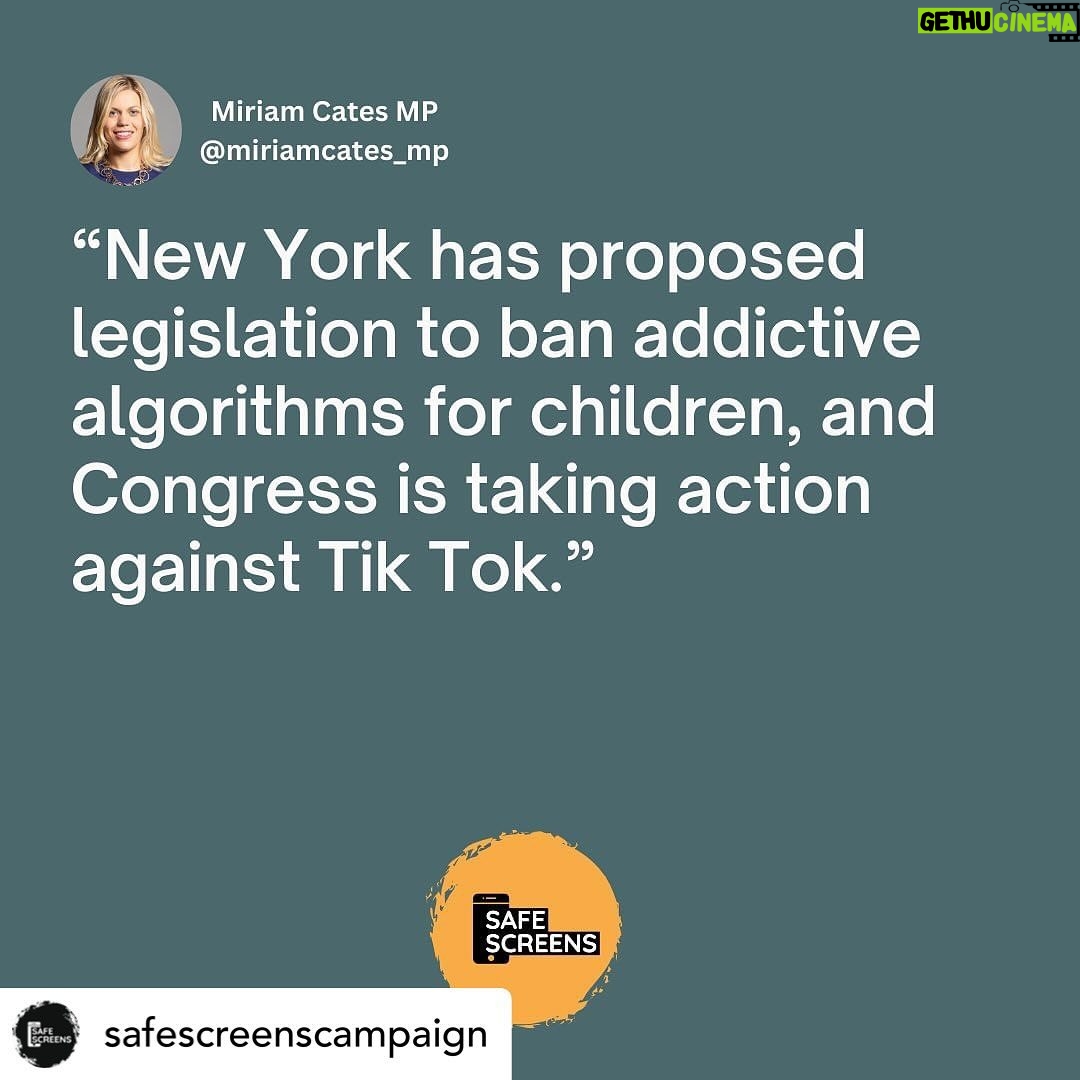
3.8K Likes – Kate Silverton Instagram
Caption : If you are in support you can see the ways in which you can help to effect change in the caption below … #repost safescreenscampaign The time is now to protect our children. The evidence of harms from smartphone addiction is overwhelming, and as a society, we cannot stand by and let this continue. Pressure is increasing to take action as we can see from Miriam Cate’s brilliant speech debate in Parliament to discuss the impact of smartphones and social media on children. Pressure is growing on our government to take action. We need action, and we need it now. If you’re ready to support this vital call for change, there are two urgent actions you can take today: 1️⃣ Use our template (see link in bio) to send a single email to all of the main political party leaders and your MP. Your voice matters, and your advocacy can make a difference. 2️⃣ Support this call by adding your name to our campaign to help us to evidence the strength of public feeling around this issue. We implore you to take action. #safescreens #safescreensforteens #regulatesmartphones #screentime #screentimeforkids #screentimelimitsLikes : 3834
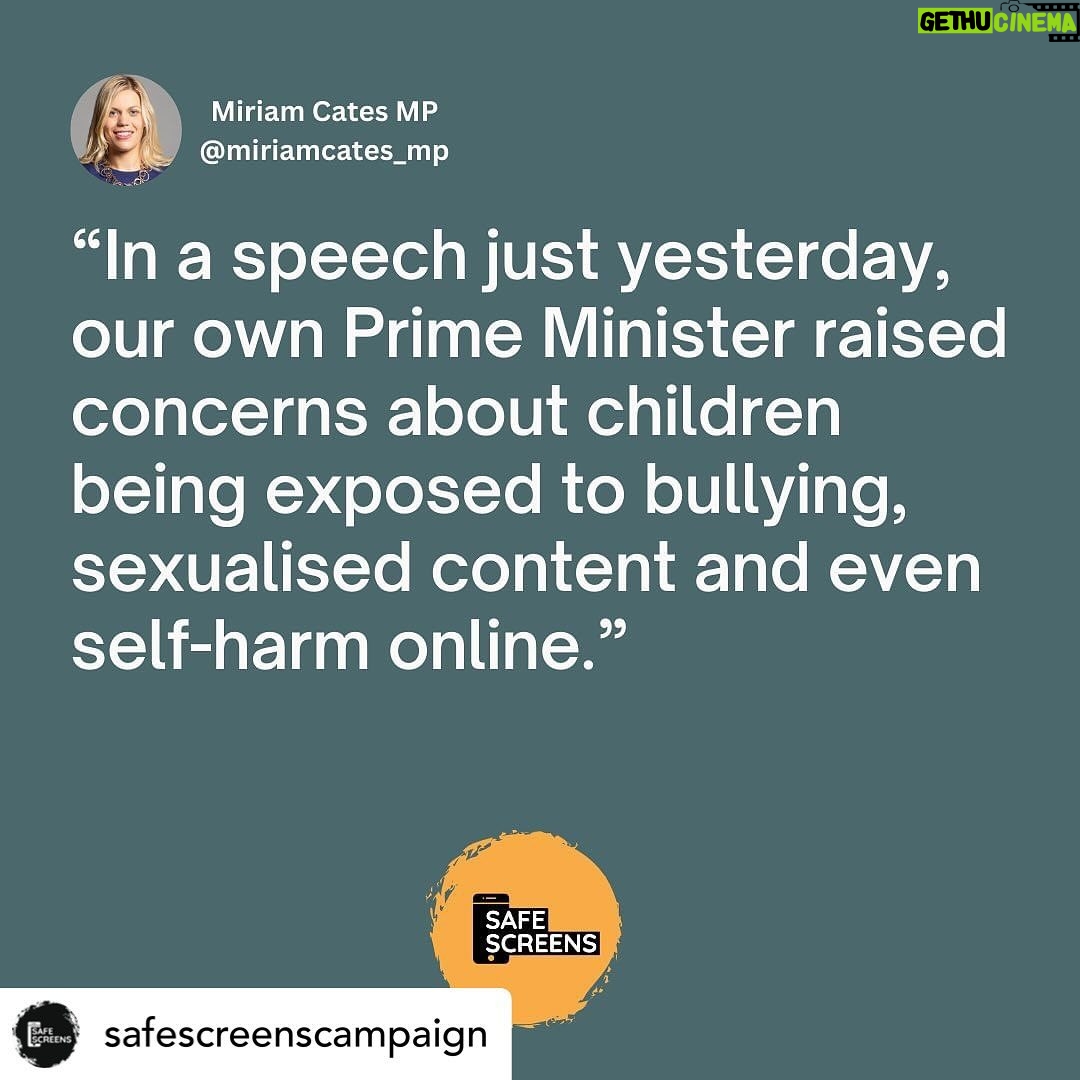
3.8K Likes – Kate Silverton Instagram
Caption : If you are in support you can see the ways in which you can help to effect change in the caption below … #repost safescreenscampaign The time is now to protect our children. The evidence of harms from smartphone addiction is overwhelming, and as a society, we cannot stand by and let this continue. Pressure is increasing to take action as we can see from Miriam Cate’s brilliant speech debate in Parliament to discuss the impact of smartphones and social media on children. Pressure is growing on our government to take action. We need action, and we need it now. If you’re ready to support this vital call for change, there are two urgent actions you can take today: 1️⃣ Use our template (see link in bio) to send a single email to all of the main political party leaders and your MP. Your voice matters, and your advocacy can make a difference. 2️⃣ Support this call by adding your name to our campaign to help us to evidence the strength of public feeling around this issue. We implore you to take action. #safescreens #safescreensforteens #regulatesmartphones #screentime #screentimeforkids #screentimelimitsLikes : 3834
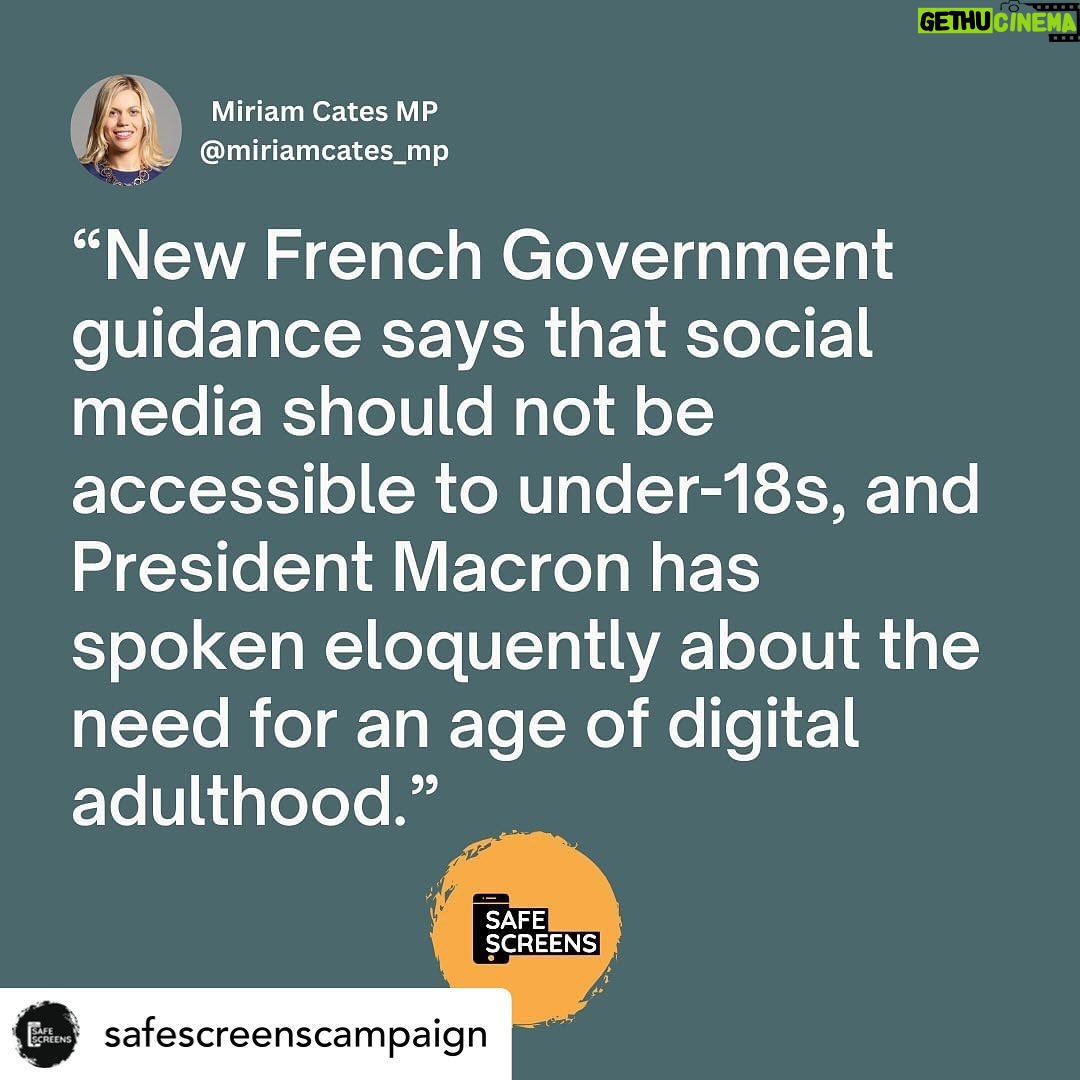
3.8K Likes – Kate Silverton Instagram
Caption : If you are in support you can see the ways in which you can help to effect change in the caption below … #repost safescreenscampaign The time is now to protect our children. The evidence of harms from smartphone addiction is overwhelming, and as a society, we cannot stand by and let this continue. Pressure is increasing to take action as we can see from Miriam Cate’s brilliant speech debate in Parliament to discuss the impact of smartphones and social media on children. Pressure is growing on our government to take action. We need action, and we need it now. If you’re ready to support this vital call for change, there are two urgent actions you can take today: 1️⃣ Use our template (see link in bio) to send a single email to all of the main political party leaders and your MP. Your voice matters, and your advocacy can make a difference. 2️⃣ Support this call by adding your name to our campaign to help us to evidence the strength of public feeling around this issue. We implore you to take action. #safescreens #safescreensforteens #regulatesmartphones #screentime #screentimeforkids #screentimelimitsLikes : 3834
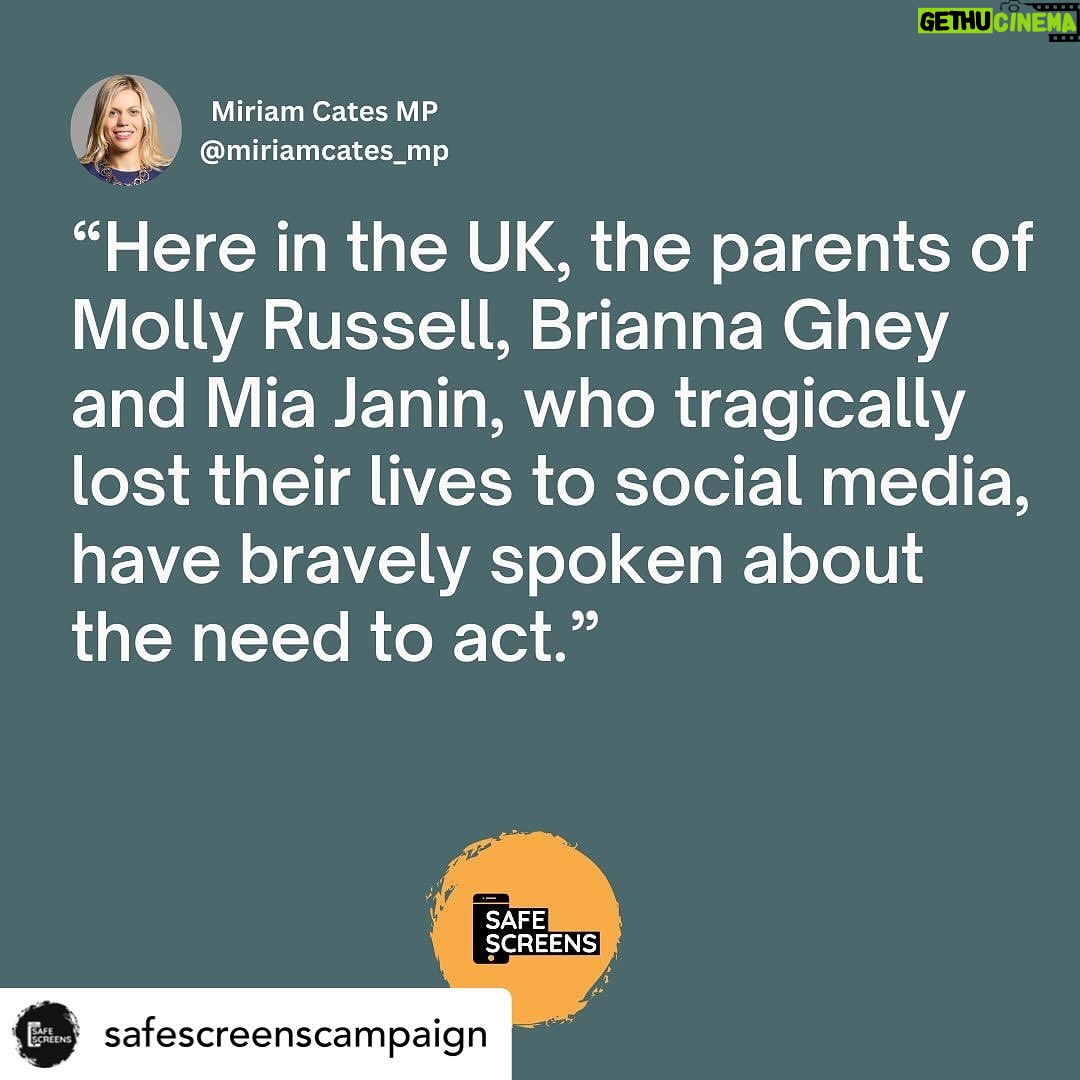
3.8K Likes – Kate Silverton Instagram
Caption : If you are in support you can see the ways in which you can help to effect change in the caption below … #repost safescreenscampaign The time is now to protect our children. The evidence of harms from smartphone addiction is overwhelming, and as a society, we cannot stand by and let this continue. Pressure is increasing to take action as we can see from Miriam Cate’s brilliant speech debate in Parliament to discuss the impact of smartphones and social media on children. Pressure is growing on our government to take action. We need action, and we need it now. If you’re ready to support this vital call for change, there are two urgent actions you can take today: 1️⃣ Use our template (see link in bio) to send a single email to all of the main political party leaders and your MP. Your voice matters, and your advocacy can make a difference. 2️⃣ Support this call by adding your name to our campaign to help us to evidence the strength of public feeling around this issue. We implore you to take action. #safescreens #safescreensforteens #regulatesmartphones #screentime #screentimeforkids #screentimelimitsLikes : 3834
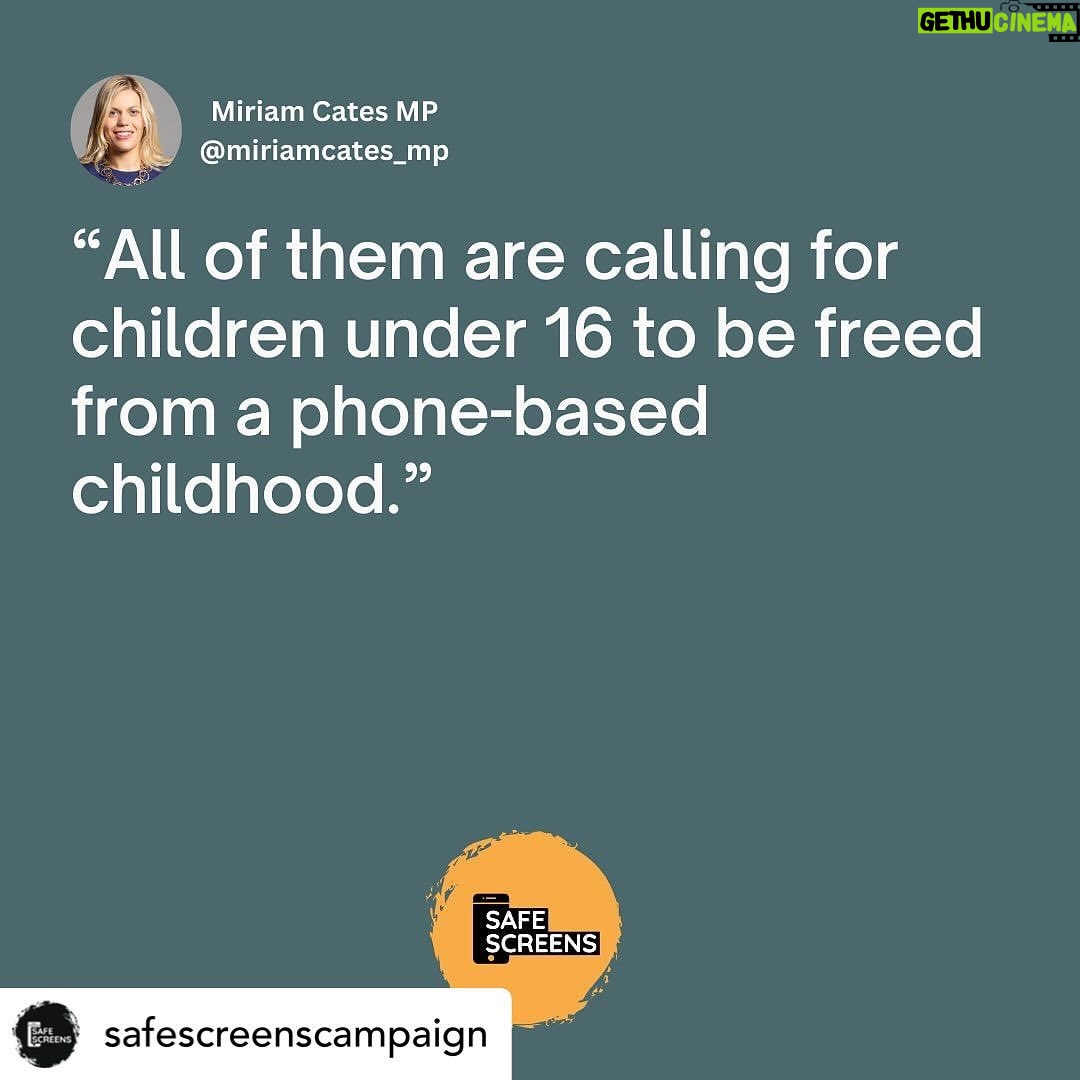
3.8K Likes – Kate Silverton Instagram
Caption : If you are in support you can see the ways in which you can help to effect change in the caption below … #repost safescreenscampaign The time is now to protect our children. The evidence of harms from smartphone addiction is overwhelming, and as a society, we cannot stand by and let this continue. Pressure is increasing to take action as we can see from Miriam Cate’s brilliant speech debate in Parliament to discuss the impact of smartphones and social media on children. Pressure is growing on our government to take action. We need action, and we need it now. If you’re ready to support this vital call for change, there are two urgent actions you can take today: 1️⃣ Use our template (see link in bio) to send a single email to all of the main political party leaders and your MP. Your voice matters, and your advocacy can make a difference. 2️⃣ Support this call by adding your name to our campaign to help us to evidence the strength of public feeling around this issue. We implore you to take action. #safescreens #safescreensforteens #regulatesmartphones #screentime #screentimeforkids #screentimelimitsLikes : 3834
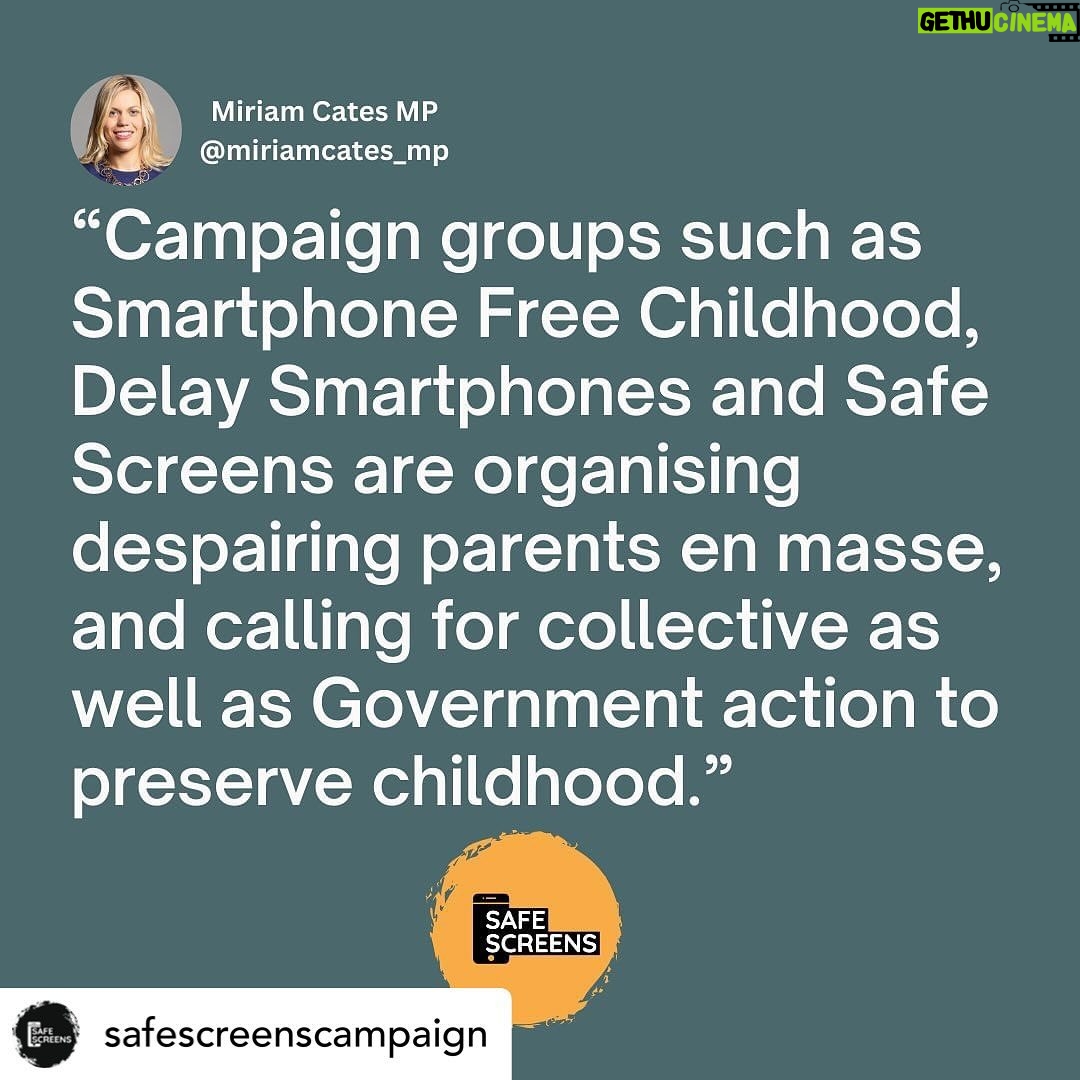
3.8K Likes – Kate Silverton Instagram
Caption : If you are in support you can see the ways in which you can help to effect change in the caption below … #repost safescreenscampaign The time is now to protect our children. The evidence of harms from smartphone addiction is overwhelming, and as a society, we cannot stand by and let this continue. Pressure is increasing to take action as we can see from Miriam Cate’s brilliant speech debate in Parliament to discuss the impact of smartphones and social media on children. Pressure is growing on our government to take action. We need action, and we need it now. If you’re ready to support this vital call for change, there are two urgent actions you can take today: 1️⃣ Use our template (see link in bio) to send a single email to all of the main political party leaders and your MP. Your voice matters, and your advocacy can make a difference. 2️⃣ Support this call by adding your name to our campaign to help us to evidence the strength of public feeling around this issue. We implore you to take action. #safescreens #safescreensforteens #regulatesmartphones #screentime #screentimeforkids #screentimelimitsLikes : 3834
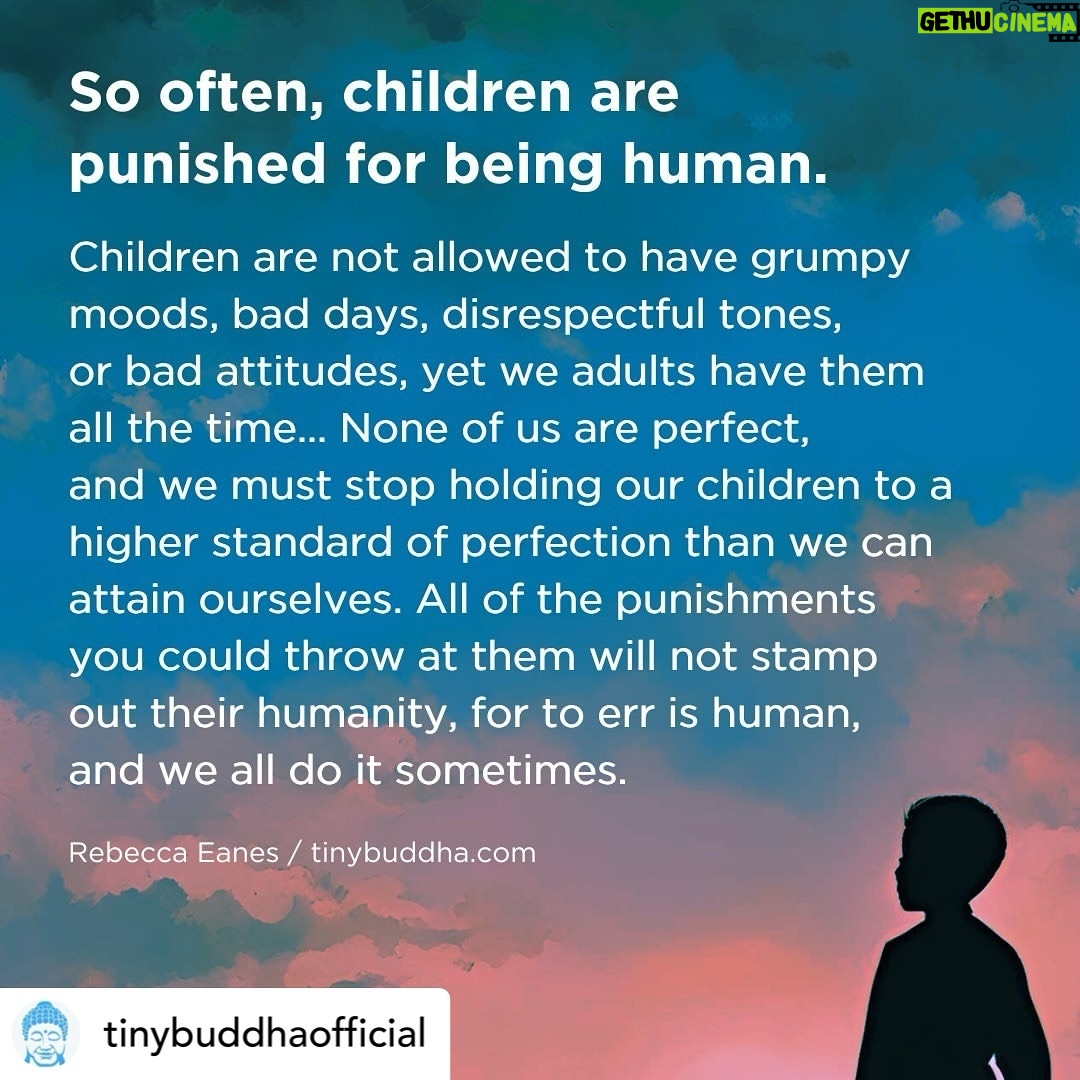
3.6K Likes – Kate Silverton Instagram
Caption : @tinybuddhaofficial “So often, children are punished for being human. Children are not allowed to have grumpy moods, bad days, disrespectful tones, or bad attitudes, yet we adults have them all the time… None of us are perfect, and we must stop holding our children to a higher standard of perfection than we can attain ourselves. All of the punishments you could throw at them will not stamp out their humanity, for to err is human, and we all do it sometimes.” ~Rebecca Eanes @rebeccaeanes I totally agree Rebecca, when we understand neurobiology and apply the science of child development we realise with profound clarity that our children are navigating life with a brain much less developed than our own … so how CAN we judge them by our own adult standards ?! #tinybuddha #quotes #dailyquotes #quotesdaily #quoteoftheday #wisdom #wordsofwisdom #wisdomquotes #dailywisdom #parenting #parentingquotes #positiveparenting #gentleparentingtipsLikes : 3617
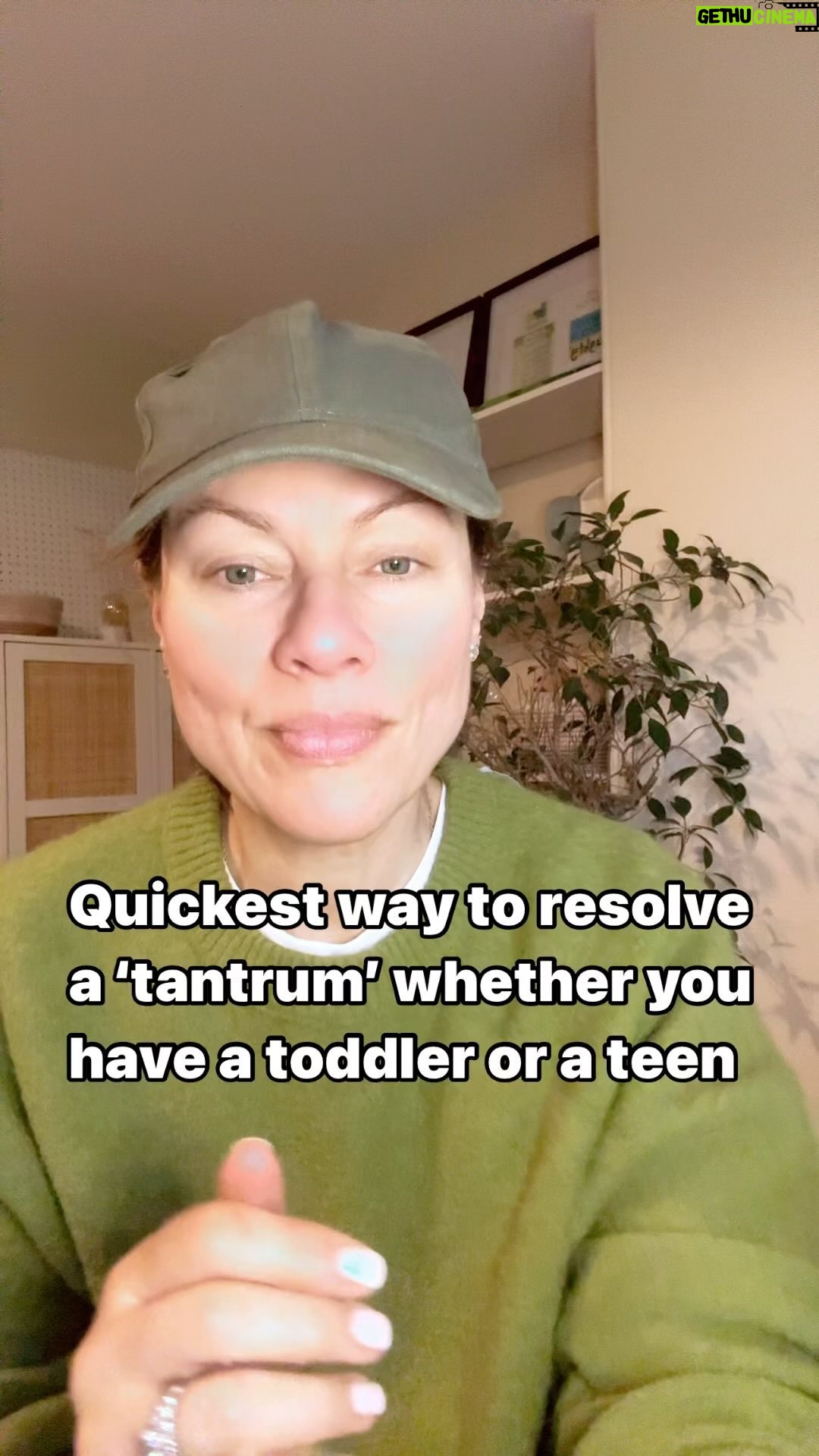
3.6K Likes – Kate Silverton Instagram
Caption : In my first book ‘there’s no such thing as naughty’ I introduced my tip S.A.S for those moments when your child is ‘spinning out’ and you’re at a loss how to engage / calm them down The quickest way is to do it is by using what we call in psychotherapy ‘affect attunement’ – essentially where you tune in to your child and how they are feeling at that moment. Ie ‘wow you are so so sad right now, come I can see that let me help ‘ Or ‘Wow you are SO CROSS! I can SEE how CrOSS you are … you wanted the cookie? I know sweetheart it’s hard .. come to mummy / daddy … I know how tough it must feel … let me help ‘ And yes I know the RAGE can seem ridiculous to us adults ‘you brought me an apple to pick up and I wanted an ORANGE! Or ‘I WANT that cereal not THAT ONE!’ Or ‘you won’t let me stay up and I am MADDDDD!’ I explain all of it in my book .. because all behaviour is communication … its understandable for children whose brains are still in development to see the world differently to us. It does not mean we give in on the cereal, or the bedtime … but we ARE going to accept that it’s hard for little people with still developing brains to hold on to big emotions and regulate their behaviour as quickly as we adults ( usually!) do! Using SAS lets your child know you GET IT… you get that they are cross / angry / upset / disappointed … and that you SEE them in their distress and you are going to help ( not by giving in on the cereal or bedtime ) but by helping them to calm down … you can only do this when you first meet them where their energy is at ( if our voices are too flat it actually can enrage that little baboon even more because he doesn’t sense that you ‘get it ) and then we use our voice and body language to bring our children back to balance, back to calm. Hopefully ending with a soothing hug.. Doing this serves your relationship for the future … it shows your child ‘I can be with you even when you feel at your worst’ and … ‘I get that it is hard when we are disappointed ‘ but it’s ok, I am going to help you come through … #parenting #parentingtips #tantrums #emotions #overwhelmedmom #overwhelmed #mentalhealth #mentalhealthawarenessLikes : 3579

3.2K Likes – Kate Silverton Instagram
Caption : How often do you find it easy to express how you REALLY feel when someone asks if you’re ok? I’m a child therapist as well as a mother with two young kids. I know how difficult it can be for our children to find the words to explain how they’re REALLY feeling … how easy do you find it when someone asks if you’re ok…? Finding quick and safe ways for our children to SHOW us how they feel is a sure fire way to being more able to have conversations that count … the kind of conversations where kids can share how they’re really feeling – without the need for SHOWING you with big, erratic behaviour instead. All behaviour is communication … so finding ways for your child to show you using tips like #codered is a much easier – safer (!) way to ask for help instead. Love to hear in the comments what you do to help your child have those all important conversations and if you find this helpful do share with friends who might find it useful too #theresnosuchthingasnaughty #anxiety #anxietyrelief #anger #parentingtips #therapy #mentalhealthLikes : 3205

3.1K Likes – Kate Silverton Instagram
Caption : @bbclooknorth have just called to ask me how it feels to know that my books have inspired Tina Cox @staugustinescvastamford to change the school’s behaviour policy to remove shame-based policies and introduce more compassionate inquiry instead … it’s an understatement to say I am THRILLED… it can take great courage to turn ‘old school’ attitudes towards discipline on their head ( discipline should mean to teach and support the student – rather than punish ). Just as we do not shame a child if they get sum or spelling wrong – so neither should we shame a child when they make a mistake with their behaviour … children learn best when we model the behaviour we want to see … not demonstrate the behaviour that we don’t. You can see the full interview and report on @bbclooknorth tomorrow from 18.30 and on @bbciplayer from 19.05 🙏🏼 #education #behaviour #behaviourchange #teaching #emotions #mentalhealth #childrensmentalhealth #theresnosuchthingasnaughtyLikes : 3126

3.1K Likes – Kate Silverton Instagram
Caption : Quick hacks for #mentalhealth in #mentalhealthawarenessmonth When we are caught in the grip of a ‘stress response’ we may think of ourselves as experiencing a neurochemical wildfire as our system gears up to confront what our nervous system and brain have perceived to be threatening – whether that’s a ‘threatening’ thought or something active that’s happening to or around us. It can make us feel very anxious and see us experiencing uncomfortable sensations inside One quick way to ‘intervene’ and trigger the release of anti-anxiety chemicals is to HUM! The vibrations are thought to trigger our vagus nerve – part of the parasympathetic nervous system whose job it is to calm us down after we have experienced short bursts of stress. Humming with and alongside our children can help their nervous system to feel soothed too, and in addition because it can evoke times past when we hummed to them as babies Hum as loudly or softly and for as long as you like .. and, if you want to try it with a trusted friend or partner, hum together and see if you can match each others tone.. or have your child try to join you too ( if it feels silly get playful with it – it’s also fun!) notice any shifts in your body as you do… it can be a rather bonding and beautiful thing to share .. mentalhealthawareness #mentalhealth #nervoussystem #vagus #vagusnerve #anxiety #vagusnervestimulationLikes : 3078
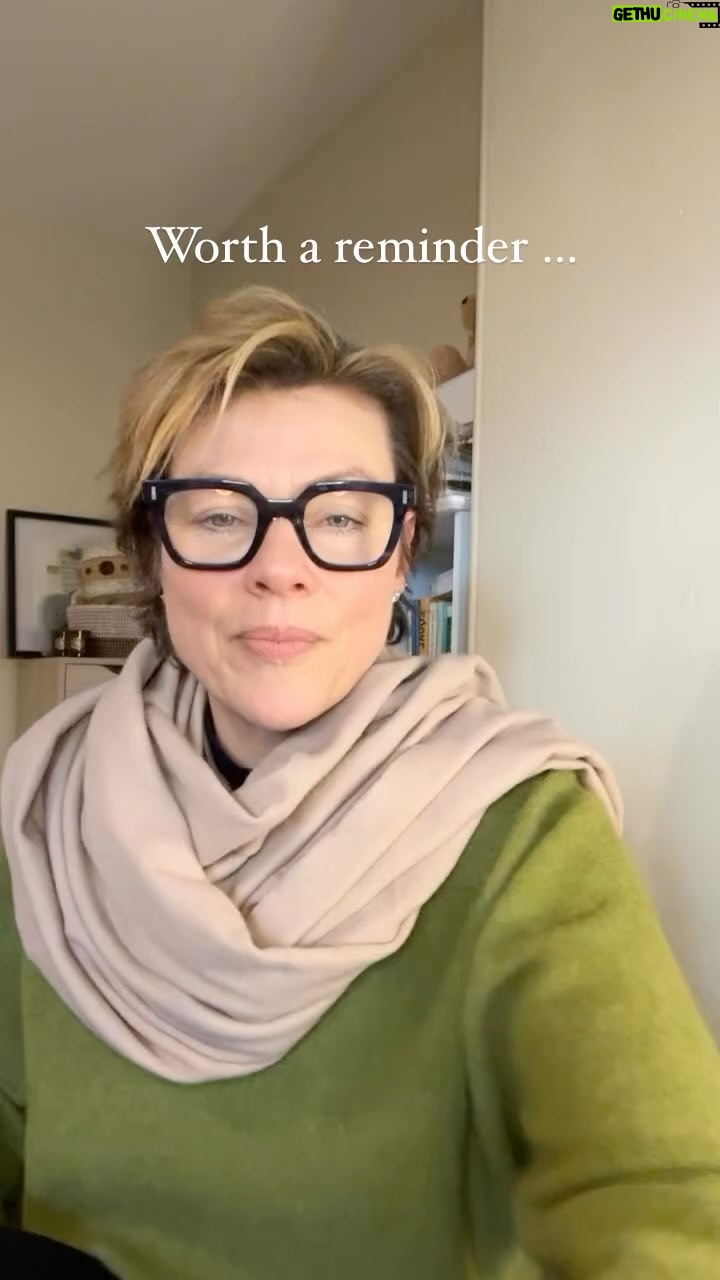
2.9K Likes – Kate Silverton Instagram
Caption : Worth a reminder … To soothe an anxious child we must lend our calm not join their chaos … it means we must regulate ourselves before we ‘step into the fray’ – a ‘palm pause’ or just taking a deep breath can help … then slowly, and soothingly let your child know ‘it’s ok…I’ve got you, I’m here…’ depending on your child’s needs you can offer a comforting hug… or the comfort of your presence … I talk ALOT about this in my book as it’s a question parents most often ask. The true path to helping our children to achieve good mental health is in supporting them to regulate their big emotions – and to manage stress. It doesn’t happen overnight … but by working somatically with your child … helping them to find wonderful ways to ‘exorcise’ and release stress energy safely.. they can learn how to bring their nervous system back to calm … practice will ultimately make ‘perfect’ ( although just as there’s no such thing as ‘naughty’ there’s no such thing as perfect either 😉 ) much more on this to come… but for now just know that the more you can regulate your own emotions … the more you will help your child to regulate theirs xx #parenting #parentingtips #mentalhealthawareness #childrensmentalhealthweek #childrens #nervous #anxiety #anxietyrelief #anxietysupport #anxietyawareness #theresnosuchthingasnaughtyLikes : 2909

2.8K Likes – Kate Silverton Instagram
Caption : This is one of the most important reels you will watch today It explains everything about our lives – our selves – and our soul In therapy we learn to grieve our losses fully and deeply – and then to heal If you feel called to it – do follow @somaticexperiencingint for more insight I am an integrative child therapist and this is in part how I work clinically, with children, as I have learned how to do this work myself. My writing is informed by all that I have learned from my research and academic studies – but is also informed by personal experience and the experience I have witnessed in the young clients in my care #trauma #traumarecovery #healing #traumahealing #therapyLikes : 2766
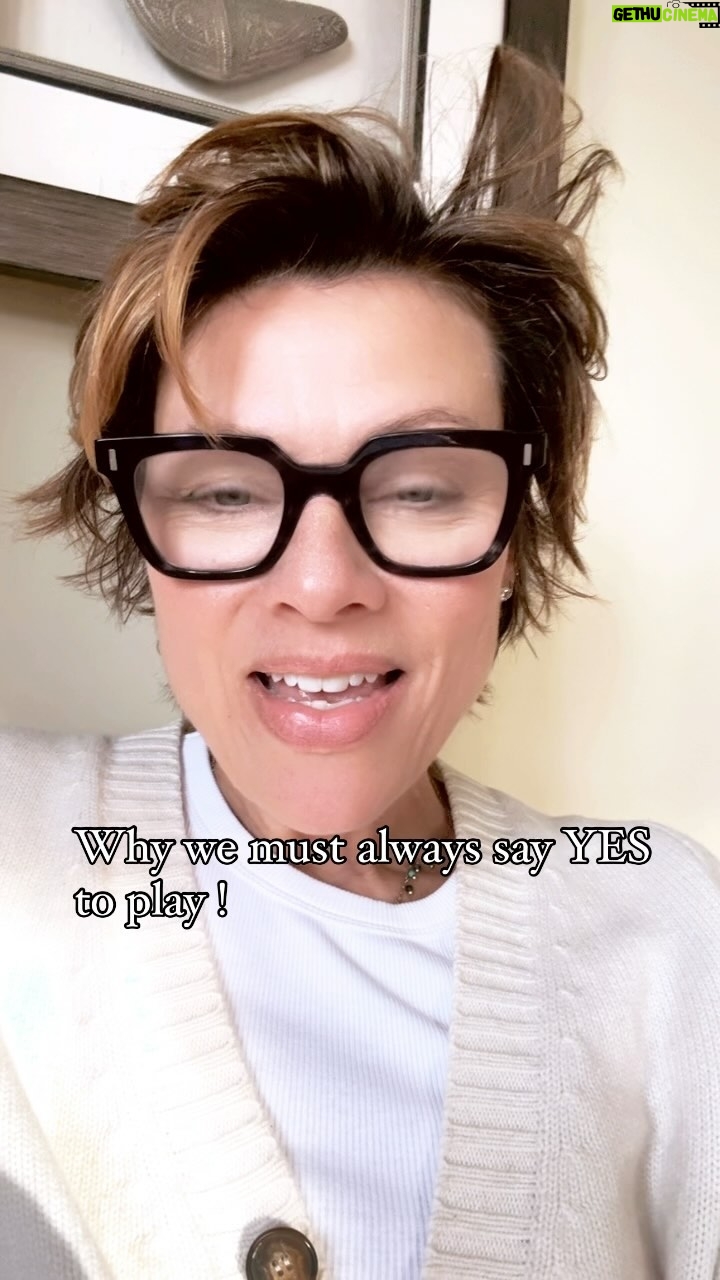
2.7K Likes – Kate Silverton Instagram
Caption : Top ten tips for play – put your child in charge – play is not fun if adults are making all the rules ! – the only adult ‘rule’ is no hitting/ hurting and keeping each other safe – if your child is struggling to know what they want to do .. you can make gentle suggestions ‘ hmm, we could play with your toys, make up a puppet game, bake a cake, have a ‘battle’, play outside … but then let your child decide – play does not have to take hours .. very often ten minutes of your undivided attention can be enough for children to continue the play themselves as they get into ‘flow’… – play boosts much needed ‘feel good chemicals’ that block stress and remind us and our children of how much we love each other Play boosts important hormones that ‘fertilise’ our children’s brains and strengthen our connection All great for our relationship – and our children’s mental health As George Bernard Shaw said ‘we don’t stop playing because we grow old, we grow old because we stop playing’ Many more tips can be found in my book ‘there’s still no such thing as naughty’ link in my bio: Love to hear your comments and thoughts on play too – and the games your children love to play ! #play #parenting #parentingtips #parentinghacks #mentalhealthLikes : 2698

2.6K Likes – Kate Silverton Instagram
Caption : Anxiety in and of itself is a normal part of what it is to be human. We ALL get anxious sometimes. Its our brain and nervous system’s way of telling us ‘I don’t feel safe’ Whether it’s an upcoming spelling test or a snarling dog lunging at us in the street – our brain and body react the same way – we experience our ‘stress response’ which gears us up to fight / flee / faint or freeze… we are designed to ACT. so, if we are worrying at night about all the things we have to do, about the exam we have or the test we have to take… our nervous system still responds … so we need to help ourselves work THROUGH and release the energy that gets created as a result, by the stress response .. we need to let that anxiety / stress out ! If we don’t, then our worries can do what I think of as get stacked up on top of one another and that’s when we start to feel overwhelmed … so doing any somatic exercises – things we can do physically – anything that is patterned, repetitive, and rhythmic , help to soothe our nervous system and bring us back to balance .. they effectively exorcise the worries we have within. The butterfly hug was developed by Lucina Artigas and Ignacio Jarero, during their work with survivors of a hurricane in Mexico .. check out their work and the butterfly hug and find exercises that EMPOWER you to work WITH your anxiety … not feel overwhelmed by it ♥️ Do TAG anyone in the comments you think might benefit from knowing this #anxiety #anxietyrelief #mentalhealth #parentingtipsLikes : 2642
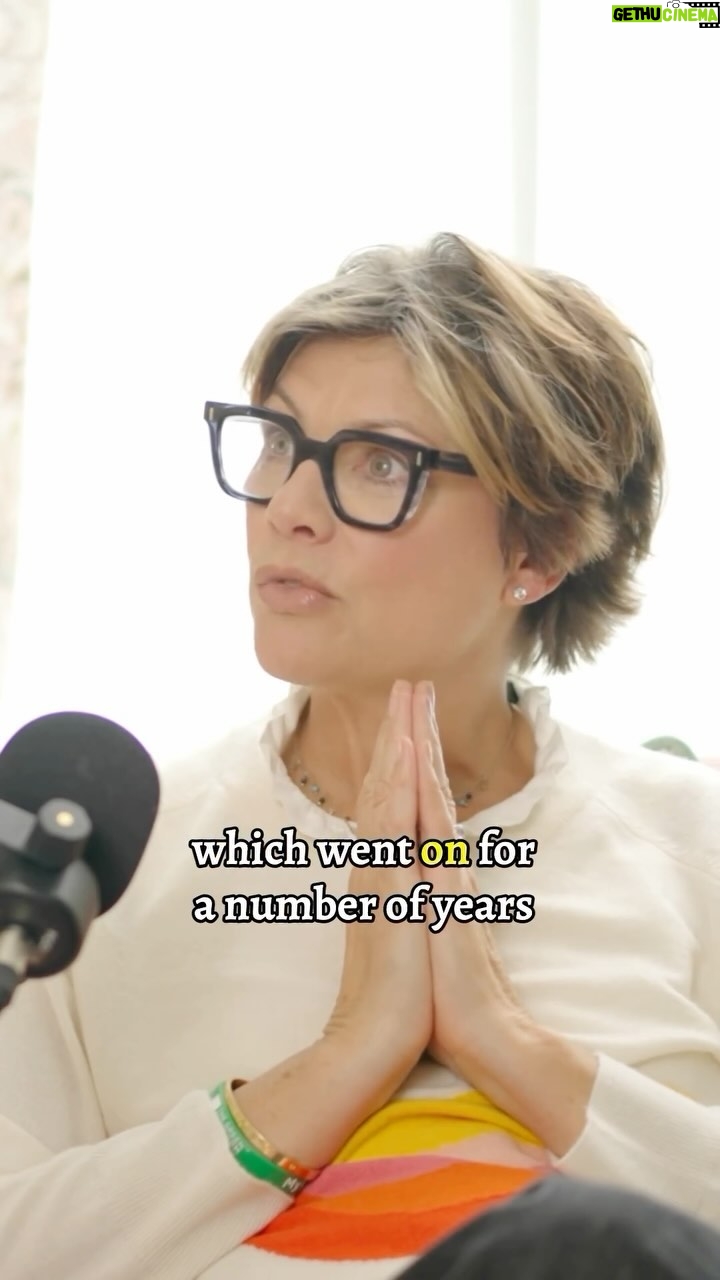
2.5K Likes – Kate Silverton Instagram
Caption : I am hugely grateful to Kate for her courage and generosity in this episode of the podcast ✨💕 We had both a tender and painful conversation. Although you may not have experienced the trauma of sexual abuse as a child (or you may have) you will recognise how our early strategies to manage pain are often maladaptive and they live on in us until we face the pain. As you can intimate from this reel, Kate explains how parts of ourselves become exiled in order to cut off from devastating abuse. The work is to find a way to integrate that fragile part “back into the fold..” To learn how Kate did this work find the link to the full episode in my stories or head to your favourite podcast platform. This episode is also available to watch on my YouTube Channel 🎧🎙️Likes : 2544

2.5K Likes – Kate Silverton Instagram
Caption : Best selling Broadcaster and child therapist Kate Silverton explains the butterfly hug 🦋 #virginradiouk #chrisevansbreakfastshow #katesilverton #butterflyhugLikes : 2537

2.5K Likes – Kate Silverton Instagram
Caption : I’ll be on @thismorning tomorrow to discuss #screentime #smartphone and hearing how the principal of St Patrick’s national School in Greystones, County Wicklow has introduced a voluntary ‘ban’ on smartphones for children under 12. @guardian she explained how she had reached out to parents having witnessed a growing concern among parents and teachers about the levels of anxiety among young children. She said ‘We felt we needed to take action, prompting all eight primary schools in the Greystones and Delgany area to jointly establish the It Takes A Village initiative, born out of a deep-rooted commitment to ensure the wellbeing of our children’ She added that ‘we realised childhood seems to be getting shorter and shorter. Children as young as nine years old were requesting smartphones and feeling pressure from other children to have access to apps and be constantly online. It was evident that these children were not emotionally ready to navigate the complexities of these devices and the digital world. The anxieties arising from early exposure to adult content online were becoming palpable and, as a community, we knew we had to act’ I fully support the movement that is fast gaining ground with psychologists like @jonathanhaidt and parent groups @delaysmartphones @smartphonefreechildhood @usforthemuk who are all calling for the government to act … something it now seems is being considered. You can add your voice to the campaign – and do start by please leaving me your thoughts in the comments below .. I will be taking questions on This Morning tomorrow too .. hope to see you there #smartphones #screentimealternatives #screentimeforkids #tech #smartphoneLikes : 2529
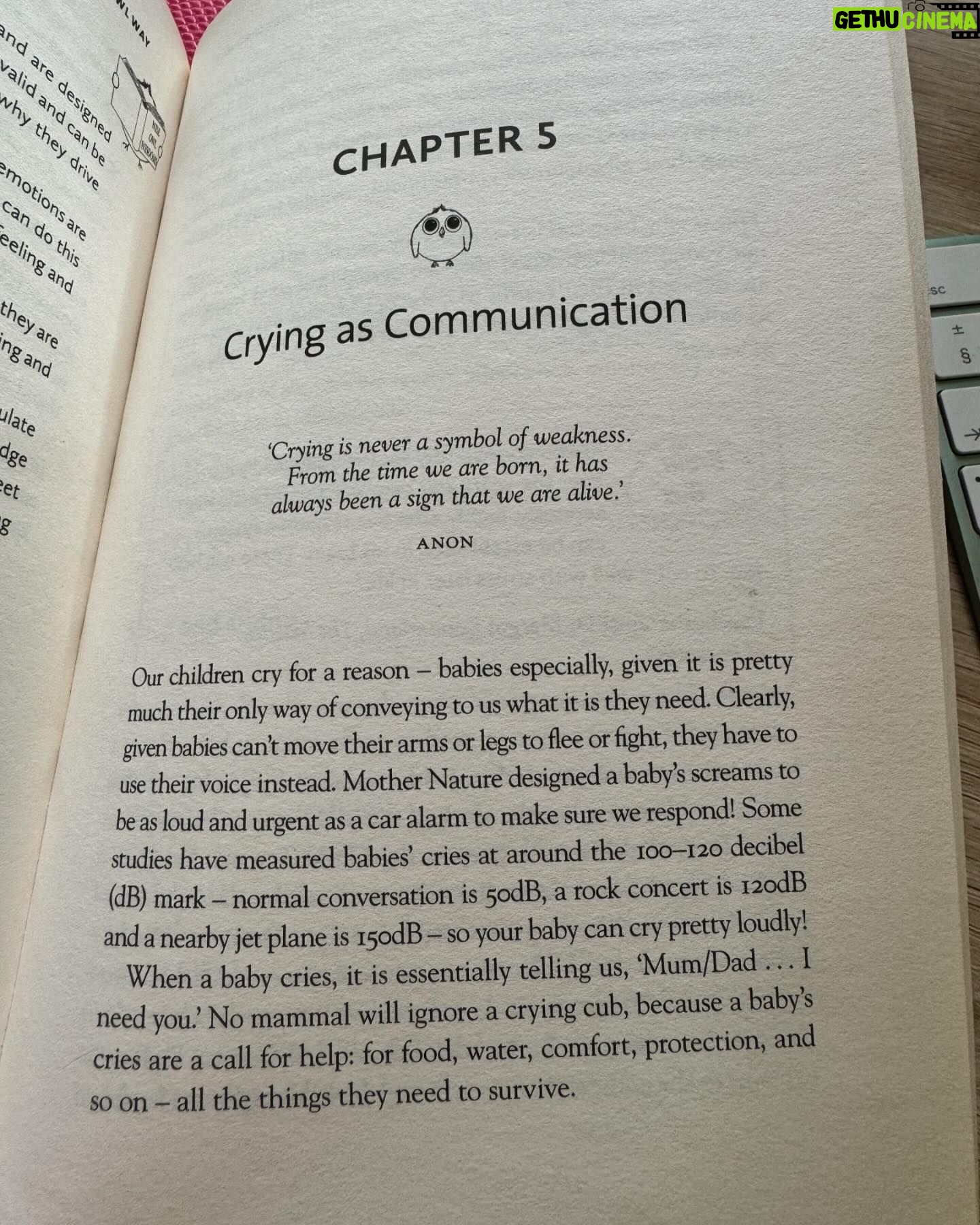
2.5K Likes – Kate Silverton Instagram
Caption : The ‘debate’ over the practice of ‘controlled crying’ or the ‘cry it out’ method is once again in the news. I understand that ‘structured timetables’ of feeding / sleeping are proffered with the best intentions, to help exhausted parents and their babies achieve much needed sleep and get into a ‘routine’ (and I understand this having been a time-poor, frazzled parent myself), but it can be helpful to reflect that, in our time pressured lives, we are often trying to fit our babies and children into OUR schedules, forcing them to adapt to our needs rather than necessarily serving theirs. Crying is an infant’s only form of communication and we now know from the latest developments in neurobiology that the infant brain can experience significant stress if a child is left to cry for prolonged periods, without being soothed, and without their needs being met. Babies cannot ‘self-regulate’, they need us for that. As a child therapist, and as someone who has done extensive research in this field, it troubles me that the science we now have, that supports healthy brain development ( and future mental health ) is not being discussed in this debate. It’s critical that we include the science, because it reveals that in the first crucial years of life, a child’s brain is hugely vulnerable to stress. Babies experience significant stress when their needs are not attended to. It’s important for us to know that it is in responding to our children when they cry that builds all important connections in their brain, strengthening the bond we share and the ‘secure attachment’ we want our children to go on to enjoy. The science supports what our ancestors instinctively knew. I share some of the thoughts and research from my book ‘there’s no such thing as naughty’, in this post, in the hope it may support parents to trust their natural intuition and instincts, to hold their babies close and trust in the higher human wisdom that we share. I would love to hear your comments and thoughts – especially having read the pages I share from my book. Sending all love and strength ♥️ #crying #mentalhealth #parenting #cryitoutLikes : 2486
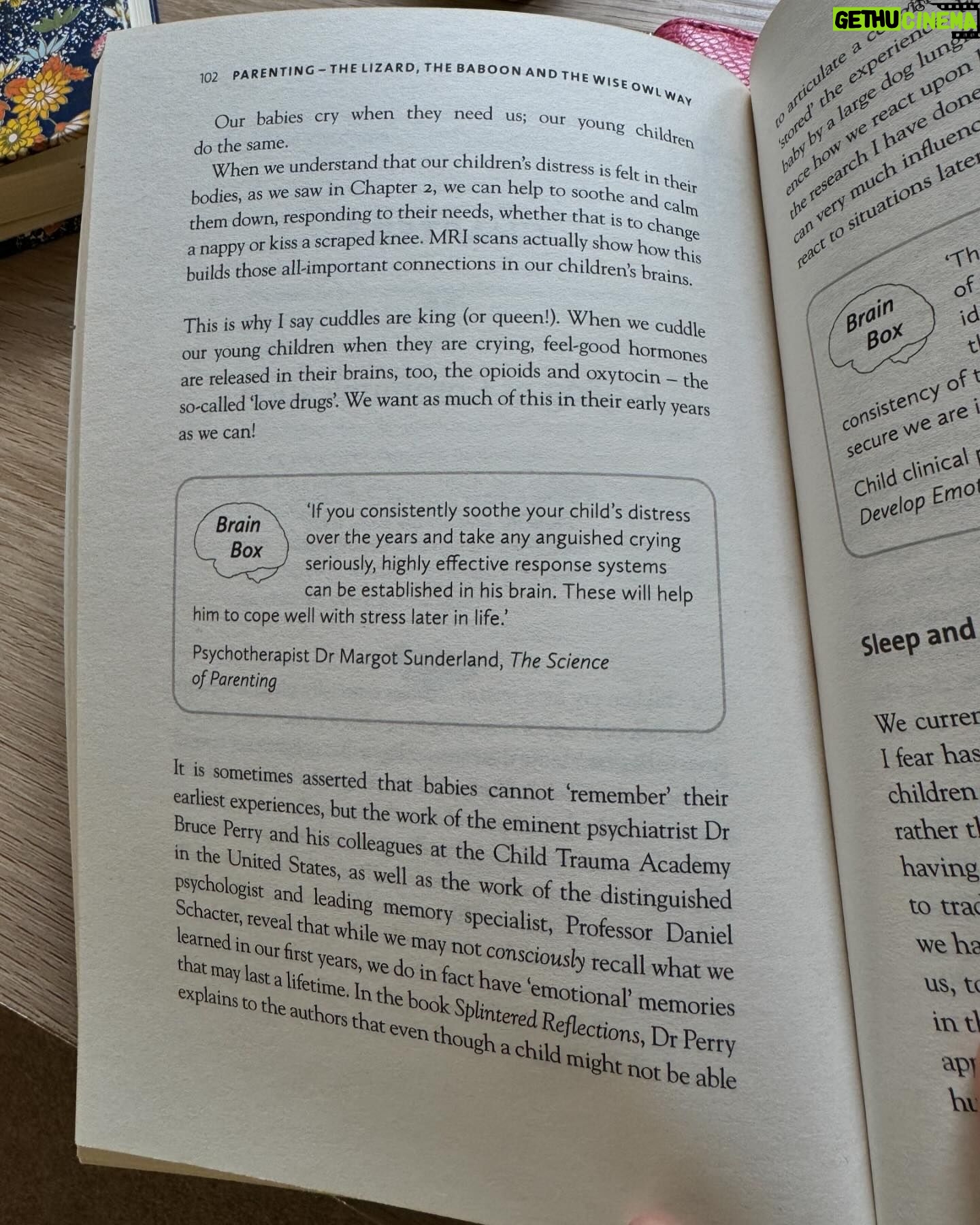
2.5K Likes – Kate Silverton Instagram
Caption : The ‘debate’ over the practice of ‘controlled crying’ or the ‘cry it out’ method is once again in the news. I understand that ‘structured timetables’ of feeding / sleeping are proffered with the best intentions, to help exhausted parents and their babies achieve much needed sleep and get into a ‘routine’ (and I understand this having been a time-poor, frazzled parent myself), but it can be helpful to reflect that, in our time pressured lives, we are often trying to fit our babies and children into OUR schedules, forcing them to adapt to our needs rather than necessarily serving theirs. Crying is an infant’s only form of communication and we now know from the latest developments in neurobiology that the infant brain can experience significant stress if a child is left to cry for prolonged periods, without being soothed, and without their needs being met. Babies cannot ‘self-regulate’, they need us for that. As a child therapist, and as someone who has done extensive research in this field, it troubles me that the science we now have, that supports healthy brain development ( and future mental health ) is not being discussed in this debate. It’s critical that we include the science, because it reveals that in the first crucial years of life, a child’s brain is hugely vulnerable to stress. Babies experience significant stress when their needs are not attended to. It’s important for us to know that it is in responding to our children when they cry that builds all important connections in their brain, strengthening the bond we share and the ‘secure attachment’ we want our children to go on to enjoy. The science supports what our ancestors instinctively knew. I share some of the thoughts and research from my book ‘there’s no such thing as naughty’, in this post, in the hope it may support parents to trust their natural intuition and instincts, to hold their babies close and trust in the higher human wisdom that we share. I would love to hear your comments and thoughts – especially having read the pages I share from my book. Sending all love and strength ♥️ #crying #mentalhealth #parenting #cryitoutLikes : 2486
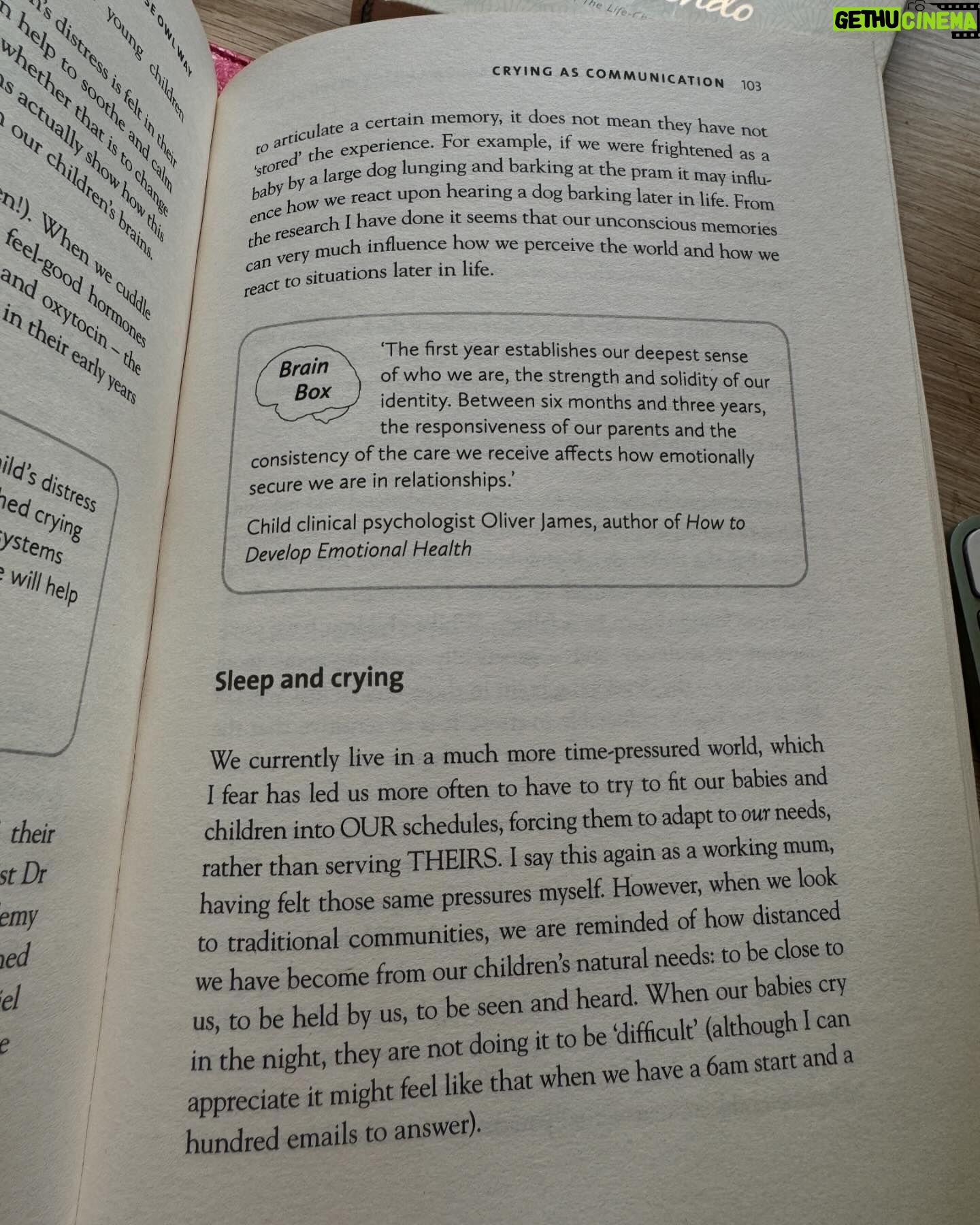
2.5K Likes – Kate Silverton Instagram
Caption : The ‘debate’ over the practice of ‘controlled crying’ or the ‘cry it out’ method is once again in the news. I understand that ‘structured timetables’ of feeding / sleeping are proffered with the best intentions, to help exhausted parents and their babies achieve much needed sleep and get into a ‘routine’ (and I understand this having been a time-poor, frazzled parent myself), but it can be helpful to reflect that, in our time pressured lives, we are often trying to fit our babies and children into OUR schedules, forcing them to adapt to our needs rather than necessarily serving theirs. Crying is an infant’s only form of communication and we now know from the latest developments in neurobiology that the infant brain can experience significant stress if a child is left to cry for prolonged periods, without being soothed, and without their needs being met. Babies cannot ‘self-regulate’, they need us for that. As a child therapist, and as someone who has done extensive research in this field, it troubles me that the science we now have, that supports healthy brain development ( and future mental health ) is not being discussed in this debate. It’s critical that we include the science, because it reveals that in the first crucial years of life, a child’s brain is hugely vulnerable to stress. Babies experience significant stress when their needs are not attended to. It’s important for us to know that it is in responding to our children when they cry that builds all important connections in their brain, strengthening the bond we share and the ‘secure attachment’ we want our children to go on to enjoy. The science supports what our ancestors instinctively knew. I share some of the thoughts and research from my book ‘there’s no such thing as naughty’, in this post, in the hope it may support parents to trust their natural intuition and instincts, to hold their babies close and trust in the higher human wisdom that we share. I would love to hear your comments and thoughts – especially having read the pages I share from my book. Sending all love and strength ♥️ #crying #mentalhealth #parenting #cryitoutLikes : 2486
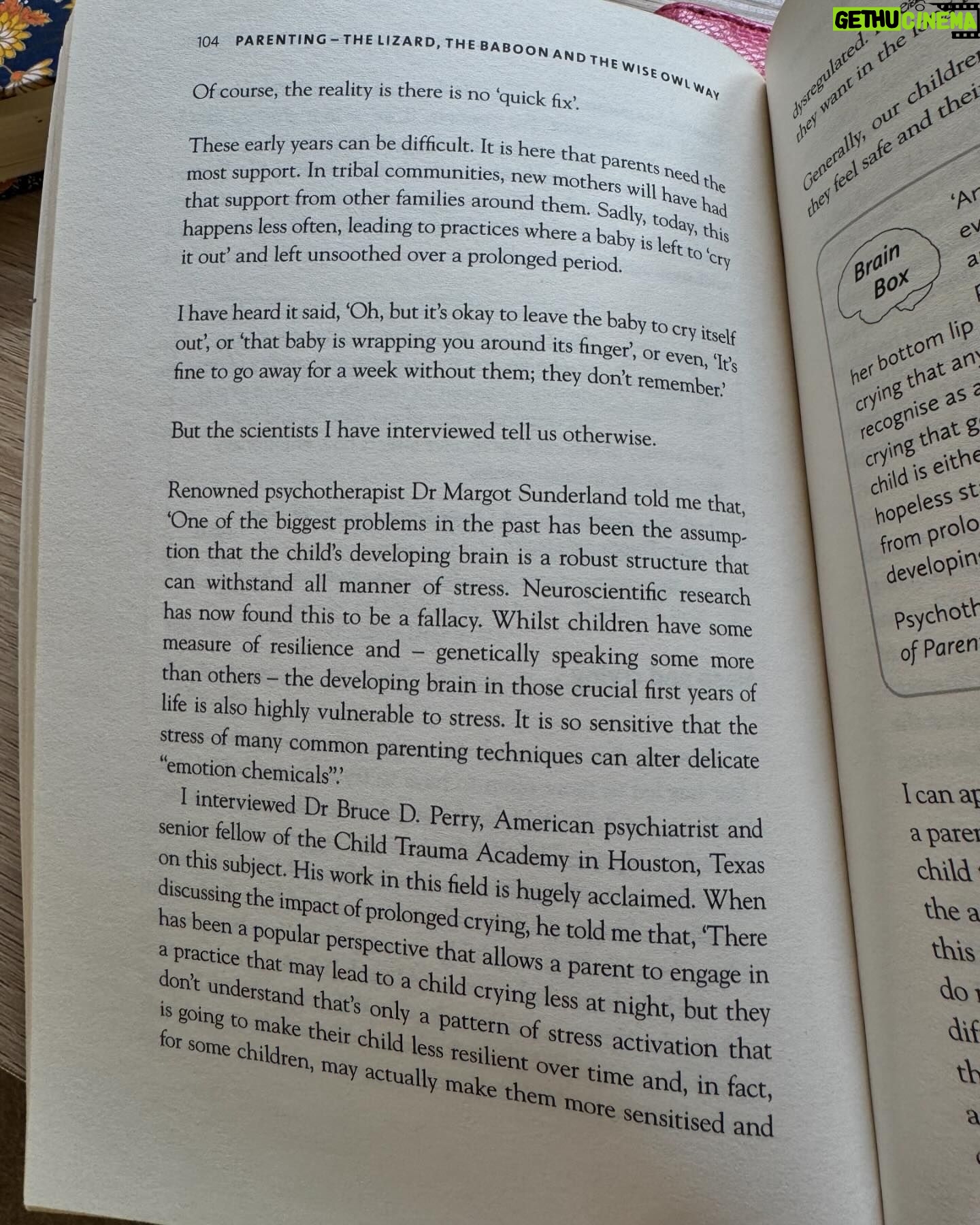
2.5K Likes – Kate Silverton Instagram
Caption : The ‘debate’ over the practice of ‘controlled crying’ or the ‘cry it out’ method is once again in the news. I understand that ‘structured timetables’ of feeding / sleeping are proffered with the best intentions, to help exhausted parents and their babies achieve much needed sleep and get into a ‘routine’ (and I understand this having been a time-poor, frazzled parent myself), but it can be helpful to reflect that, in our time pressured lives, we are often trying to fit our babies and children into OUR schedules, forcing them to adapt to our needs rather than necessarily serving theirs. Crying is an infant’s only form of communication and we now know from the latest developments in neurobiology that the infant brain can experience significant stress if a child is left to cry for prolonged periods, without being soothed, and without their needs being met. Babies cannot ‘self-regulate’, they need us for that. As a child therapist, and as someone who has done extensive research in this field, it troubles me that the science we now have, that supports healthy brain development ( and future mental health ) is not being discussed in this debate. It’s critical that we include the science, because it reveals that in the first crucial years of life, a child’s brain is hugely vulnerable to stress. Babies experience significant stress when their needs are not attended to. It’s important for us to know that it is in responding to our children when they cry that builds all important connections in their brain, strengthening the bond we share and the ‘secure attachment’ we want our children to go on to enjoy. The science supports what our ancestors instinctively knew. I share some of the thoughts and research from my book ‘there’s no such thing as naughty’, in this post, in the hope it may support parents to trust their natural intuition and instincts, to hold their babies close and trust in the higher human wisdom that we share. I would love to hear your comments and thoughts – especially having read the pages I share from my book. Sending all love and strength ♥️ #crying #mentalhealth #parenting #cryitoutLikes : 2486
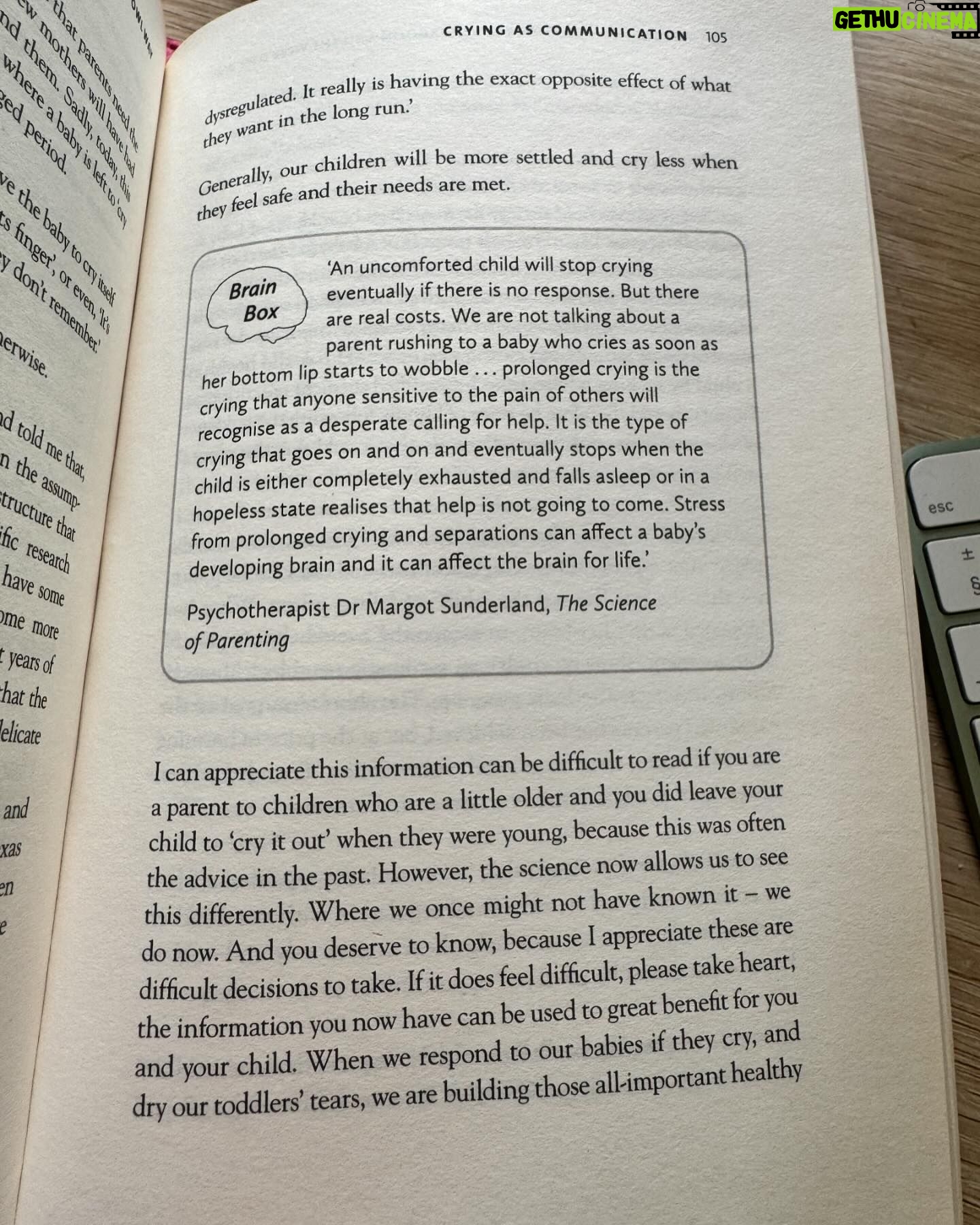
2.5K Likes – Kate Silverton Instagram
Caption : The ‘debate’ over the practice of ‘controlled crying’ or the ‘cry it out’ method is once again in the news. I understand that ‘structured timetables’ of feeding / sleeping are proffered with the best intentions, to help exhausted parents and their babies achieve much needed sleep and get into a ‘routine’ (and I understand this having been a time-poor, frazzled parent myself), but it can be helpful to reflect that, in our time pressured lives, we are often trying to fit our babies and children into OUR schedules, forcing them to adapt to our needs rather than necessarily serving theirs. Crying is an infant’s only form of communication and we now know from the latest developments in neurobiology that the infant brain can experience significant stress if a child is left to cry for prolonged periods, without being soothed, and without their needs being met. Babies cannot ‘self-regulate’, they need us for that. As a child therapist, and as someone who has done extensive research in this field, it troubles me that the science we now have, that supports healthy brain development ( and future mental health ) is not being discussed in this debate. It’s critical that we include the science, because it reveals that in the first crucial years of life, a child’s brain is hugely vulnerable to stress. Babies experience significant stress when their needs are not attended to. It’s important for us to know that it is in responding to our children when they cry that builds all important connections in their brain, strengthening the bond we share and the ‘secure attachment’ we want our children to go on to enjoy. The science supports what our ancestors instinctively knew. I share some of the thoughts and research from my book ‘there’s no such thing as naughty’, in this post, in the hope it may support parents to trust their natural intuition and instincts, to hold their babies close and trust in the higher human wisdom that we share. I would love to hear your comments and thoughts – especially having read the pages I share from my book. Sending all love and strength ♥️ #crying #mentalhealth #parenting #cryitoutLikes : 2486
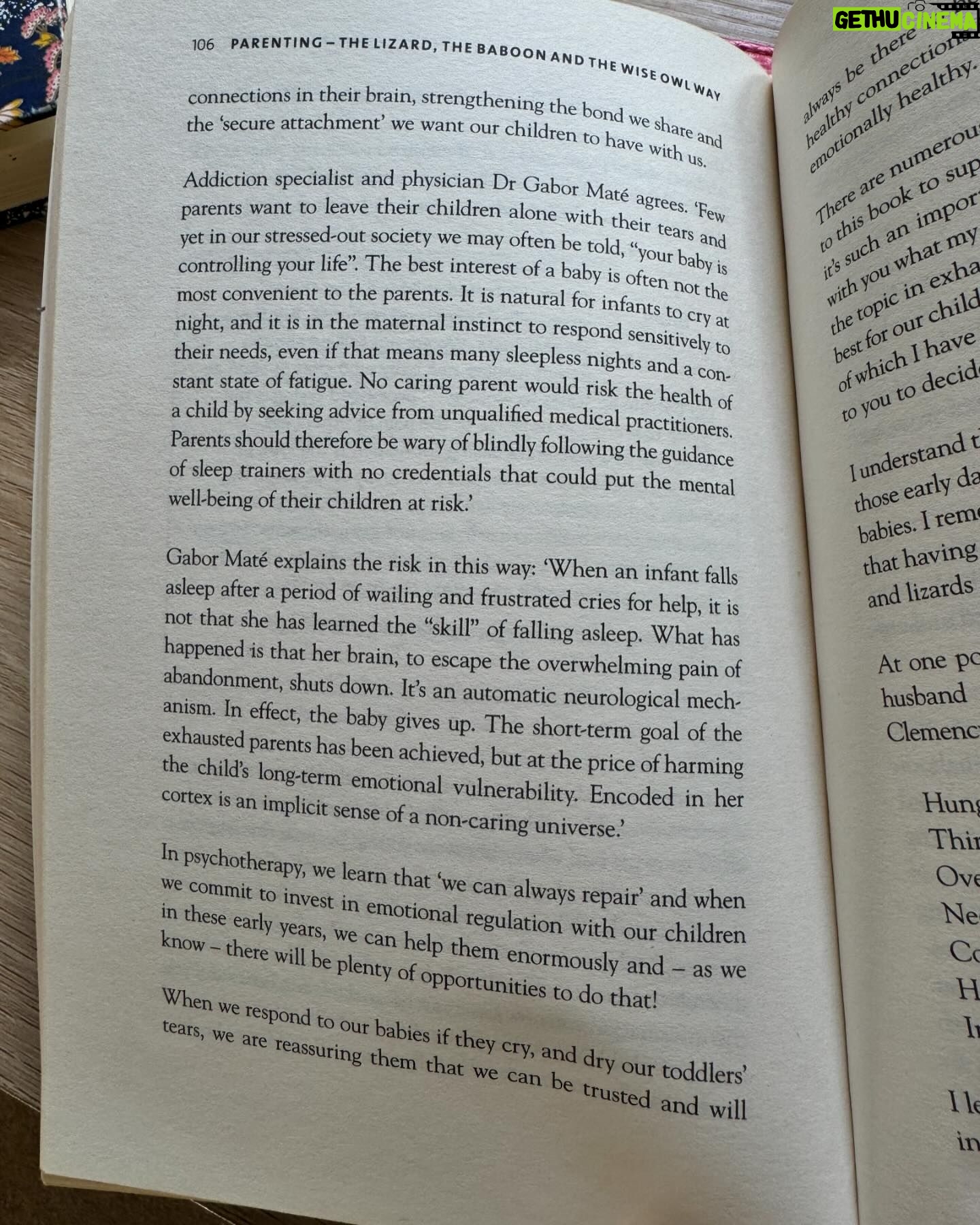
2.5K Likes – Kate Silverton Instagram
Caption : The ‘debate’ over the practice of ‘controlled crying’ or the ‘cry it out’ method is once again in the news. I understand that ‘structured timetables’ of feeding / sleeping are proffered with the best intentions, to help exhausted parents and their babies achieve much needed sleep and get into a ‘routine’ (and I understand this having been a time-poor, frazzled parent myself), but it can be helpful to reflect that, in our time pressured lives, we are often trying to fit our babies and children into OUR schedules, forcing them to adapt to our needs rather than necessarily serving theirs. Crying is an infant’s only form of communication and we now know from the latest developments in neurobiology that the infant brain can experience significant stress if a child is left to cry for prolonged periods, without being soothed, and without their needs being met. Babies cannot ‘self-regulate’, they need us for that. As a child therapist, and as someone who has done extensive research in this field, it troubles me that the science we now have, that supports healthy brain development ( and future mental health ) is not being discussed in this debate. It’s critical that we include the science, because it reveals that in the first crucial years of life, a child’s brain is hugely vulnerable to stress. Babies experience significant stress when their needs are not attended to. It’s important for us to know that it is in responding to our children when they cry that builds all important connections in their brain, strengthening the bond we share and the ‘secure attachment’ we want our children to go on to enjoy. The science supports what our ancestors instinctively knew. I share some of the thoughts and research from my book ‘there’s no such thing as naughty’, in this post, in the hope it may support parents to trust their natural intuition and instincts, to hold their babies close and trust in the higher human wisdom that we share. I would love to hear your comments and thoughts – especially having read the pages I share from my book. Sending all love and strength ♥️ #crying #mentalhealth #parenting #cryitoutLikes : 2486
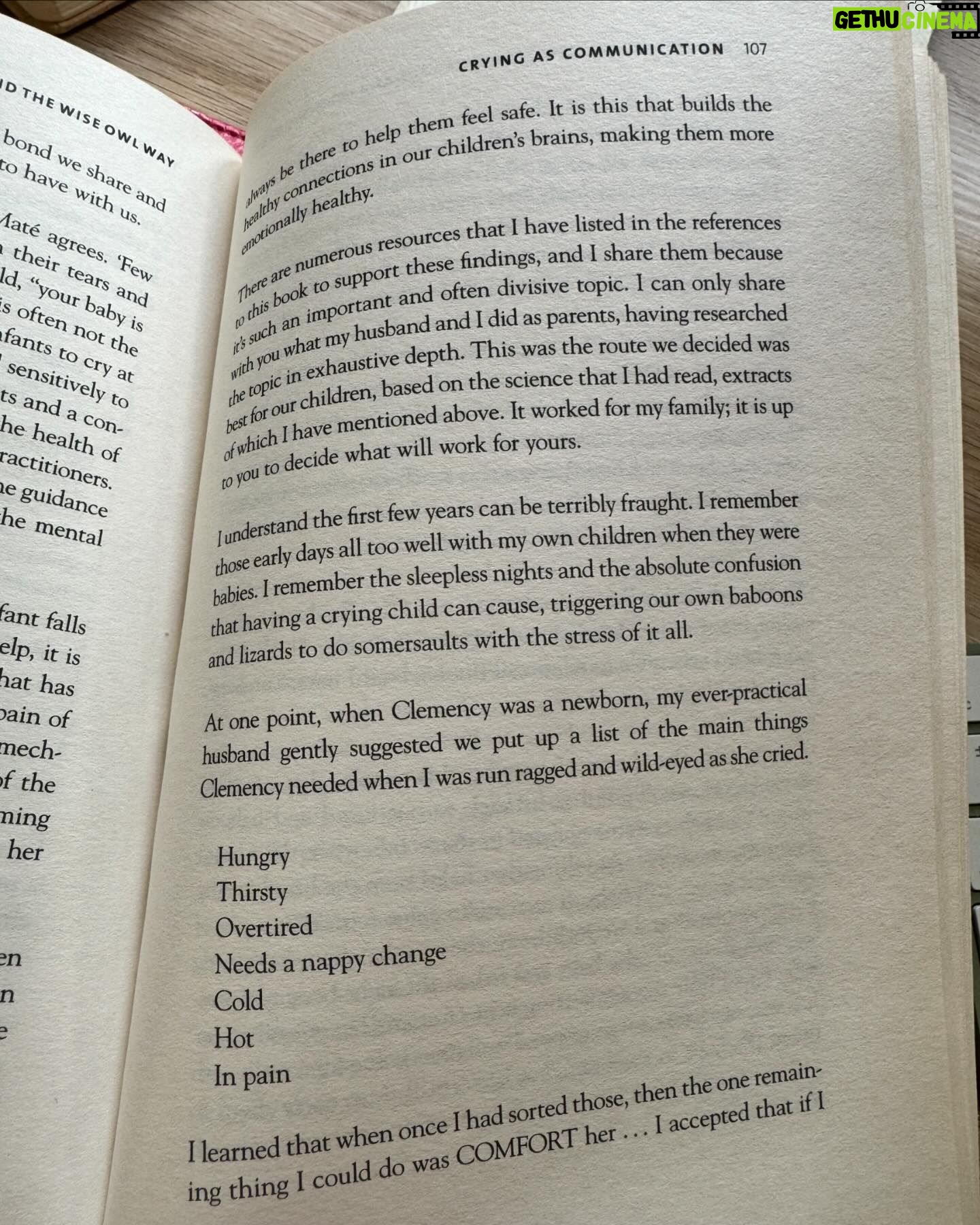
2.5K Likes – Kate Silverton Instagram
Caption : The ‘debate’ over the practice of ‘controlled crying’ or the ‘cry it out’ method is once again in the news. I understand that ‘structured timetables’ of feeding / sleeping are proffered with the best intentions, to help exhausted parents and their babies achieve much needed sleep and get into a ‘routine’ (and I understand this having been a time-poor, frazzled parent myself), but it can be helpful to reflect that, in our time pressured lives, we are often trying to fit our babies and children into OUR schedules, forcing them to adapt to our needs rather than necessarily serving theirs. Crying is an infant’s only form of communication and we now know from the latest developments in neurobiology that the infant brain can experience significant stress if a child is left to cry for prolonged periods, without being soothed, and without their needs being met. Babies cannot ‘self-regulate’, they need us for that. As a child therapist, and as someone who has done extensive research in this field, it troubles me that the science we now have, that supports healthy brain development ( and future mental health ) is not being discussed in this debate. It’s critical that we include the science, because it reveals that in the first crucial years of life, a child’s brain is hugely vulnerable to stress. Babies experience significant stress when their needs are not attended to. It’s important for us to know that it is in responding to our children when they cry that builds all important connections in their brain, strengthening the bond we share and the ‘secure attachment’ we want our children to go on to enjoy. The science supports what our ancestors instinctively knew. I share some of the thoughts and research from my book ‘there’s no such thing as naughty’, in this post, in the hope it may support parents to trust their natural intuition and instincts, to hold their babies close and trust in the higher human wisdom that we share. I would love to hear your comments and thoughts – especially having read the pages I share from my book. Sending all love and strength ♥️ #crying #mentalhealth #parenting #cryitoutLikes : 2486
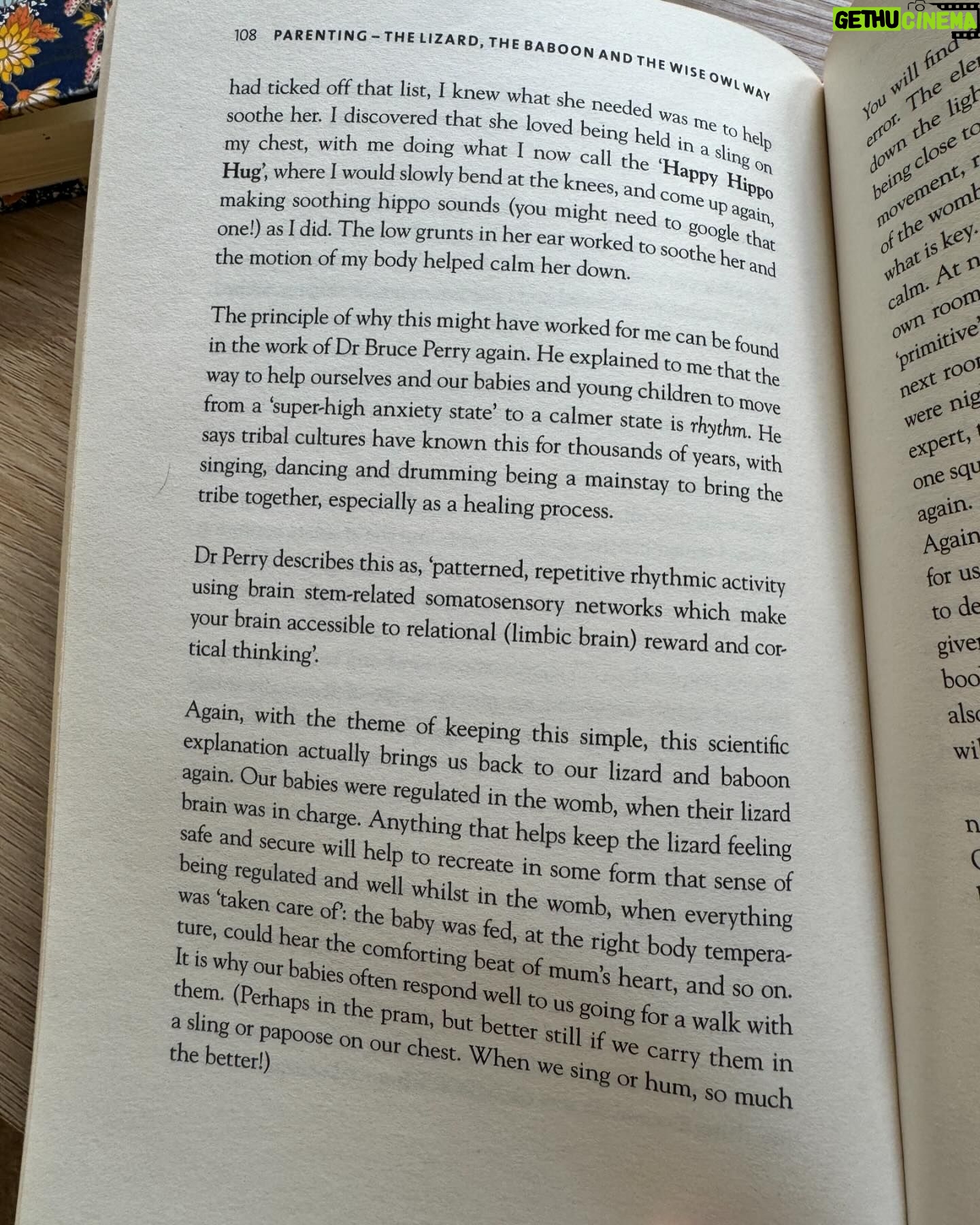
2.5K Likes – Kate Silverton Instagram
Caption : The ‘debate’ over the practice of ‘controlled crying’ or the ‘cry it out’ method is once again in the news. I understand that ‘structured timetables’ of feeding / sleeping are proffered with the best intentions, to help exhausted parents and their babies achieve much needed sleep and get into a ‘routine’ (and I understand this having been a time-poor, frazzled parent myself), but it can be helpful to reflect that, in our time pressured lives, we are often trying to fit our babies and children into OUR schedules, forcing them to adapt to our needs rather than necessarily serving theirs. Crying is an infant’s only form of communication and we now know from the latest developments in neurobiology that the infant brain can experience significant stress if a child is left to cry for prolonged periods, without being soothed, and without their needs being met. Babies cannot ‘self-regulate’, they need us for that. As a child therapist, and as someone who has done extensive research in this field, it troubles me that the science we now have, that supports healthy brain development ( and future mental health ) is not being discussed in this debate. It’s critical that we include the science, because it reveals that in the first crucial years of life, a child’s brain is hugely vulnerable to stress. Babies experience significant stress when their needs are not attended to. It’s important for us to know that it is in responding to our children when they cry that builds all important connections in their brain, strengthening the bond we share and the ‘secure attachment’ we want our children to go on to enjoy. The science supports what our ancestors instinctively knew. I share some of the thoughts and research from my book ‘there’s no such thing as naughty’, in this post, in the hope it may support parents to trust their natural intuition and instincts, to hold their babies close and trust in the higher human wisdom that we share. I would love to hear your comments and thoughts – especially having read the pages I share from my book. Sending all love and strength ♥️ #crying #mentalhealth #parenting #cryitoutLikes : 2486
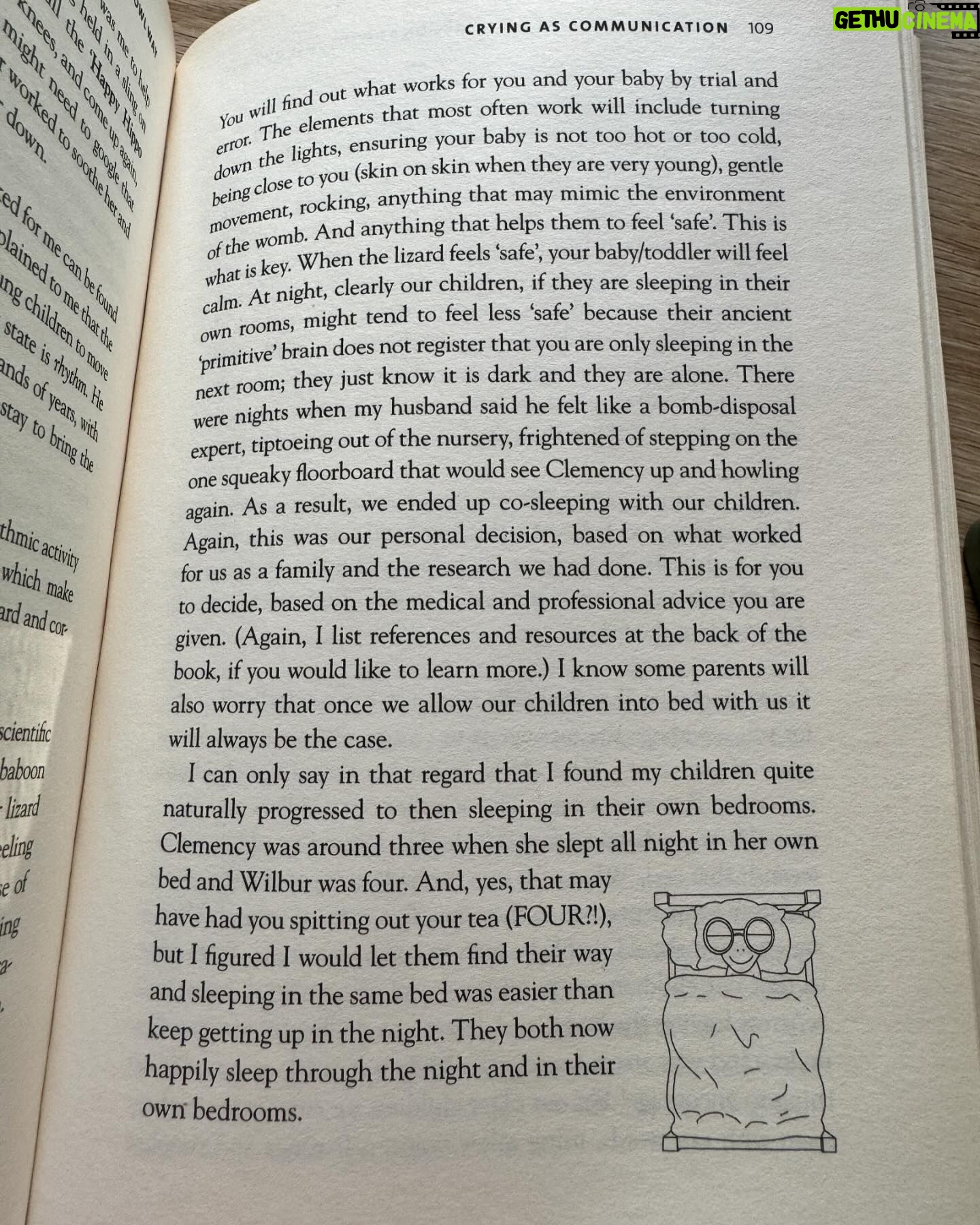
2.5K Likes – Kate Silverton Instagram
Caption : The ‘debate’ over the practice of ‘controlled crying’ or the ‘cry it out’ method is once again in the news. I understand that ‘structured timetables’ of feeding / sleeping are proffered with the best intentions, to help exhausted parents and their babies achieve much needed sleep and get into a ‘routine’ (and I understand this having been a time-poor, frazzled parent myself), but it can be helpful to reflect that, in our time pressured lives, we are often trying to fit our babies and children into OUR schedules, forcing them to adapt to our needs rather than necessarily serving theirs. Crying is an infant’s only form of communication and we now know from the latest developments in neurobiology that the infant brain can experience significant stress if a child is left to cry for prolonged periods, without being soothed, and without their needs being met. Babies cannot ‘self-regulate’, they need us for that. As a child therapist, and as someone who has done extensive research in this field, it troubles me that the science we now have, that supports healthy brain development ( and future mental health ) is not being discussed in this debate. It’s critical that we include the science, because it reveals that in the first crucial years of life, a child’s brain is hugely vulnerable to stress. Babies experience significant stress when their needs are not attended to. It’s important for us to know that it is in responding to our children when they cry that builds all important connections in their brain, strengthening the bond we share and the ‘secure attachment’ we want our children to go on to enjoy. The science supports what our ancestors instinctively knew. I share some of the thoughts and research from my book ‘there’s no such thing as naughty’, in this post, in the hope it may support parents to trust their natural intuition and instincts, to hold their babies close and trust in the higher human wisdom that we share. I would love to hear your comments and thoughts – especially having read the pages I share from my book. Sending all love and strength ♥️ #crying #mentalhealth #parenting #cryitoutLikes : 2486
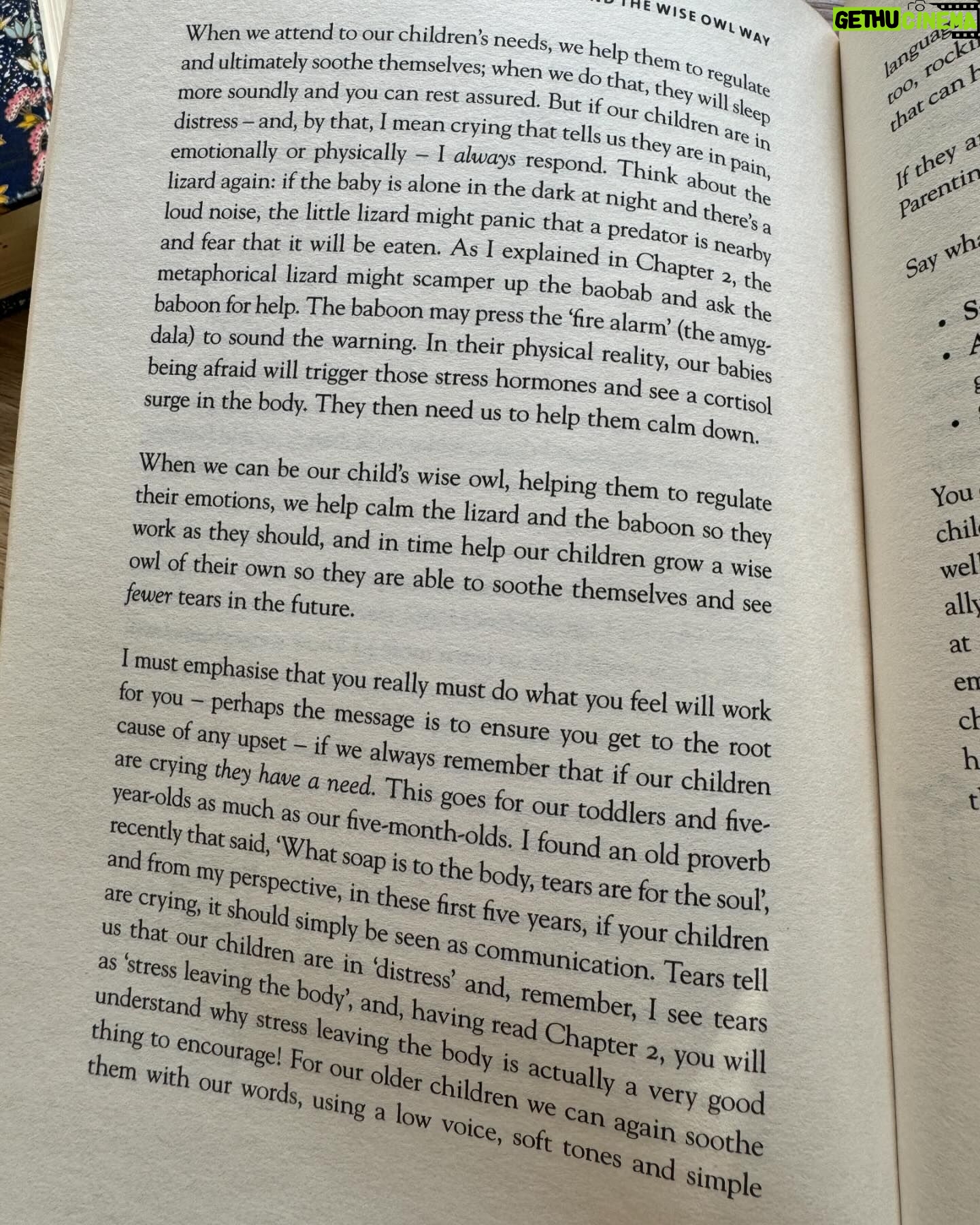
2.5K Likes – Kate Silverton Instagram
Caption : The ‘debate’ over the practice of ‘controlled crying’ or the ‘cry it out’ method is once again in the news. I understand that ‘structured timetables’ of feeding / sleeping are proffered with the best intentions, to help exhausted parents and their babies achieve much needed sleep and get into a ‘routine’ (and I understand this having been a time-poor, frazzled parent myself), but it can be helpful to reflect that, in our time pressured lives, we are often trying to fit our babies and children into OUR schedules, forcing them to adapt to our needs rather than necessarily serving theirs. Crying is an infant’s only form of communication and we now know from the latest developments in neurobiology that the infant brain can experience significant stress if a child is left to cry for prolonged periods, without being soothed, and without their needs being met. Babies cannot ‘self-regulate’, they need us for that. As a child therapist, and as someone who has done extensive research in this field, it troubles me that the science we now have, that supports healthy brain development ( and future mental health ) is not being discussed in this debate. It’s critical that we include the science, because it reveals that in the first crucial years of life, a child’s brain is hugely vulnerable to stress. Babies experience significant stress when their needs are not attended to. It’s important for us to know that it is in responding to our children when they cry that builds all important connections in their brain, strengthening the bond we share and the ‘secure attachment’ we want our children to go on to enjoy. The science supports what our ancestors instinctively knew. I share some of the thoughts and research from my book ‘there’s no such thing as naughty’, in this post, in the hope it may support parents to trust their natural intuition and instincts, to hold their babies close and trust in the higher human wisdom that we share. I would love to hear your comments and thoughts – especially having read the pages I share from my book. Sending all love and strength ♥️ #crying #mentalhealth #parenting #cryitoutLikes : 2486

2.4K Likes – Kate Silverton Instagram
Caption : THIS on #internationalwomensday Thank you @laurahallain for posting thjs today … Every time we set a boundary – saying no if it means YES to ourselves, we do something very important. When we change, things changeLikes : 2435
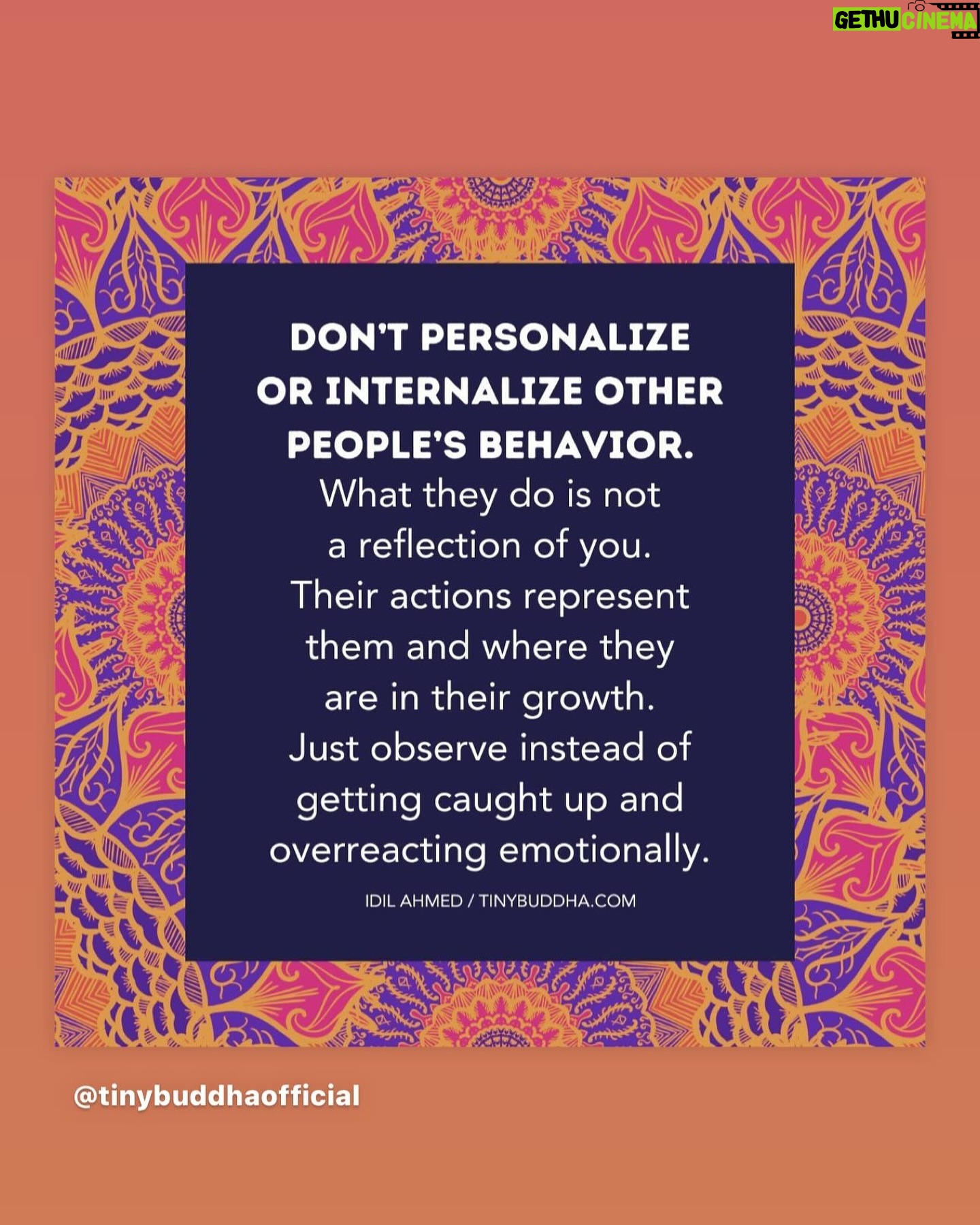
2.3K Likes – Kate Silverton Instagram
Caption : Difficult to do sometimes I know – but this post sums up what we must hold in mind and remember to be true … we can only do our own work … and hope that in holding with grace … we help others to do the same …Likes : 2301
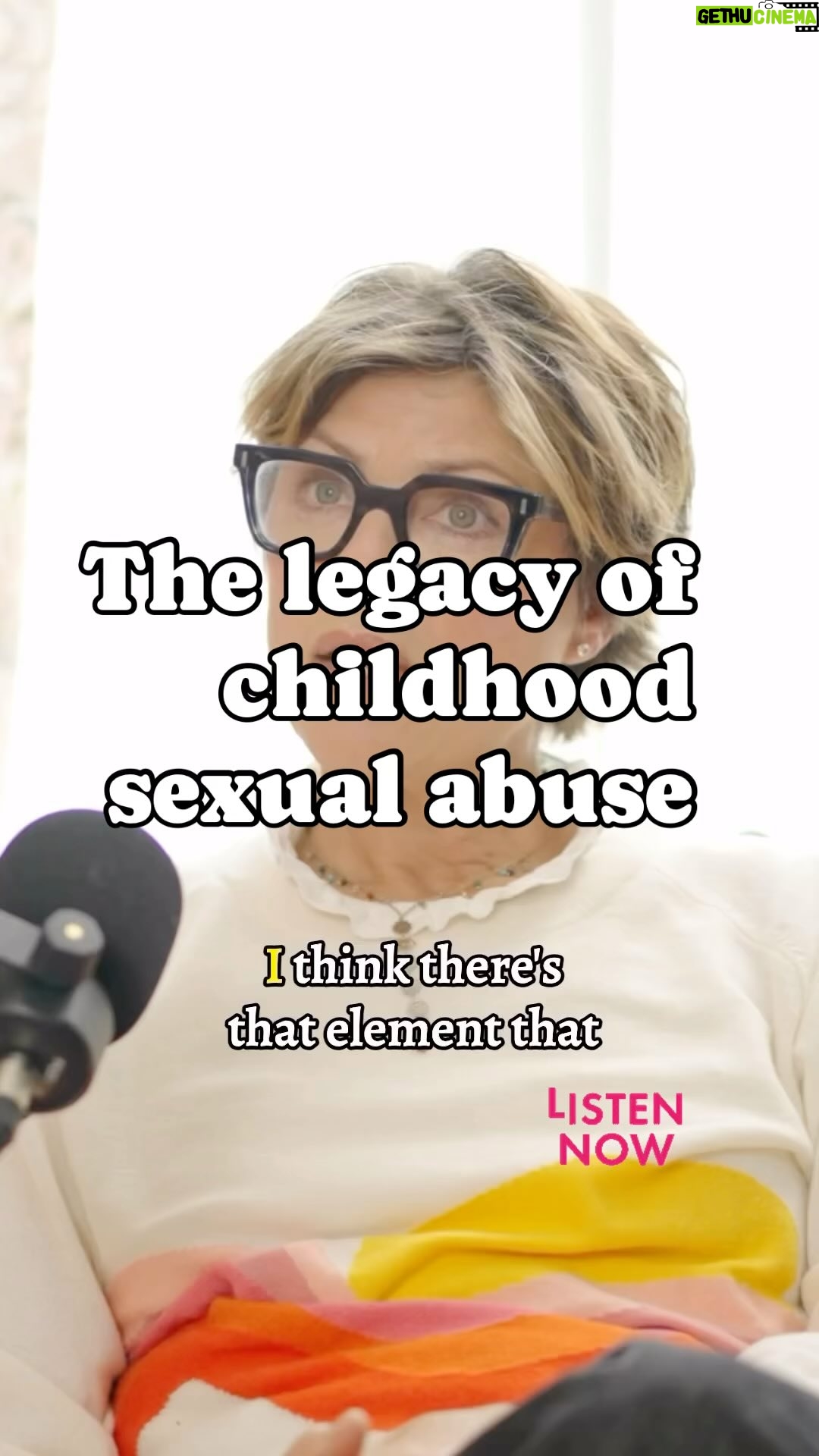
2.3K Likes – Kate Silverton Instagram
Caption : For all those of you who have reached out to share, many of you for the first time, your experience of childhood sexual abuse, thank you for your courage and your trust. It takes enormous bravery to reach out for help and to share our story. Because so often, as children ( and now as adults) we have carried such a terrible sense of shame for what was done to us. The shame is not ours. Many of you have asked where best to seek support and I have listed some of the charities that work with adults and children who have experienced sexual abuse. Please do reach out because there is help to be found. I respond to as many messages as I am able to in this forum, but in the interests of trying to reach and support as many people as I can, may I refer you to my recent interview with @juliasamuelmbe for her Therapy Works podcast as i hope it might also prove helpful. In it I share my own experience of intra-familial childhood sexual abuse. The interview is very contained and my sharing is not specific, so I hope it is not a difficult listen, but rather one of hope. In the interview I explain how this pernicious and very complex trauma has impacted me throughout my life but, importantly, how I have learned to heal. It’s so important that we focus on the impact of sexual abuse on children. It leaves a devastating legacy and until, and unless, we are able to bring this evil into the light, it can keep us in the dark for most of our lives, influencing our decisions & behaviour, in ways we may find hard to understand. Today I am thinking of the children behind the current headlines and shame on any media outlet that does not do the same. When a child is violated sexually it robs them of their innocence, their sense of self. It fractures their soul. We must acknowledge this heinous crime for what it is: not ‘child porn’, but child rape. For all you still suffering, I stand with you and alongside. I hope in sharing some of my own story it may offer some small comfort, that, with support, we can come through. And remember, the shame is, and never was, ours. @nspcc_official @one_in_four_uk @the.greenhousebristol @beaconhouseteam #trauma #traumarecoveryLikes : 2301

2.3K Likes – Kate Silverton Instagram
Caption : Mulled wine at the ready 😩😂 wishing you all the most restful and happy of days … remember – it doesn’t have to be PERFECT – you just need to be PRESENT ! Go with any of the big feelings your children may express … disappointment is one of the biggies .. so just let them express and remember to SOOTHE … SAS style ‘wow you are so excited / sad right now … mummy / daddy gets it …come let me help ‘ It can feel hard to soothe our children if they express upset on a day that we’re all expected to be ‘unconditionally happy’ But remember 1) your child has a brain that’s much less mature than your own .. it’s still developing … so their behaviour is ‘still developing’ 2) tomorrow does not need to be ‘perfect’ … and actually, it’s so often the little ruptures that afford us the greatest repair Go well, hold fast, get a good night’s sleep if you can and here’s up and ‘at em’ tomorrow .. I’ll see you on the other side ! ❤️🌲❤️🌲❤️🌲 #parenting #christmas #parentingtips #peaceful #happy #happychristmas #stressLikes : 2262
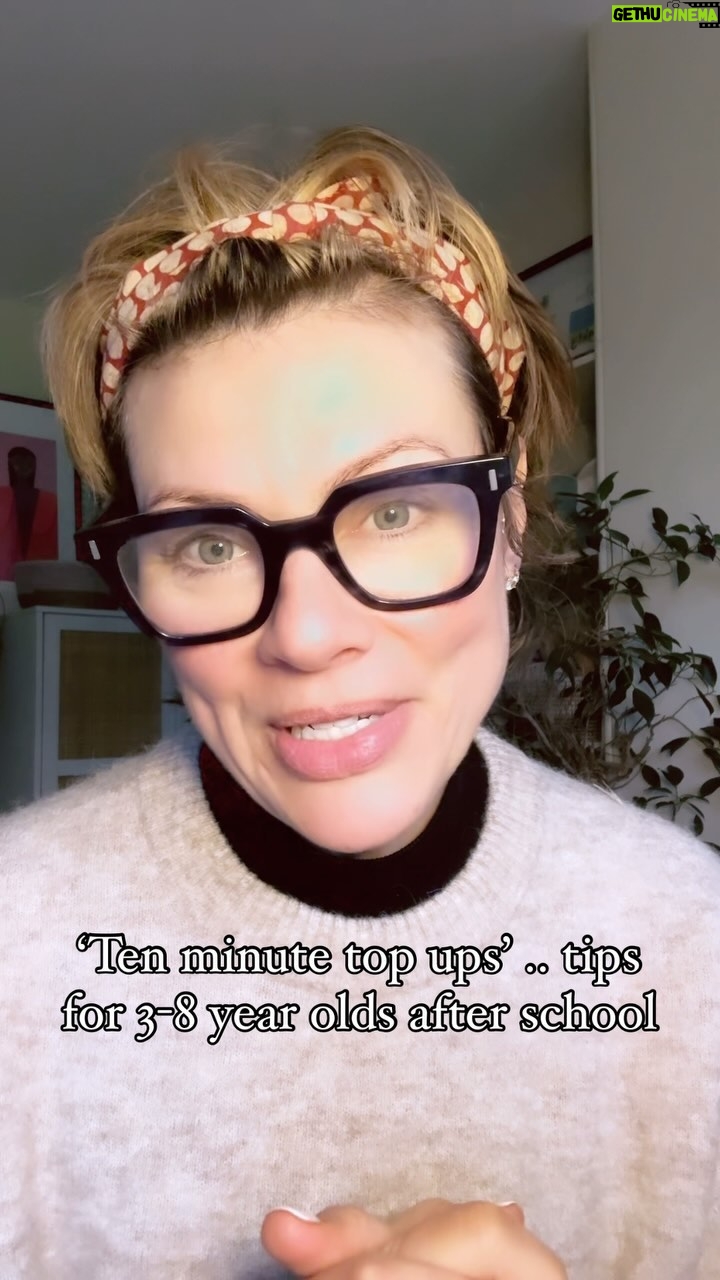
2.3K Likes – Kate Silverton Instagram
Caption : After a long and sometimes challenging day away from us, a ten minute catch up with our children can be enough to see them able to let off steam more safely. Putting your child in charge – inviting them to suggest a game, or making gentle suggestions ‘we could play catch with your cuddly toys .. we could do some wrestling !’ Anything that can be contained and that is safe and fun to do … essentially you want to let your child know that you have missed them after your time apart and you would love to play for a short while before bedtime Don’t worry – it doesn’t have to go on all night ! Ten minutes can often be enough to help your child to de-stress and then fell happier to wait while you attend to their sibling, or make supper or catch up on whatever else you need to do before bedtime. Having this all important one to one time with us can be enough to top up our children’s ’emotional cup’ and see a smoother, calmer bedtime, and a calmer, more soothed you too You will find many more suggestions in my first book ‘there’s no such thing as naughty’ for 0-5 year olds and in my latest book ‘there’s still no such thing as naughty’ for children 5-12 out on March 28th link in bio Love to hear your tips and thoughts on the games you play to reconnect with your children after a busy day ! #parenting #parentingtips #childrenLikes : 2251

2.2K Likes – Kate Silverton Instagram
Caption : #anxiety / #stress call it what you will … when we are facing a challenge, like giving a speech, taking a driving test, breaking up with someone, or even going on a date ! The feelings that arise within us are NORMAL – the pounding heart, shortness of breath, sweaty palms we experience are all signs that we are in fight / flight … our body is urging us to act! understanding the science of our behaviour helps us to work with our instincts and harness the energy that gets created when cortisol and adrenaline are coursing through our bodies … it might seem odd but dancing, drumming, singing, walking, running, bouncing up and down, shaking it out are ALL evidence based ways to release stress naturally … If your children are feeling anxious before school, if they have a spelling test, or have fallen out with a friend, they might resist leaving you in the morning – they can go into fight/flight … in my books I explain how to help our children when they feel this way, and I share exercises that are quick and easy to do, that can help children to release any worries and wobbles naturally I also explain how to help our children to use their words to tell us what’s going on for them on the inside … it’s then that we can help to build resilience and empower our children to tackle challenge and overcome As always, you must work using your intuition and within the ‘window of emotional tolerance’ for you and your child – working in an age appropriate way and considering what might work for you and your child as individuals. if you have concerns about you or your child’s mental health do always seek professional help and share any concerns you might have #stress #anxiety #parenting #parentingtips #mentalhealthLikes : 2214

2.2K Likes – Kate Silverton Instagram
Caption : What’s the one sure fire healthy way to hack your mood ? SLEEP!!!! Life is so busy it can often get neglected but we should see sleep as our body’s life support machine .. without it, we’re putting ourselves behind the curve rather than feeling able to embrace each day feeling whole … Do you feel get enough sleep ?Likes : 2197

2.1K Likes – Kate Silverton Instagram
Caption : If we want our parenting to be easier, happier, and for the bond between us and our children to grow – then we must understand the science of behaviour When we work hard to understand our children – they are far more likely to want to work with us too 👍 Respect comes when we can get curious about why our children behave the way they do. We can then demonstrate leadership that is both compassionate AND boundaried. Try it today ‘sweetheart, it’s not ok to speak to me that way, but I do want to help. Shall we try to figure this out together ?’ ❤️🙏🏼 Share your thoughts and feedback in the comments. #difficultchildren ##theresnosuchthingasnaughty #parentingtips #parentingadvice #parentingtricks #parentinghacks #respectbuilding #katesilverton ##childtherapyLikes : 2112
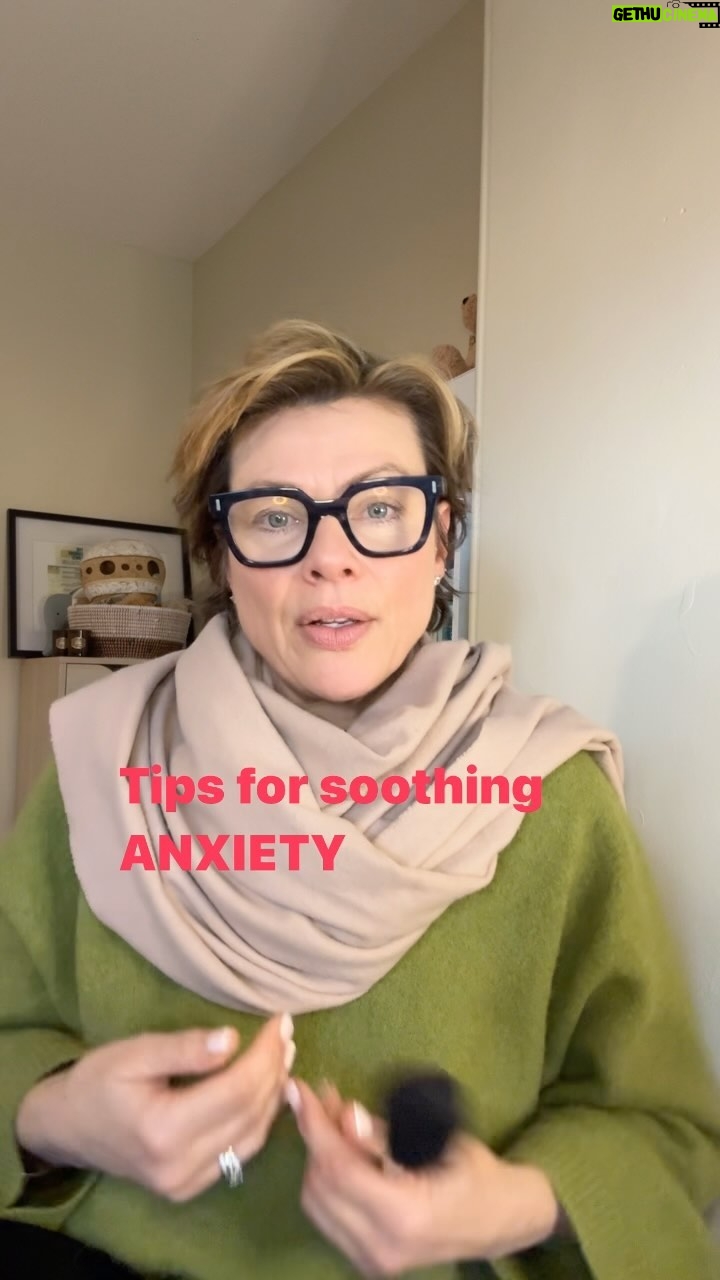
2.1K Likes – Kate Silverton Instagram
Caption : To soothe an anxious child we must lend our calm not join their chaos … it means we must regulate ourselves before we ‘step into the fray’ – a ‘palm pause’ or just taking a deep breath can help … then slowly, and soothingly let your child know ‘it’s ok…I’ve got you, I’m here…’ depending on your child’s needs you can offer a comforting hug… or the comfort of your presence … I talk ALOT about this in my book as it’s a question parents most often ask. The true path to helping our children to achieve good mental health is in supporting them to regulate their big emotions – and to manage stress. It doesn’t happen overnight … but by working somatically with your child … helping them to find wonderful ways to bring their nervous system back to calm … practice will ultimately make ‘perfect’ ( although just as there’s no such thing as ‘naughty’ there’s no such thing as perfect either 😉 ) much more on this to come… but for now just know that the more you can regulate your own emotions … the more you will help your child to regulate theirs xx #parenting #parentingtips #mentalhealthawareness #childrensmentalhealthweek #childrens #nervous #anxiety #anxietyrelief #anxietysupport #anxietyawareness #theresnosuchthingasnaughtyLikes : 2103

2.1K Likes – Kate Silverton Instagram
Caption : My husband just came home from school and showed me this …It’s not sequins and sparkles that makes us inspirational women to our children … it’s in being the best we can be and (trying) to be as funny as we can .. I could not have wished for a better gift on #internationalwomensday ♥️Likes : 2090

2.1K Likes – Kate Silverton Instagram
Caption : Anxiety … what is it & how to take charge when we experience it and how to help our children too … In this live I cover school / separation anxiety / sleep / ‘oppositional’ behaviour and much more ! #anxiety #anxietyrelief #parenting #mentalhealth #mentalhealthmatters #mentalhealthawareness #parentingtips #parentinghacks #theresnosuchthingasnaughtyLikes : 2056
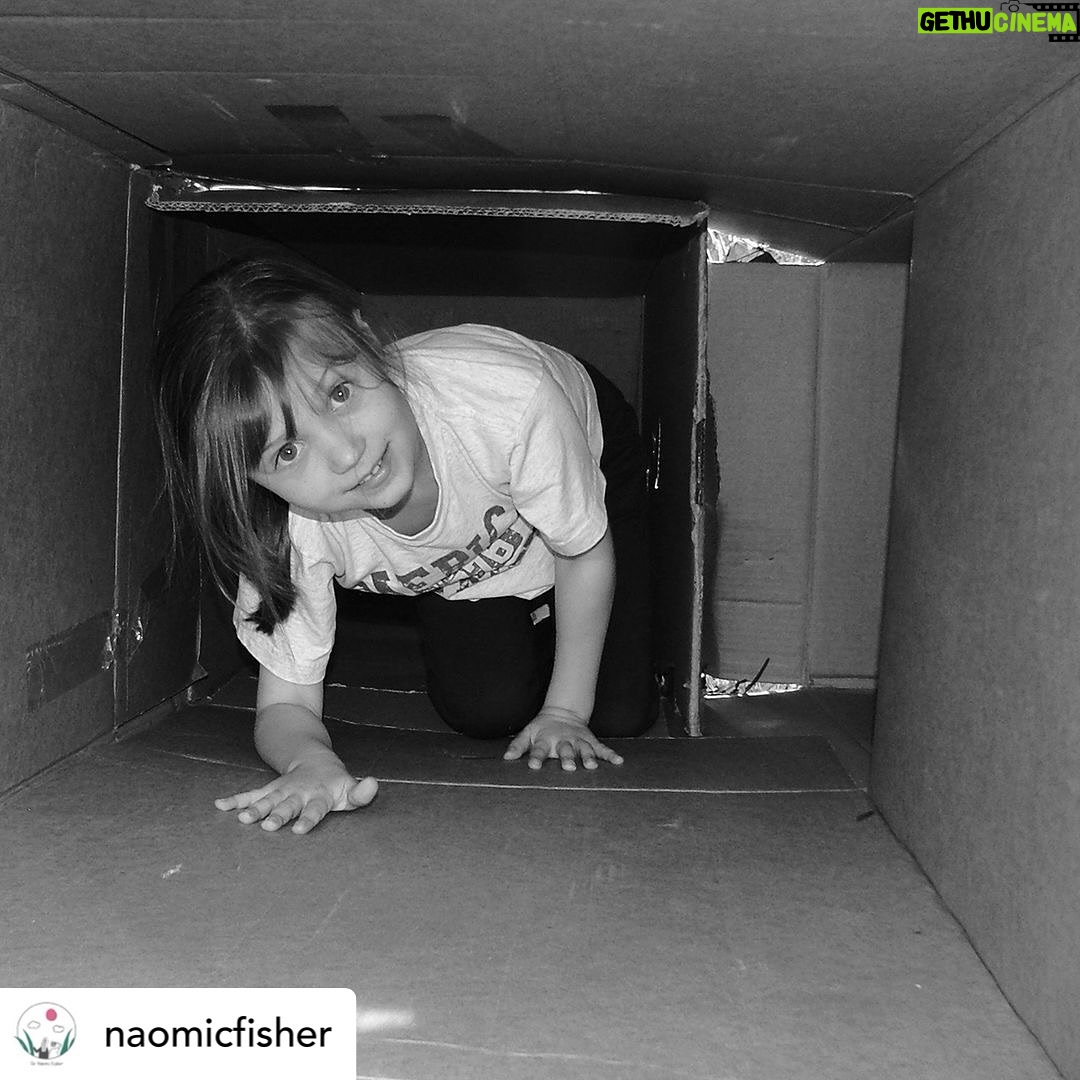
2.1K Likes – Kate Silverton Instagram
Caption : YES YES YES YES !!!!!! #repost @naomicfisher One of the first things we learn at school is that learning means being still. At primary school it’s about sitting on your bottom and not fiddling with your pencil. Walking not running, and putting your hand up before you speak. Staying in your chair, even when you’re desperate to crawl under the table or lie on the floor. At secondary school it carries on. Some schools insist that young people track the teacher with their eyes, and won’t allow them to reach into their bag for a water bottle without asking. Every move is choreographed and on command. They say this maximises learning. We tell children that to learn they need to listen, and to listen they need to keep still. That’s particularly hard for children, and so a lot of their energy is spent trying to conform with that. For some, it’s much harder, and they get in trouble for bouncing and jumping. The movement bursts out of them, and we tell them they can’t learn like that. It’s not true. If you watch children learning out of school, they move and twirl and jump. They lie on the floor whilst listening to stories and hang off the monkey bars whilst they think. They ask unexpected questions at inconvenient times. They make new connections whilst sitting on the toilet, bouncing on the trampoline or when watching TV. They run around and then come back to story. They express their feelings through their body. Schools need to control children’s bodies to manage large numbers, but that doesn’t mean that stillness is the best way to learn. As adults, many of us must work hard to reconnect to our bodies. We’ve learnt to ignore our urge to move and we can’t understand why we feel so terrible after hours at a desk. The things we learn at school run deep. But learning is about connection, not disconnection, and we can’t leave our bodies out of that. Let’s reclaim our right to be active. We need to move to learn, and that goes both for our children and ourselves.Likes : 2051
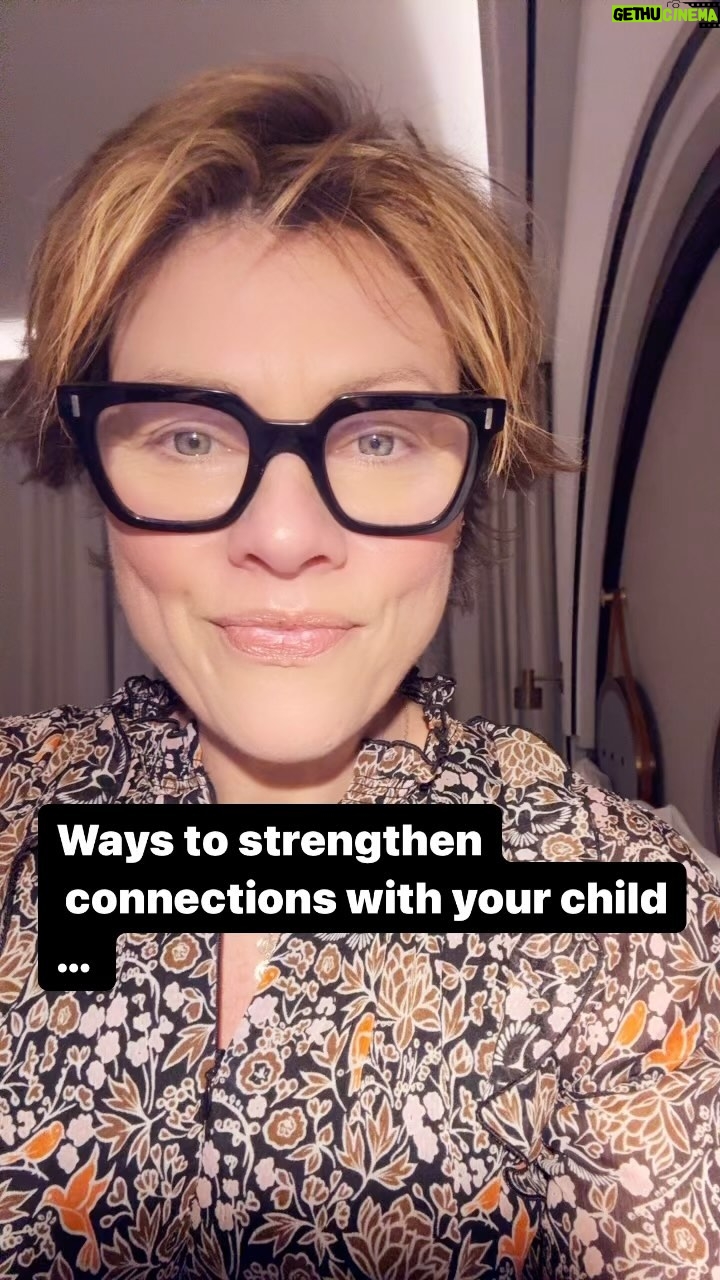
2K Likes – Kate Silverton Instagram
Caption : When our children feel connected to us they feel safer and more secure … why? Because nature designed us that way ! Just as a lioness offers her cubs a ‘secure base’ from which to go off and explore, so we do the same for our young children too. After a long day away from each other little games like this can help to reconnect and provide a boost of all the feel good hormones and chemicals like oxytocin that reduce anxiety and help our children to feel that all is ‘well with the world’ The squiggle game was devised by the psychoanalyst Donald Winnicott and I use it in my therapy room to connect with children – some of whom might be reticent to talk .. I use it with my own children too – even my daughter who is now 12. It’s a lovely way to go back and forth, laughing at the ‘images’ we create and finding a natural easy rhythm as we laugh and then naturally chat about our day. It helps calm our nervous system and offers a magical ten minute top up that can go a long way to reducing anxiety and boost the connection between you and your child For more parenting tips you can check out my new book ‘there’s still no such thing as naughty’ on preorder now in my bio Do tag any parent you think might like to try it too! #anxiety #childrensmentalhealth #parenting #parentingtips #calm #squigglegameLikes : 2007

2K Likes – Kate Silverton Instagram
Caption : Quick demonstration of S A S … from my book ‘there’s still no such thing as naughty’ When our children are in ‘fight’ or oppositional mode – you can trust it means their stress response has been triggered. It means their ‘thinking’ wise owl brain is not in charge. It’s why we often see such erratic, irrational behaviour. To bring our children safely back to calm we need to connect nervous system to nervous system because this is what’s driving the behaviour. It requires us to meet them where their energy is at in order to connect. So we raise our voice, not as though we are telling them off but just increase our energy to let them know we GET IT … ! We can ‘see’ how cross they are and we show them we understand ( even if we don’t always!) … when we can meet our children’s energy at the same level.. we can bring it back down – like a surfer riding a wave back into shore .. then we can boundary the behaviour ‘there’s no hitting or hurting sweetheart .. but can you show me how ‘cross’ you are using your words instead …?’ Very often our children feel so relieved that someone understands the big energy they’re feeling inside, they’ll blurt out whatever it is that has been troubling them … try it and let me know how you get on .. it can feel alien depending on how we ourselves were parented .. but the joy and relief of being understood will bond you and your child far more than sending them to their room to ‘cool down’ ever can … this is the way we help our children to regulate their emotions and start using their words to tell you how they feel, rather than use fists or feet instead … #parenting #parentingtips #emotionsLikes : 1962

1.9K Likes – Kate Silverton Instagram
Caption : Playful parenting makes for stronger connections and more connected behaviour. Tired though we often are around this time of the day, engaging in ten minutes of play can be enough to top up your child’s emotional cup after a long day away from you, and see you both experience the beautiful boost of feel-good chemicals that we experience when we can engage our more playful side If play feels slightly alien – try this simple ‘shopkeeper’ game … likely easiest for younger children but my nine year old still loves a quick hit of it when he’s transitioning from shower to pjs … Anything smelly pants / socks related often works a treat (!) … If your child looks at you as though you have gone bananas – that’s ok – we all need to feel ‘safe’ to show our silly side..: make them laugh once and they will want you to do it again, and again, I find pretend play works every time, as does collapsing in a faint when I smell their stinky socks … trust yourself and your child to find something that will work for you .. I guarantee that, however tired you might be, five minutes of fun will see both your cups topped up and an easier time of bedtime now you have strengthened your connection again I always say we must connect before we can command … using play to connect, allows us to ensure a smoother transition to bedtime … I’d love to hear your tips and suggestions in the comments for the fun things you do to top up your child’s emotional cup after a long school day 👇👇 #play #playful #parenting #parentingtips #mentalhealthLikes : 1944

1.9K Likes – Kate Silverton Instagram
Caption : Amid the holiday hustle and bustle, let’s remember that rest is an essential gift we can give ourselves and our children. Cherish the quiet moments, the joy of our children, and the togetherness. This Christmas, let’s prioritize presence over perfection. 🎄✨” #toptipsforchristmas #Christmastime #familychristmas #parentingtips #familytime #parenting #katesilverton #merrychristmas #familiesLikes : 1931
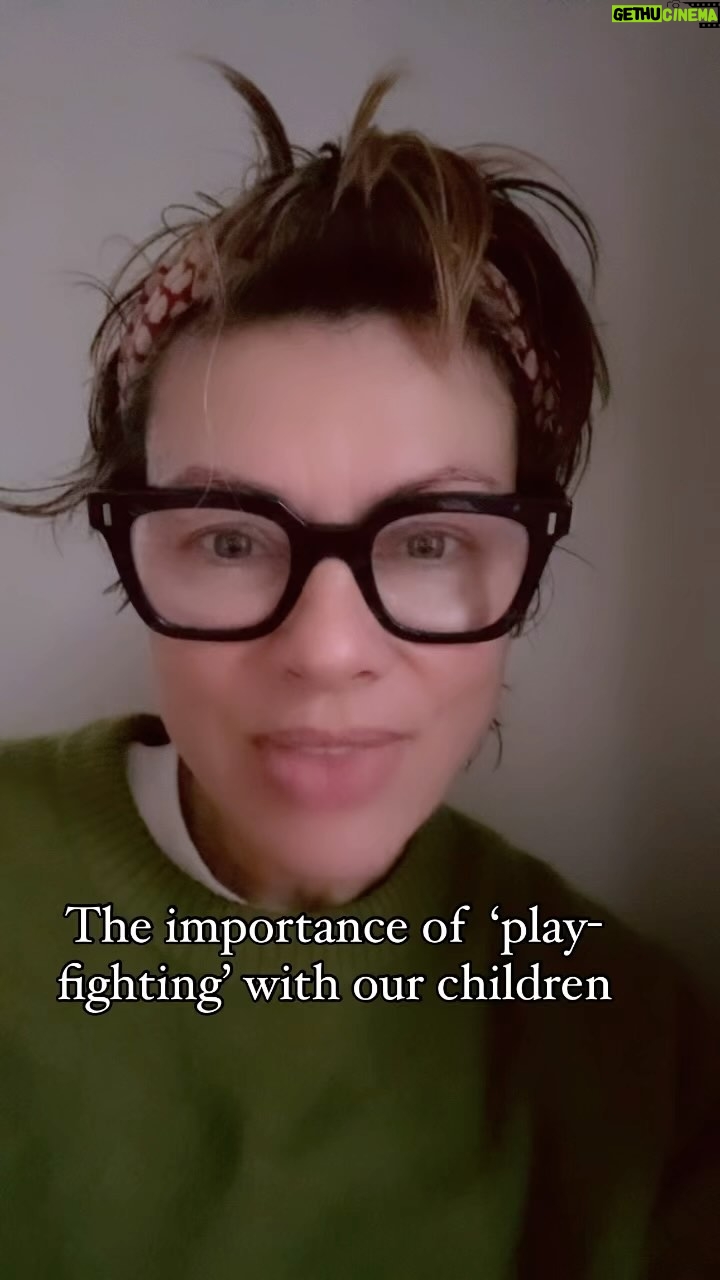
1.9K Likes – Kate Silverton Instagram
Caption : Wrestling, pillow fights or generally rough-housing with our kids can be enormous fun AND brings us closer together … so long as it’s down safely and with consent Five or ten minutes of having a pillow fight ( gently !) on the bed, practicing our best martial art moves ( no hitting or hurting though ) and mock fighting ( wow you are SO strong …mummy / daddy is going to have to give in you win!) are brilliant at boosting the all important ‘love drug’ oxytocin, as well as brain-derived neurotrophic factor – an important chemical for brain growth … Ensure you do it in a safe space, no sharp edges or where you or your child could hurt yourselves, and establish some fun ground rules ‘we have to fist bump at the start and the finish !’ And get your child to suggest some more ‘we have to stop if anyone is no longer having fun’ … etc .. and don’t forget to let your child win / take charge … they so often have to ‘do as we tell them’ so letting them take the small wins can give our relationship a big win in turn … much more on how to enjoy safe ‘rough-housing’ with your children in my book ‘there’s STILL no such thing as naughty’ out on the 28th March and on preorder now – details in the bio Good luck ! #parenting #parentingtips #play #mentalhealthLikes : 1929
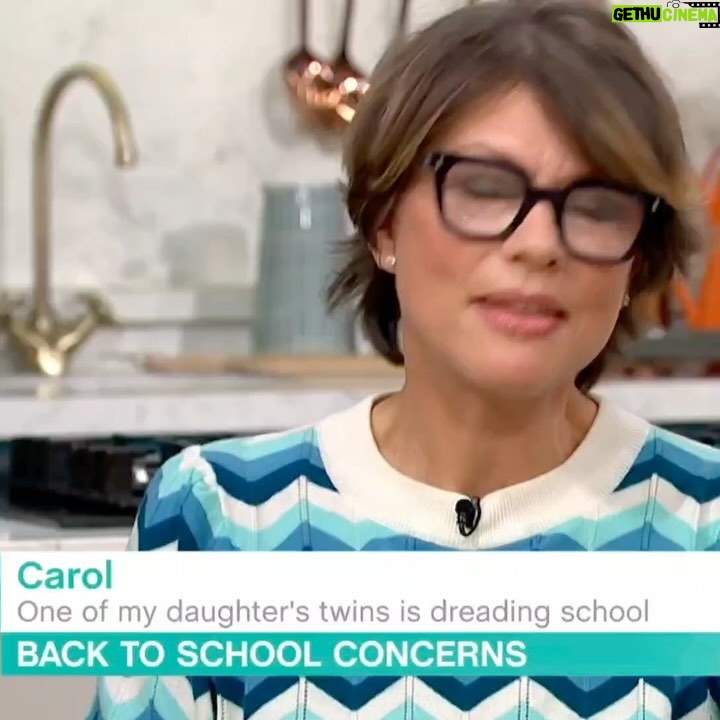
1.8K Likes – Kate Silverton Instagram
Caption : Had a brilliant time taking your questions @thismorning … #backtoschool SWIPE ➡️ to hear some of the tips I shared – AND to see which Hollywood star has gone home with a copy of ‘there’s still no such thing as naughty’ !! 🎊🎊💪🏼 #thismorning #theresnosuchthingasnaughty #parentingLikes : 1837

1.8K Likes – Kate Silverton Instagram
Caption : Had a brilliant time taking your questions @thismorning … #backtoschool SWIPE ➡️ to hear some of the tips I shared – AND to see which Hollywood star has gone home with a copy of ‘there’s still no such thing as naughty’ !! 🎊🎊💪🏼 #thismorning #theresnosuchthingasnaughty #parentingLikes : 1837
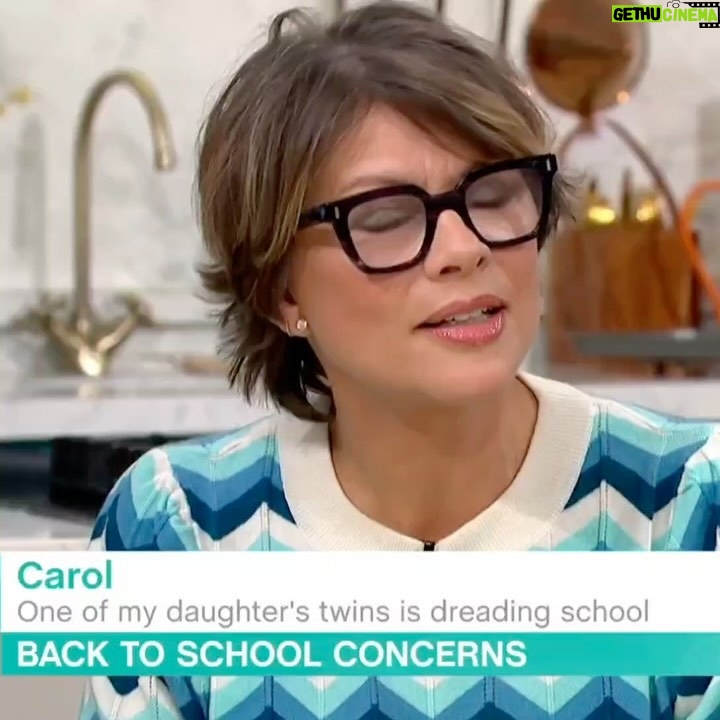
1.8K Likes – Kate Silverton Instagram
Caption : Had a brilliant time taking your questions @thismorning … #backtoschool SWIPE ➡️ to hear some of the tips I shared – AND to see which Hollywood star has gone home with a copy of ‘there’s still no such thing as naughty’ !! 🎊🎊💪🏼 #thismorning #theresnosuchthingasnaughty #parentingLikes : 1837

1.8K Likes – Kate Silverton Instagram
Caption : Had a brilliant time taking your questions @thismorning … #backtoschool SWIPE ➡️ to hear some of the tips I shared – AND to see which Hollywood star has gone home with a copy of ‘there’s still no such thing as naughty’ !! 🎊🎊💪🏼 #thismorning #theresnosuchthingasnaughty #parentingLikes : 1837

1.8K Likes – Kate Silverton Instagram
Caption : Had a brilliant time taking your questions @thismorning … #backtoschool SWIPE ➡️ to hear some of the tips I shared – AND to see which Hollywood star has gone home with a copy of ‘there’s still no such thing as naughty’ !! 🎊🎊💪🏼 #thismorning #theresnosuchthingasnaughty #parentingLikes : 1837

1.8K Likes – Kate Silverton Instagram
Caption : Had a brilliant time taking your questions @thismorning … #backtoschool SWIPE ➡️ to hear some of the tips I shared – AND to see which Hollywood star has gone home with a copy of ‘there’s still no such thing as naughty’ !! 🎊🎊💪🏼 #thismorning #theresnosuchthingasnaughty #parentingLikes : 1837

1.8K Likes – Kate Silverton Instagram
Caption : Had a brilliant time taking your questions @thismorning … #backtoschool SWIPE ➡️ to hear some of the tips I shared – AND to see which Hollywood star has gone home with a copy of ‘there’s still no such thing as naughty’ !! 🎊🎊💪🏼 #thismorning #theresnosuchthingasnaughty #parentingLikes : 1837

1.8K Likes – Kate Silverton Instagram
Caption : Had a brilliant time taking your questions @thismorning … #backtoschool SWIPE ➡️ to hear some of the tips I shared – AND to see which Hollywood star has gone home with a copy of ‘there’s still no such thing as naughty’ !! 🎊🎊💪🏼 #thismorning #theresnosuchthingasnaughty #parentingLikes : 1837
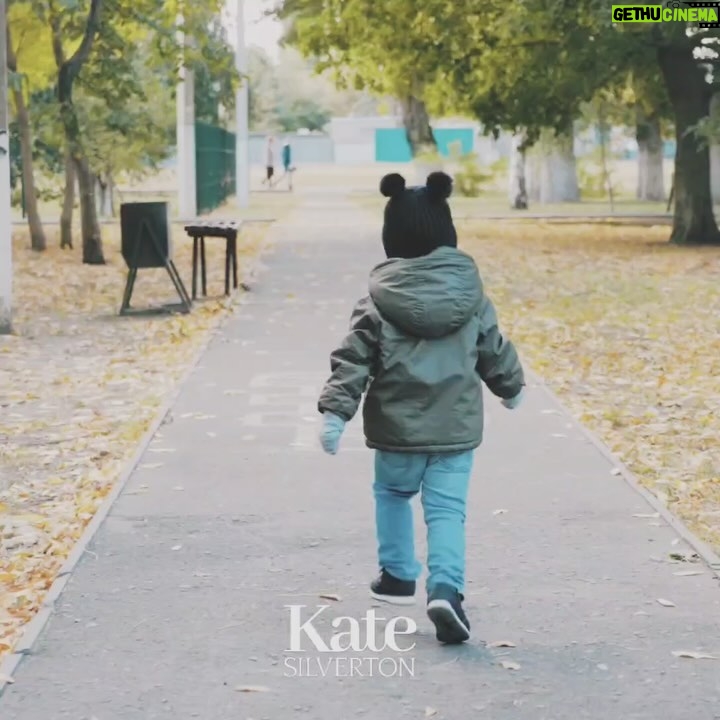
1.8K Likes – Kate Silverton Instagram
Caption : What an incredible response; from parents, grandparents and teachers alike – all aligned in powerful advocacy of our children & calling for more time spent in movement & play. Our children’s brains and bodies are designed by nature to move and to play .. in fact, it’s crucial for healthy mental AND physical development. In my books, I explain why play and movement SUPPORT learning and more regulated behaviour in the classroom. Policy makers are getting it wrong if they think forcing young children to sit still and ‘be quiet’ is the way to instil ‘discipline’ and indeed good future mental health Many young children are unable to self-regulate this way – they need to move their bodies to remove residual and natural stress energy before they are able to sit still and learn. This is not my opinion: this is science: and any academic institution and anyone in the position of policy making does well to familiarise themselves with it. Science shows us that even short periods of movement can help to reduce stress energy in the body – and can therefore support calmer more regulated behaviour in the classroom. For older children this may be as simple as standing up to do what I call the ‘shake it out’ during long lessons, and for younger children, anything patterned repetitive and rhythmic ( a dance to music at the start of the day, throwing a ball back and forth, star jumps, drumming, singing, dancing ) all support emotional and physical regulation, rather than little bodies being forced to sit still ‘on the mat’ for periods that may be too long for their still-developing brains. Swipe ➡️ to see just some of the comments shared with me today I volunteer as a counsellor in schools – I know the issues are multi-faceted & can be complex. But we can only create change when we come together. There are many issues at stake and we can only start where we are – but we begin by bringing the joy back into the classroom & putting our children’s needs first & foremost – their future health & happiness depends on it.Likes : 1826
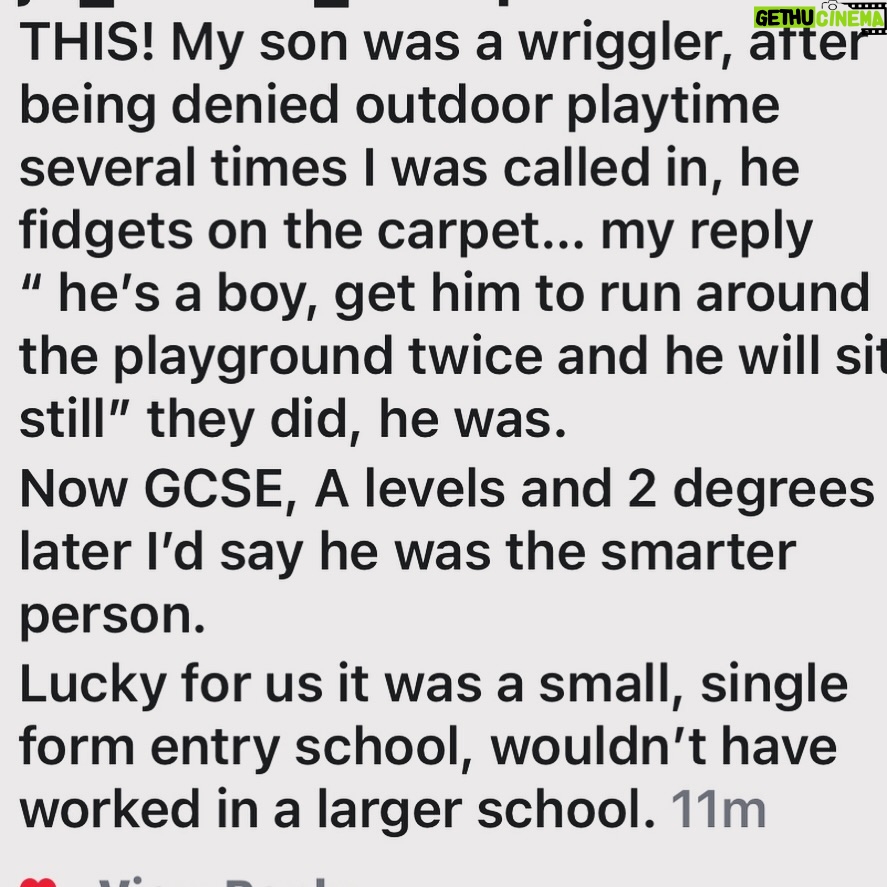
1.8K Likes – Kate Silverton Instagram
Caption : What an incredible response; from parents, grandparents and teachers alike – all aligned in powerful advocacy of our children & calling for more time spent in movement & play. Our children’s brains and bodies are designed by nature to move and to play .. in fact, it’s crucial for healthy mental AND physical development. In my books, I explain why play and movement SUPPORT learning and more regulated behaviour in the classroom. Policy makers are getting it wrong if they think forcing young children to sit still and ‘be quiet’ is the way to instil ‘discipline’ and indeed good future mental health Many young children are unable to self-regulate this way – they need to move their bodies to remove residual and natural stress energy before they are able to sit still and learn. This is not my opinion: this is science: and any academic institution and anyone in the position of policy making does well to familiarise themselves with it. Science shows us that even short periods of movement can help to reduce stress energy in the body – and can therefore support calmer more regulated behaviour in the classroom. For older children this may be as simple as standing up to do what I call the ‘shake it out’ during long lessons, and for younger children, anything patterned repetitive and rhythmic ( a dance to music at the start of the day, throwing a ball back and forth, star jumps, drumming, singing, dancing ) all support emotional and physical regulation, rather than little bodies being forced to sit still ‘on the mat’ for periods that may be too long for their still-developing brains. Swipe ➡️ to see just some of the comments shared with me today I volunteer as a counsellor in schools – I know the issues are multi-faceted & can be complex. But we can only create change when we come together. There are many issues at stake and we can only start where we are – but we begin by bringing the joy back into the classroom & putting our children’s needs first & foremost – their future health & happiness depends on it.Likes : 1826
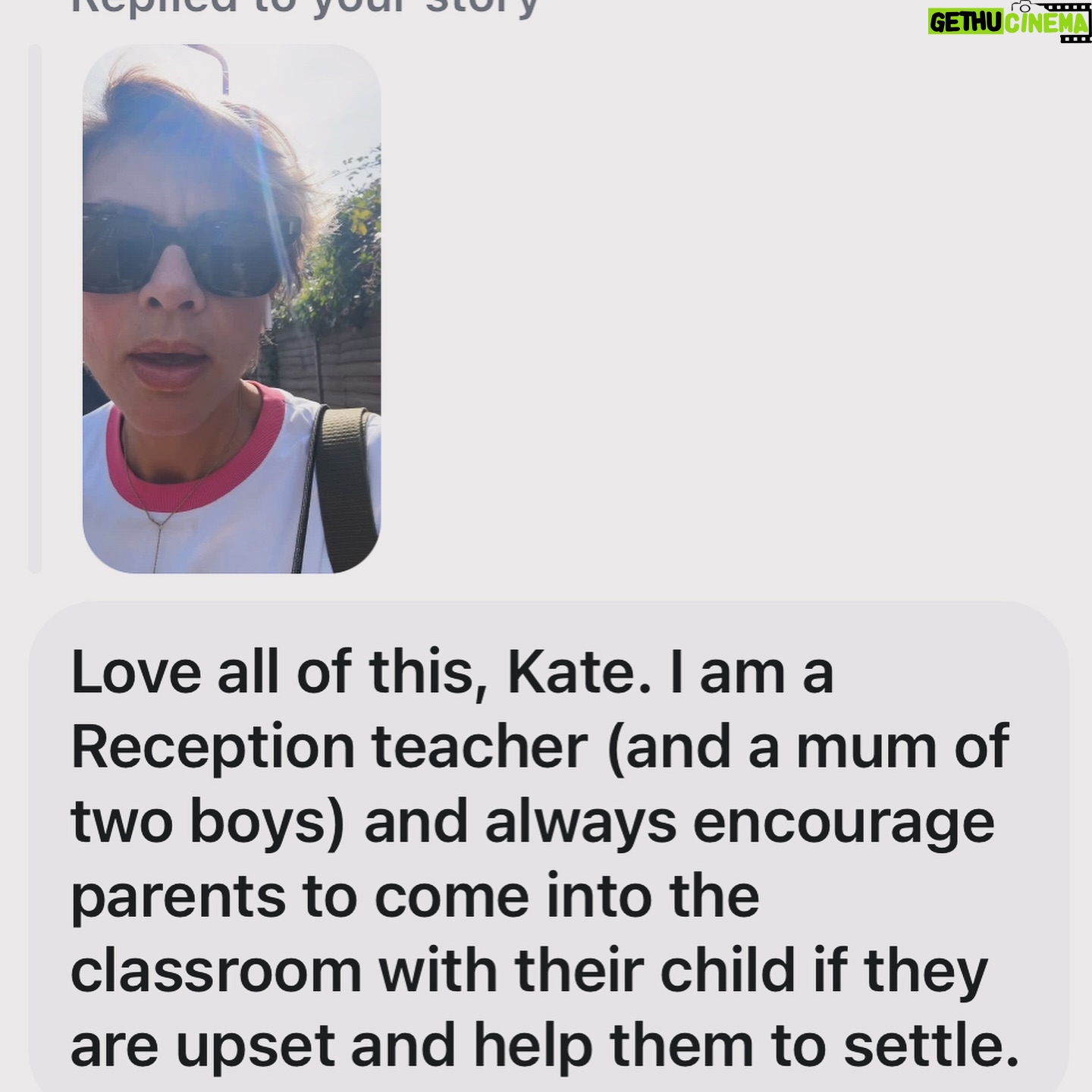
1.8K Likes – Kate Silverton Instagram
Caption : What an incredible response; from parents, grandparents and teachers alike – all aligned in powerful advocacy of our children & calling for more time spent in movement & play. Our children’s brains and bodies are designed by nature to move and to play .. in fact, it’s crucial for healthy mental AND physical development. In my books, I explain why play and movement SUPPORT learning and more regulated behaviour in the classroom. Policy makers are getting it wrong if they think forcing young children to sit still and ‘be quiet’ is the way to instil ‘discipline’ and indeed good future mental health Many young children are unable to self-regulate this way – they need to move their bodies to remove residual and natural stress energy before they are able to sit still and learn. This is not my opinion: this is science: and any academic institution and anyone in the position of policy making does well to familiarise themselves with it. Science shows us that even short periods of movement can help to reduce stress energy in the body – and can therefore support calmer more regulated behaviour in the classroom. For older children this may be as simple as standing up to do what I call the ‘shake it out’ during long lessons, and for younger children, anything patterned repetitive and rhythmic ( a dance to music at the start of the day, throwing a ball back and forth, star jumps, drumming, singing, dancing ) all support emotional and physical regulation, rather than little bodies being forced to sit still ‘on the mat’ for periods that may be too long for their still-developing brains. Swipe ➡️ to see just some of the comments shared with me today I volunteer as a counsellor in schools – I know the issues are multi-faceted & can be complex. But we can only create change when we come together. There are many issues at stake and we can only start where we are – but we begin by bringing the joy back into the classroom & putting our children’s needs first & foremost – their future health & happiness depends on it.Likes : 1826

1.8K Likes – Kate Silverton Instagram
Caption : What an incredible response; from parents, grandparents and teachers alike – all aligned in powerful advocacy of our children & calling for more time spent in movement & play. Our children’s brains and bodies are designed by nature to move and to play .. in fact, it’s crucial for healthy mental AND physical development. In my books, I explain why play and movement SUPPORT learning and more regulated behaviour in the classroom. Policy makers are getting it wrong if they think forcing young children to sit still and ‘be quiet’ is the way to instil ‘discipline’ and indeed good future mental health Many young children are unable to self-regulate this way – they need to move their bodies to remove residual and natural stress energy before they are able to sit still and learn. This is not my opinion: this is science: and any academic institution and anyone in the position of policy making does well to familiarise themselves with it. Science shows us that even short periods of movement can help to reduce stress energy in the body – and can therefore support calmer more regulated behaviour in the classroom. For older children this may be as simple as standing up to do what I call the ‘shake it out’ during long lessons, and for younger children, anything patterned repetitive and rhythmic ( a dance to music at the start of the day, throwing a ball back and forth, star jumps, drumming, singing, dancing ) all support emotional and physical regulation, rather than little bodies being forced to sit still ‘on the mat’ for periods that may be too long for their still-developing brains. Swipe ➡️ to see just some of the comments shared with me today I volunteer as a counsellor in schools – I know the issues are multi-faceted & can be complex. But we can only create change when we come together. There are many issues at stake and we can only start where we are – but we begin by bringing the joy back into the classroom & putting our children’s needs first & foremost – their future health & happiness depends on it.Likes : 1826

1.8K Likes – Kate Silverton Instagram
Caption : What an incredible response; from parents, grandparents and teachers alike – all aligned in powerful advocacy of our children & calling for more time spent in movement & play. Our children’s brains and bodies are designed by nature to move and to play .. in fact, it’s crucial for healthy mental AND physical development. In my books, I explain why play and movement SUPPORT learning and more regulated behaviour in the classroom. Policy makers are getting it wrong if they think forcing young children to sit still and ‘be quiet’ is the way to instil ‘discipline’ and indeed good future mental health Many young children are unable to self-regulate this way – they need to move their bodies to remove residual and natural stress energy before they are able to sit still and learn. This is not my opinion: this is science: and any academic institution and anyone in the position of policy making does well to familiarise themselves with it. Science shows us that even short periods of movement can help to reduce stress energy in the body – and can therefore support calmer more regulated behaviour in the classroom. For older children this may be as simple as standing up to do what I call the ‘shake it out’ during long lessons, and for younger children, anything patterned repetitive and rhythmic ( a dance to music at the start of the day, throwing a ball back and forth, star jumps, drumming, singing, dancing ) all support emotional and physical regulation, rather than little bodies being forced to sit still ‘on the mat’ for periods that may be too long for their still-developing brains. Swipe ➡️ to see just some of the comments shared with me today I volunteer as a counsellor in schools – I know the issues are multi-faceted & can be complex. But we can only create change when we come together. There are many issues at stake and we can only start where we are – but we begin by bringing the joy back into the classroom & putting our children’s needs first & foremost – their future health & happiness depends on it.Likes : 1826
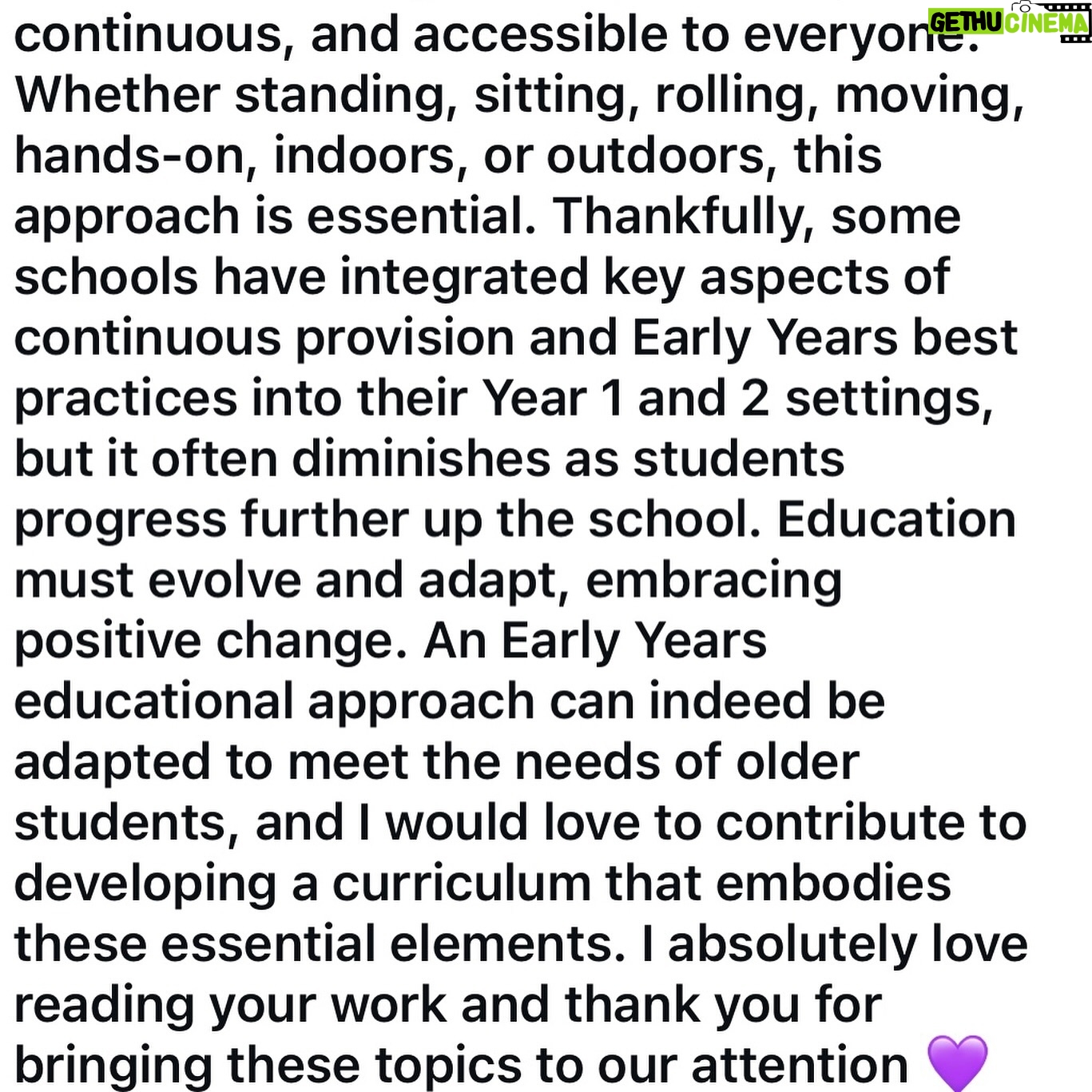
1.8K Likes – Kate Silverton Instagram
Caption : What an incredible response; from parents, grandparents and teachers alike – all aligned in powerful advocacy of our children & calling for more time spent in movement & play. Our children’s brains and bodies are designed by nature to move and to play .. in fact, it’s crucial for healthy mental AND physical development. In my books, I explain why play and movement SUPPORT learning and more regulated behaviour in the classroom. Policy makers are getting it wrong if they think forcing young children to sit still and ‘be quiet’ is the way to instil ‘discipline’ and indeed good future mental health Many young children are unable to self-regulate this way – they need to move their bodies to remove residual and natural stress energy before they are able to sit still and learn. This is not my opinion: this is science: and any academic institution and anyone in the position of policy making does well to familiarise themselves with it. Science shows us that even short periods of movement can help to reduce stress energy in the body – and can therefore support calmer more regulated behaviour in the classroom. For older children this may be as simple as standing up to do what I call the ‘shake it out’ during long lessons, and for younger children, anything patterned repetitive and rhythmic ( a dance to music at the start of the day, throwing a ball back and forth, star jumps, drumming, singing, dancing ) all support emotional and physical regulation, rather than little bodies being forced to sit still ‘on the mat’ for periods that may be too long for their still-developing brains. Swipe ➡️ to see just some of the comments shared with me today I volunteer as a counsellor in schools – I know the issues are multi-faceted & can be complex. But we can only create change when we come together. There are many issues at stake and we can only start where we are – but we begin by bringing the joy back into the classroom & putting our children’s needs first & foremost – their future health & happiness depends on it.Likes : 1826

1.8K Likes – Kate Silverton Instagram
Caption : On the issue of #screentimealternatives – thank you @thejuggleuk for publishing an extract of my book ‘there’s still no such thing as naughty’ following their post below .. ‘As adults, we’re slowly waking up to the negative impact screens have on our lives. So why is the amount of time our children are spending on screens increasing? In her new book, There’s Still No Such Thing As Naughty: Parenting In The Primary Years, @katesilverton explores exactly what screentime is doing to our children’s brains and behaviour. Tap the link in my bio to read an exclusive extract’.Likes : 1804

1.8K Likes – Kate Silverton Instagram
Caption : Why do our children HATE putting on certain clothes or wearing ‘too tight’ shoes !!! Understanding the nervous system allows us to put our children’s more erratic – seemingly irrational behaviour into clearer context If our nervous system is fired up and what I think of as ‘fizzy’, it can make us more sensitive to what we can see / hear / smell / touch / taste … and can manifest in any number of ways … having a meltdown over a ‘too tight’ school shirt, or an ‘itchy scratchy’ jumper … Seeing beyond the behaviour – and wondering to ourselves what else might be going on ( is my child feeling anxious about going to school … did something happen yesterday that is now seeing his/ her nervous system fired up and hyper sensitive ? .. allows us to stop, take a breath and then SOOTHE … ‘oh sweetheart so you don’t like this jumper ? It’s scratchy ? Ok come let me help … ‘ allows the fizzy lizard as I think of it, in our child’s brain ( in reality their brain stem / nervous system ) to calm down a little … which allows their ‘little owl’ the pre frontal cortex – the regulating part of the brain a to step in and do a bit of self soothing too … once our children are calm they are more able to tell us what’s driving the behaviour ‘I’m nervous because the teacher told me off yesterday’ or ‘when I tried to take the shirt off in PE it got caught over my face and I couldn’t breathe ‘ ( both real life examples from my own home ) Being sensitive to noise / sound / touch is not ‘abnormal’ but rather the sign of a nervous system that’s on high alert … helping our children to rebalance and return to calm is the quickest way to helping them to solve the problem and feel soothed in the process … and – as an aside, just as WE wouldn’t like to be forced to wear something that itches us – neither should our children ! Let me know in the comments your thoughts and the things your child finds difficult – and how you might now see the situation differently AND – let me know yes / no ( and why ) if this post helps ! #sensory #school #parenting #parentingtips #mentalhealthawarenessLikes : 1753

1.7K Likes – Kate Silverton Instagram
Caption : Just a quick thank you to @happyplaceofficial @fearnecotton and to you, for your questions and thoughts following today’s podcast. Having retrained as a children’s counsellor as well as having two young children myself I consider this as my life’s work – to use my journalism to share the science that helps us to better understand our children – and indeed ourselves. I’ll post this week about ANGER and RAGE and how we can help our children to learn how to express these big emotions safely – as much as helping us to learn how to better regulate ourselves. It’s a topic that has clearly resonates, along with all else that Fearne and I discussed too. Please leave comments if you have listened to the podcast and any thoughts / questions you wish to share. The book is published on the 28th March – I cannot wait ! #parenting #parentingtips #mentalhealth #familyLikes : 1719
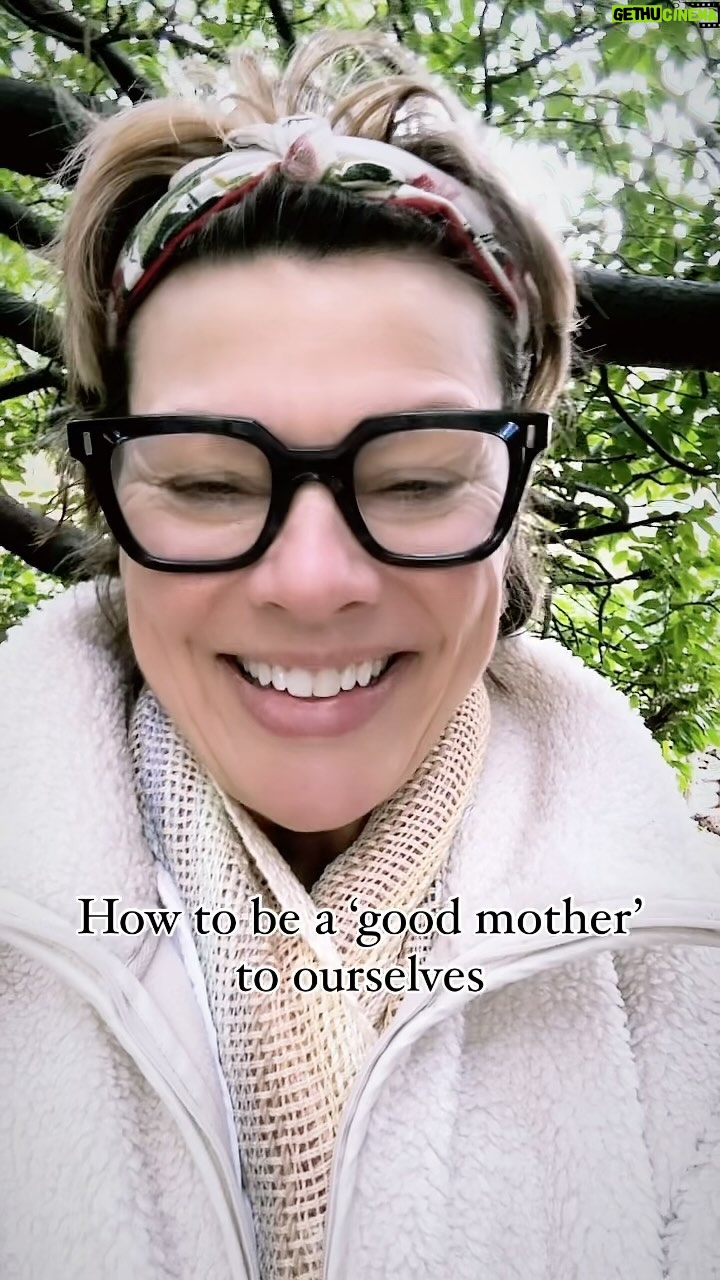
1.7K Likes – Kate Silverton Instagram
Caption : On this, #mothersday we may experience conflicting emotions… A sense of great love, closeness, and admiration for our mothers, and all that they have given us. And we may experience the deep sense of the love we have for our children, and they for us But deep feelings of loss and a sense of grief can sometimes arise too, especially if we didn’t experience such a sense of joy and compassion ourselves as a child .. It is then we might be left wondering.. Do my children really love and appreciate me? Do I really love and appreciate my mum? Did she really love and appreciate me… if these more conflicting messages arise for you; take this #motheringsunday and make it your own… practice being a good mother to yourself .. having compassion for your inner ‘SELF’ – the inner child that exists within us all … the child wounded ( as we all are at times ) in childhood and perhaps still carries those wounds if they were not healed by compassion extended to us at the time This, in therapy, is how we learn to heal, to break trans-generational cycles, leaving us able be a good mother to ourselves, as much as being a good mother to our children Doing this work means we can forgive our own mothers, considering that they did their best …and we can now try to do things better … Practicing self-compassion for me is at the heart of being a good mother Because It is only when we can practice deep compassion for ourselves, that we are able to feel deep compassion in our hearts for our children .. ♥️ Comment YES if this resonates with you – and if it helps, leave a message of hope and love for yourself and others #parentingtips #parenting #motheringsunday #mothersday #healing #compassion #selfcompassion #mentalhealthLikes : 1689
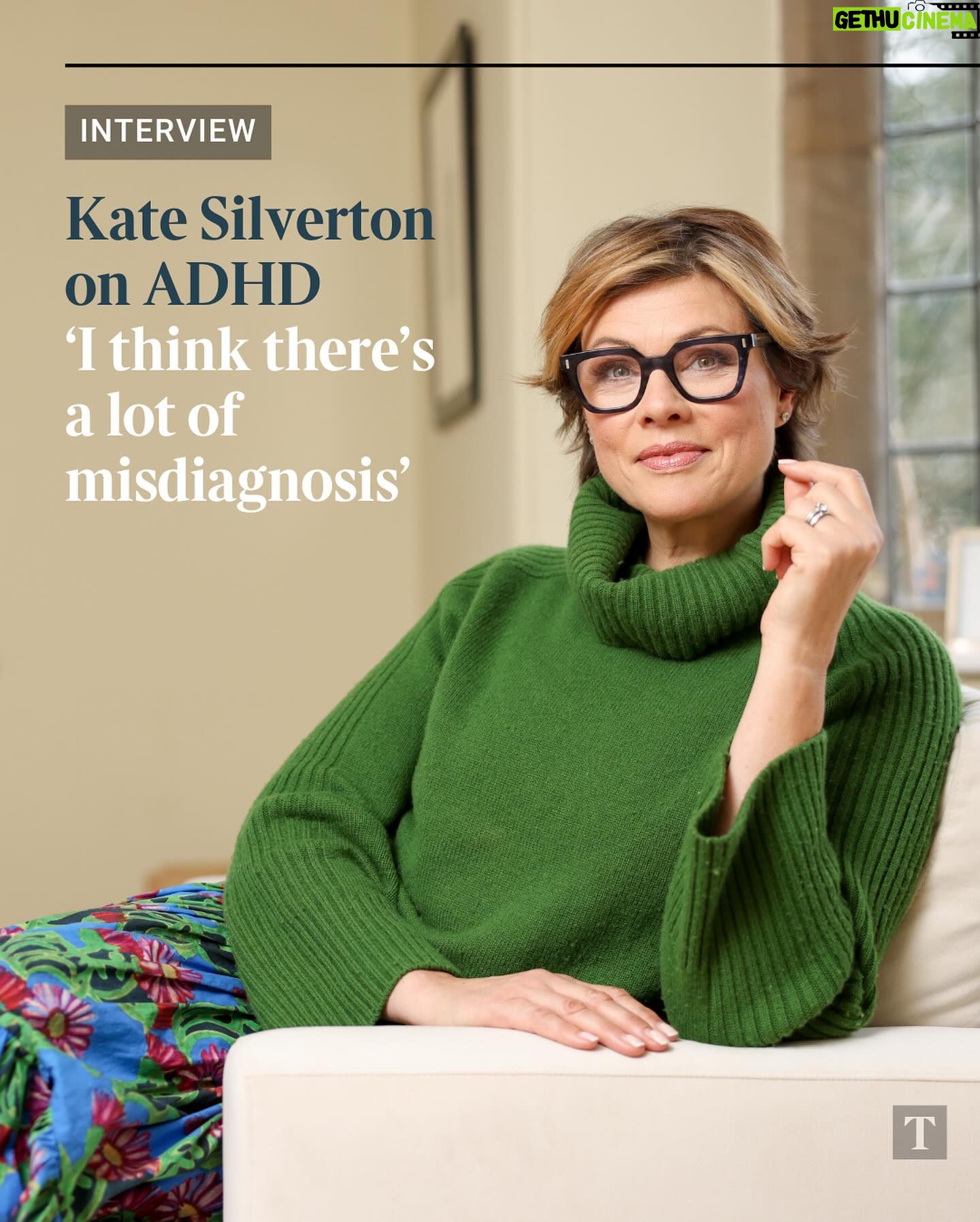
1.7K Likes – Kate Silverton Instagram
Caption : By the 1990s the mood had hardened again as a reaction against unruly progressive schools. Gina Ford became a household name for imposing strict schedules on babies, and Jo Frost, aka Supernanny, became a television star for wearing dominatrix black leather gloves and threatening time-outs. Asimilar spirit currently pervades a network of mainly urban state schools that enforce quiet compliance from students through techniques like isolation rooms and restricted playtime. Most famous among them is Michaela Community School in Wembley, London, both academically outstanding and “the strictest school in Britain”, led by Katharine Birbalsingh, who posted on social media that children had “original sin”. What about isolation periods? “There is absolutely no need for these shaming, suppressing policies,” Silverton says. “I’m thinking about schools now. We have really lost our way when we think this is how to treat children. Seriously.” 🔗Click the link in the bio to read the full interviewLikes : 1679
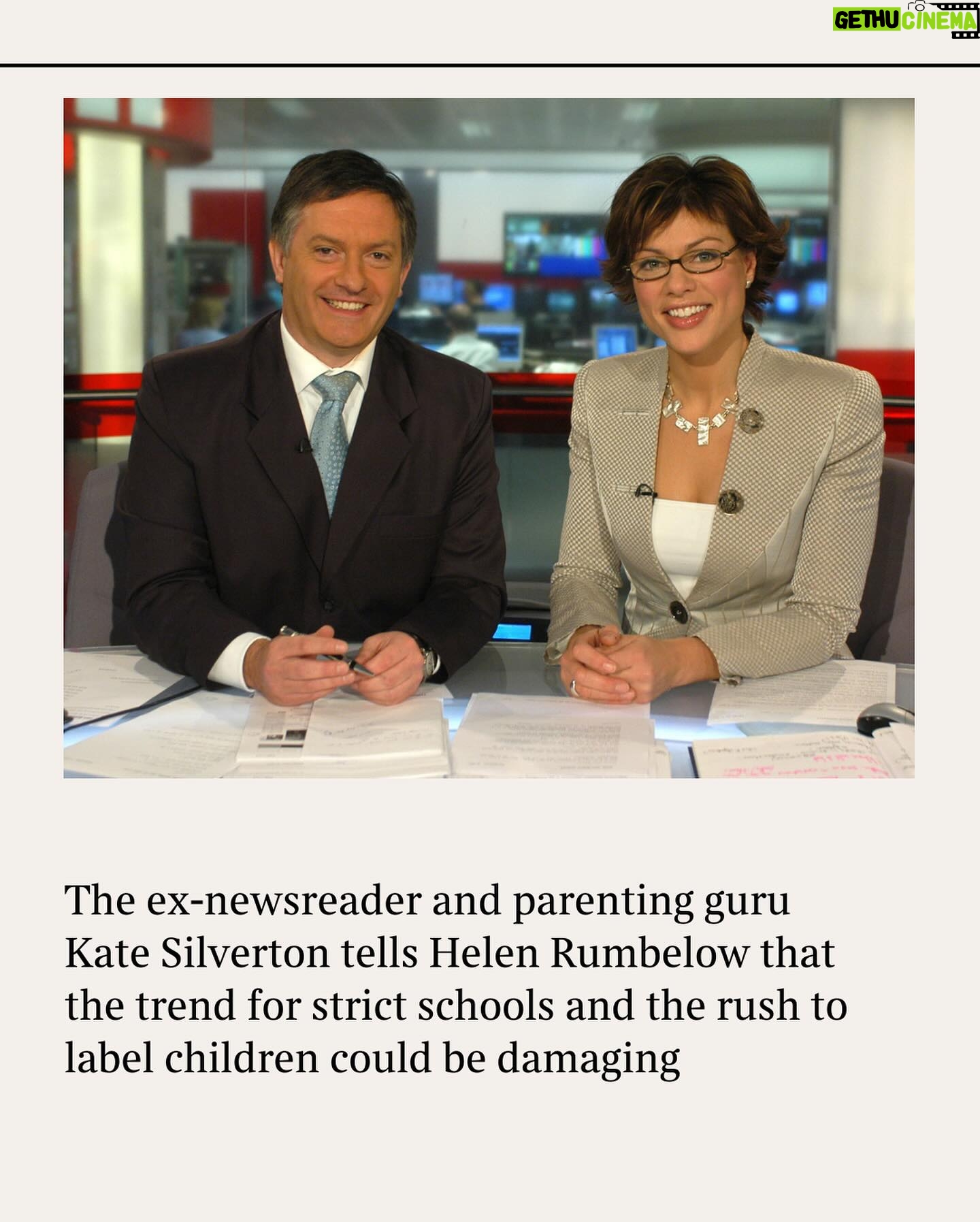
1.7K Likes – Kate Silverton Instagram
Caption : By the 1990s the mood had hardened again as a reaction against unruly progressive schools. Gina Ford became a household name for imposing strict schedules on babies, and Jo Frost, aka Supernanny, became a television star for wearing dominatrix black leather gloves and threatening time-outs. Asimilar spirit currently pervades a network of mainly urban state schools that enforce quiet compliance from students through techniques like isolation rooms and restricted playtime. Most famous among them is Michaela Community School in Wembley, London, both academically outstanding and “the strictest school in Britain”, led by Katharine Birbalsingh, who posted on social media that children had “original sin”. What about isolation periods? “There is absolutely no need for these shaming, suppressing policies,” Silverton says. “I’m thinking about schools now. We have really lost our way when we think this is how to treat children. Seriously.” 🔗Click the link in the bio to read the full interviewLikes : 1679
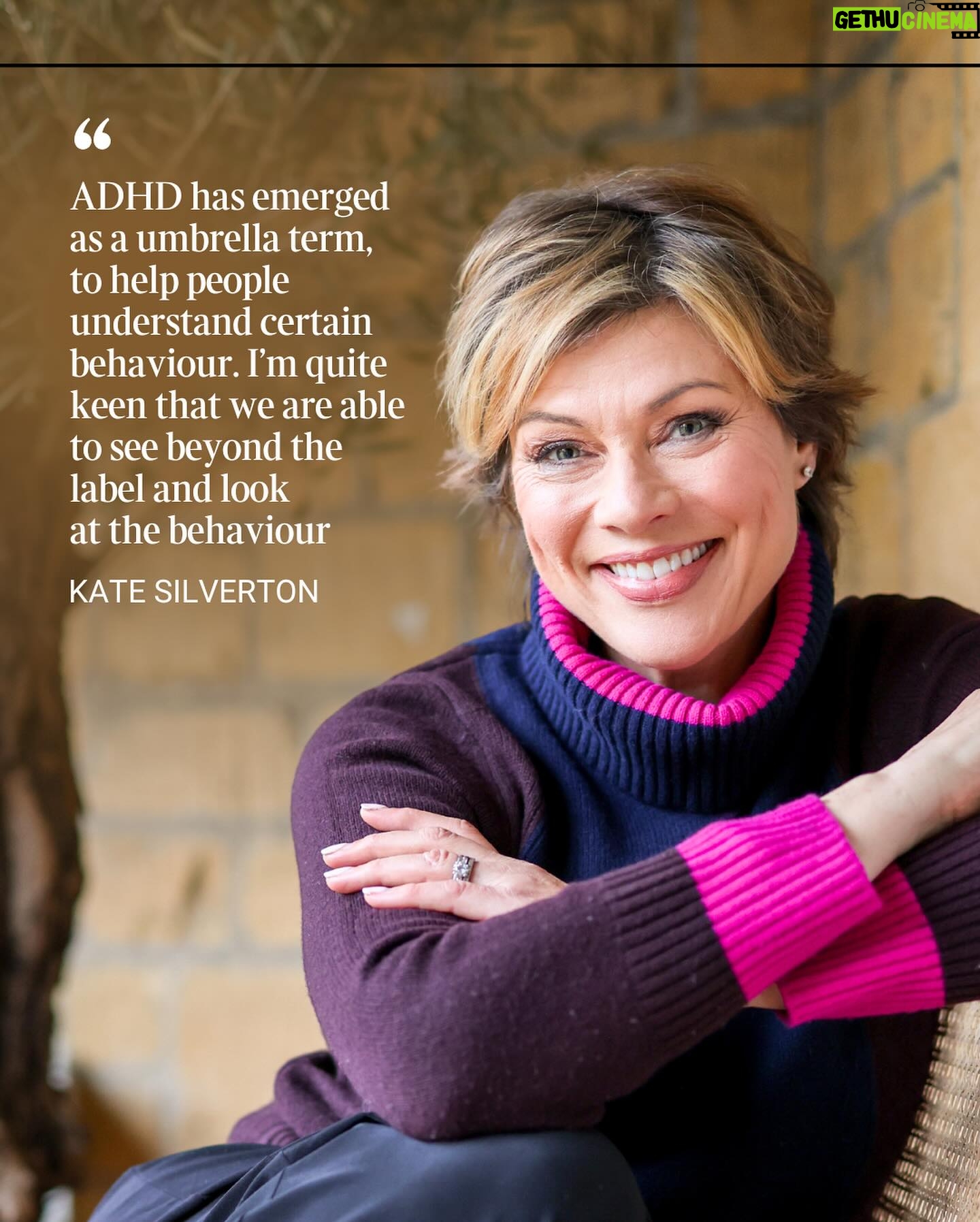
1.7K Likes – Kate Silverton Instagram
Caption : By the 1990s the mood had hardened again as a reaction against unruly progressive schools. Gina Ford became a household name for imposing strict schedules on babies, and Jo Frost, aka Supernanny, became a television star for wearing dominatrix black leather gloves and threatening time-outs. Asimilar spirit currently pervades a network of mainly urban state schools that enforce quiet compliance from students through techniques like isolation rooms and restricted playtime. Most famous among them is Michaela Community School in Wembley, London, both academically outstanding and “the strictest school in Britain”, led by Katharine Birbalsingh, who posted on social media that children had “original sin”. What about isolation periods? “There is absolutely no need for these shaming, suppressing policies,” Silverton says. “I’m thinking about schools now. We have really lost our way when we think this is how to treat children. Seriously.” 🔗Click the link in the bio to read the full interviewLikes : 1679

1.7K Likes – Kate Silverton Instagram
Caption : By the 1990s the mood had hardened again as a reaction against unruly progressive schools. Gina Ford became a household name for imposing strict schedules on babies, and Jo Frost, aka Supernanny, became a television star for wearing dominatrix black leather gloves and threatening time-outs. Asimilar spirit currently pervades a network of mainly urban state schools that enforce quiet compliance from students through techniques like isolation rooms and restricted playtime. Most famous among them is Michaela Community School in Wembley, London, both academically outstanding and “the strictest school in Britain”, led by Katharine Birbalsingh, who posted on social media that children had “original sin”. What about isolation periods? “There is absolutely no need for these shaming, suppressing policies,” Silverton says. “I’m thinking about schools now. We have really lost our way when we think this is how to treat children. Seriously.” 🔗Click the link in the bio to read the full interviewLikes : 1679

1.7K Likes – Kate Silverton Instagram
Caption : Ask a teenager what they’d most like to hear from their parents … and many of them will tell you ‘ apologise when they get things wrong ‘ Apologising when we get things wrong is important for our younger children to hear too When we are tired, stressed, and juggling too many plates, it can see us operating in what I call our baboon – from a more reactive, emotional place. When we engage our ‘wise owl’ brain – the pre frontal cortex, we can more readily and instinctively see beneath our children’s behaviour .. sibling squabbles is more often a sign that one child is feeling ‘less than’ … so we will want to support, not shout … saying sorry if we get things wrong in the moment is not weak Saying sorry does not mean endorsing your child’s behaviour if they are squabbling Saying sorry means ‘I could have responded differently and I am sorry for not speaking more kindly / getting that wrong’ We cannot expect our children to learn how to behave appropriately – and give an authentic apology when they make mistakes – if we cannot model it ourselves Just as there’s ’no such thing as naughty’ there’s also no such thing as a ‘perfect parent’ – apologise if an occasion calls for it and see the bond between you and your children STRENGTHEN … ♥️ #parentingtips #parenting #therapy #mentalhealthLikes : 1665
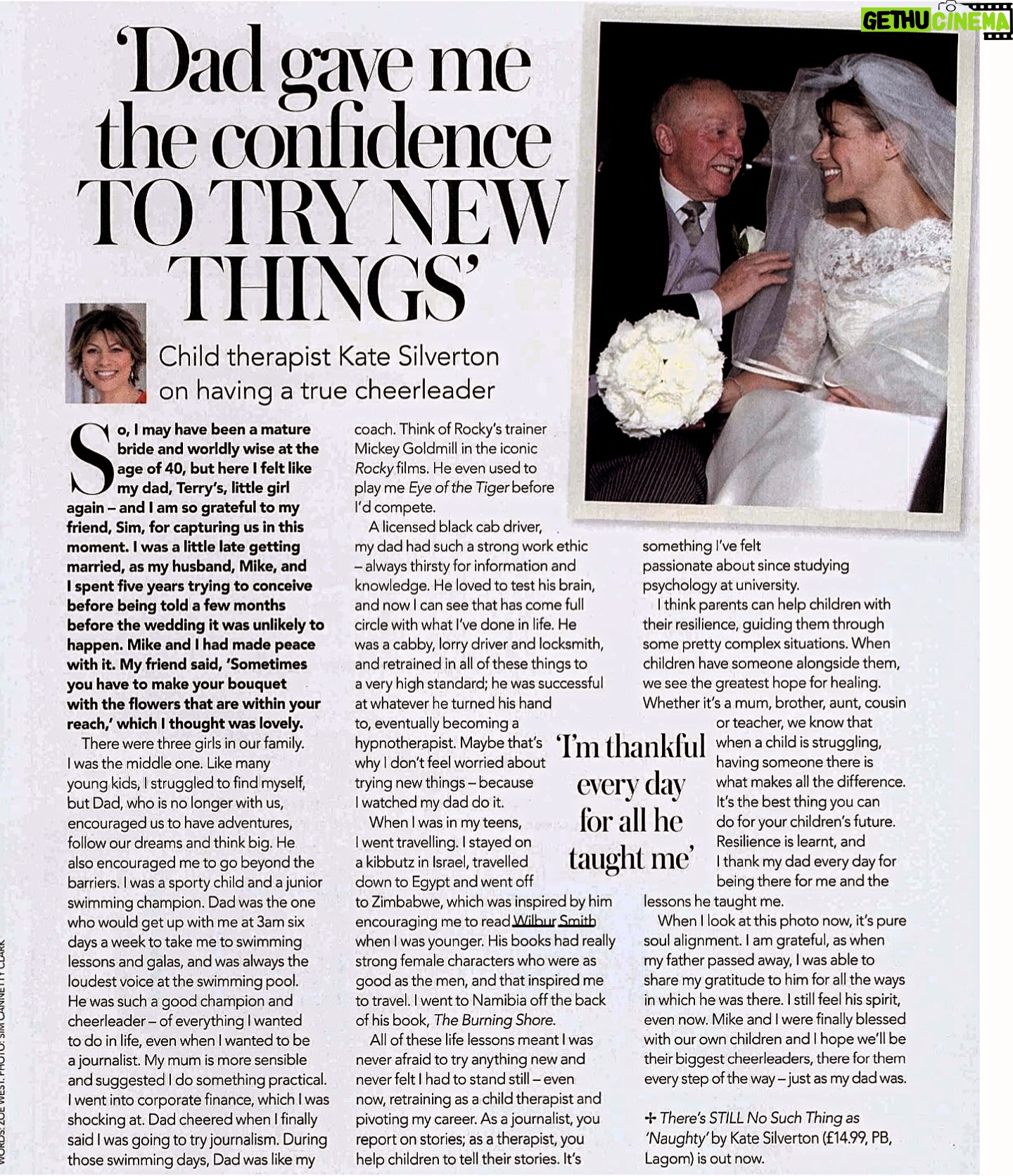
1.6K Likes – Kate Silverton Instagram
Caption : Beautiful tribute to my darling dad Terence George – Terry … in this months @womanandhome magazine. He is no longer by my side but always in my heart and in spirit.. thank you @womanandhome for such a beautiful feature on how his inspiration and legacy lives on ♥️ Thank you @simphotographyuk for capturing such a beautiful memory for life #father #fatherhood #parenting #family #love #daughterlove❤️Likes : 1639
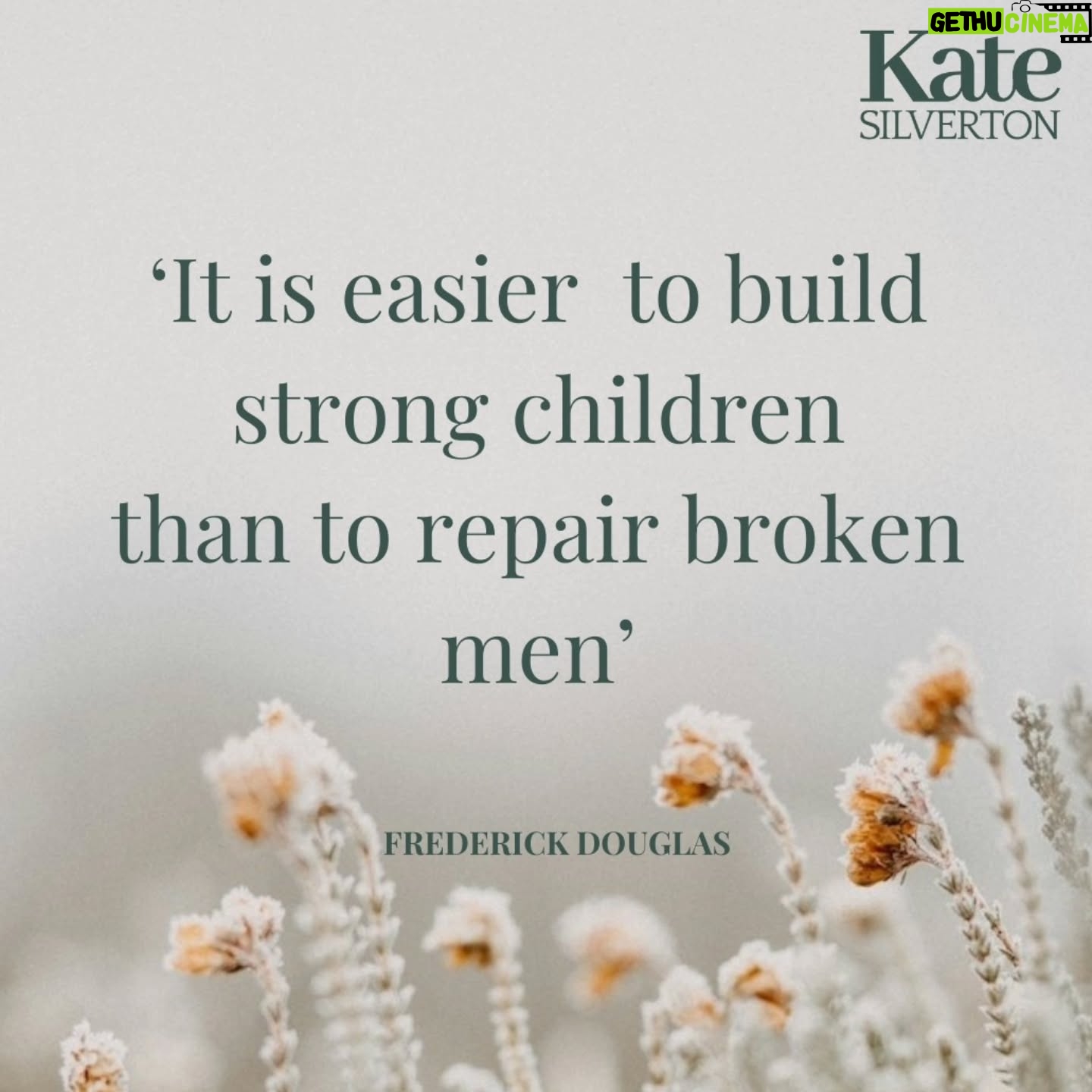
1.6K Likes – Kate Silverton Instagram
Caption : Healing my childhood wounds as an adult has taken far longer than it would have with the right support as a child. 🩹🩹 Never be afraid to ask for help—whether for your child or yourself. A conversation with a trusted and emotionally available friend, GP, or teacher can make all the difference. Children heal quickly with the right support, and we all need help sometimes. I know I have. See it as a gift—for you, and for them. 🎁🤍 #HealingStartsNow #supportthenextgeneration #katesilverton #preventmentalhealthissues #preventbrokenchildren #support #rightsupport #parentingadvice #parentingbookLikes : 1626

1.6K Likes – Kate Silverton Instagram
Caption : All animals have a fight/flight defensive response – if they feel threatened they draw on a number of only a few responses – fight, flight, flop, freeze – and also fawn ( pleasing/ over compliance ) and our children ( and we ) have it too. In parenting it means we might be faced with a child who is aggressive / oppositional ( FIGHT ) if they are put in a position that their brain detects is threatening ( eg going somewhere new for the first time, taking a new dance / exercise class, going to school on the first day / asked a question they don’t know the answer to in class ) or FLIGHT .. which can see a child run around, or run away from you… FLOP .. a child might drop to the floor refusing to move … this is not ‘naughty’ … this is a child in the middle of neurochemical overwhelm – a stress response Finally a child might FREEZE – and go mute, seemingly unable or refusing to speak or answer your questions I will talk about FAWN in more depth is as it multi-faceted response and we want to spot the child who is being over compliant even at the expense of their own well-being Much more on all of this in my book ‘there’s STILL no such thing as naughty’ for parents with children from five years old … lots of exercises and tips to help you and your child when they are in the middle of their fight / flight stress response You can PREORDER now, link in the bio #parenting #parentingtips #fightflightfreezefawn #oppositionaldefiantdisorderLikes : 1618
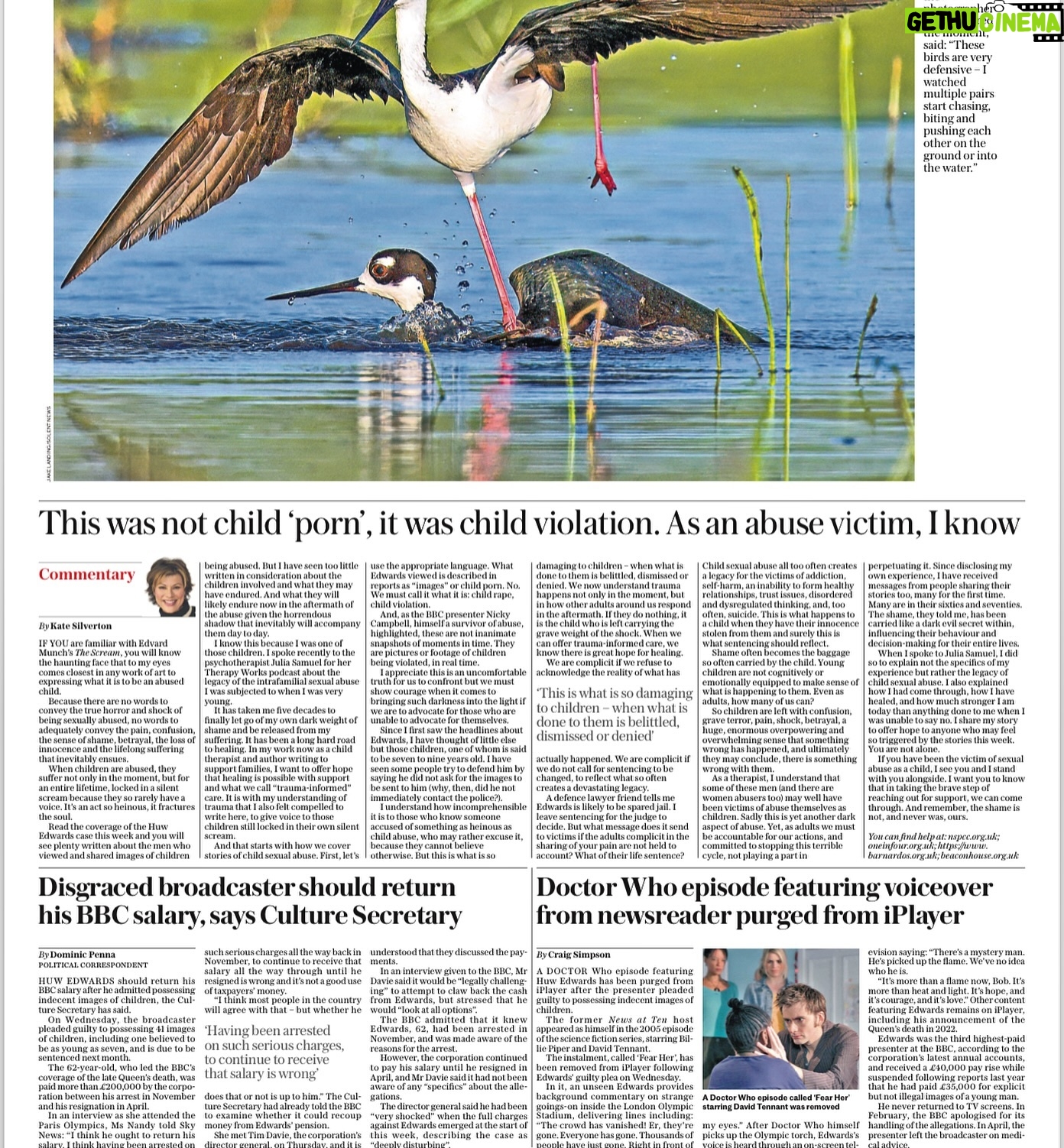
1.6K Likes – Kate Silverton Instagram
Caption : My commentary in the @telegraph today On behalf of the children Thank you all for your kind support and words on here, they have meant a great deal, and I am so glad to know that it is bringing some comfort and release, for those of you who have experienced the same 🙏🏼 More to come on this issue as I hope we can raise awareness and effect positive change for all – and look at how we can embed trauma informed care at every level of our society – whether in the media and reporting cases, the legal system, schools, healthcare and beyond. I am always keen to hear from you about ways we may effect change and what this means for you a please do leave any thoughts in the comments or DM Then it’s back to parenting and responding to all your other messages asking for support and thoughts as we continue to navigate the summer holidays ! X #abuse #trauma #traumahealing #traumainformed @nspcc_official l @beaconhouseteam @mindcharity @the.greenhousebristol @one_in_four_ukLikes : 1591

1.6K Likes – Kate Silverton Instagram
Caption : Anxiety is a normal part of what it is to be human… it’s our nervous system’s way of telling us ‘I don’t feel safe’ … and because our brain hasn’t evolved to tell the difference between threatening thoughts as much as threatening events … an upcoming job interview can give us sweaty palms and a racing heart … in the same way as having a near miss on the motorway … we are primed to fight/flight in situations of challenge … if we feel unable to escape or overcome .. we can be left with those ongoing feelings of ‘anxiousness’ I am going to show you how to help you – and your children – soothe those ‘fizzy’ feelings …and start a real co versatile about how to achieve true mental health and find balance ! TAG someone you know who might appreciate hearing this #anxiety #mentalhealth #mentalhealthawareness #parentingtipsLikes : 1570

1.6K Likes – Kate Silverton Instagram
Caption : With the news agenda focused on behaviour in schools the podcast I recorded with @avantulleken and Dr. Rochelle Burgess @uclpophealthsc @ioelondon is very timely. We dissected the challenges faced by schools and parents in supporting children’s mental health and the innovative ways to foster well-being through nature and the arts. I spoke about the variability of mental health support in schools and the critical need for standardised, professionally trained mental health professionals on-site. Plus, the importance of understanding the neuroscience behind children’s behaviour I shared some of the practical, science-backed strategies found in my new book, There’s Still No Such Thing as Naughty too. You can listen to the full podcast now through the link in my story #parenting #parentingtips #education #mentalhealthawareness #mentalhealth Love to hear your thoughts in the comments – and experiences you may wish to share about schools, behaviour policies and how much time your children are currently spending outside in play / learning / connectionLikes : 1553

1.5K Likes – Kate Silverton Instagram
Caption : What’s the hardest thing to do when your kids seem intent on pushing every button ? BE PLAYFUL ! I get why it can feel counter intuitive to be playful when we are feeling cross … but… stopping to pause, take a breath, and remembering that it’s our children’s BEHAVIOUR – not them that we are finding frustrating – allows us to take things less personally ( even though I know it can feel bl**dy personal at times !) Finding humour, being playful, can wrong foot our child’s ‘baboon’ and help everyone find a place that’s much easier to navigate from than when our own baboon is on the rampage too. #parenting #parentingtips #siblingsLikes : 1499

1.5K Likes – Kate Silverton Instagram
Caption : Mental health is not about never experiencing anxiety or stress … it’s about working with our nervous system when it’s in fight / flight. It’s about finding ways to work WITH the symptoms of discomfort that will often arise within us when we are faced with challenge. When we understand the science of our stress response – when we see it as a normal response to a situation our brain finds threatening .. we can work with it. We can harness the energy of our stress .. and learn to then let it go. It takes time, and practice – but when we teach our children to do it from an early age .. we do them a great service .. for this is where the roots of resilience grow x TAG someone who might need to see / hear this today – especially your children Tell them I am 53 and I can STILL sometimes feel overwhelmed by the discomfort of the symptoms when I am in fight/flight … but with practice and faith, I can also trust I will ‘come through’ Life is richer when we can embrace all that it brings .. teaching your child how to embrace their nervous system when it’s fired up and learn how to bring themselves back to calm is one of the biggest gifts you can give them – start by showing them this reel today .. #anxiety #stress #stressrelief #anxietyrelief #parentingtips #mentalhealthLikes : 1475

1.5K Likes – Kate Silverton Instagram
Caption : A whirlwind of a few days culminated this morning with an interview @skynews with the wonderful Anna Jones, a former BBC colleague, and what a joy to see her and discuss ‘there’s still no such thing as naughty’ and my change of career from broadcaster to child therapist. Thank you for all your messages and words of support … especially my card and flowers from my gorgeous friend @dipika.j.a Together we can advocate for our children and, I believe, together we can effect positive change when it comes to influencing more evidence-based polices that will better support our children – their happiness and future mental health. The book links are in my bio and I’ll be back on here after the bank holiday with more reels with information and science made accessible to support you in your parenting and your happiness and health too ♥️ #mentalhealth #childrensemotionsLikes : 1471

1.5K Likes – Kate Silverton Instagram
Caption : So… today was quite the ride ! After almost three years of being cooped up in a tiny brick shed, surrounded by research papers, numerous books, boosted by coffee and chocolate … while mummying my smalls and volunteering in schools to work clinically with young children in need, I managed, by some feat, to produce ‘there’s still no such thing as naughty’ – my second book on parenting, and tonight an Amazon number one bestseller – thanks to you 💪🏼🙏🏼 and to @thismorning @virginradiouk for the support Thank you too for sharing in the excitement and for investing in my work. I hope you find what I have written a comfort and support. I’ve written this book for parents, like me, who simply want to ‘do our best’ and to understand our children and keep our cool, even when our children are not keeping theirs ! It becomes so much easier when science shows us the way. It supports what our ancestors instinctively knew .. that our children are deeply feeling creatures – and, if we are to understand them we must become more deeply feeling creatures too. When we understand that the heart of our experience is driven by our nervous system – all behaviour begins to make sense. Parenting becomes simpler – although still not easy ! In community however, we can come through. I am so grateful to friends like @dipika.j.a who even last night scooped us up after journeying to London, with a gorgeous supper and catch up while the kids played, to @peneloperyanbeauty for getting up at the crack of dawn to get me ‘camera ready’, ( and doing an incredible job 😅) to my publisher @lagombooks and my editor @michellesignore snd the entire team @bonnierbooks_uk alongside my wonderful agents @bev_james @tomtomwright @lizpeacock_ and the entire team @bevjamesmanagement and to everyone who has been on the journey alongside. I have changed my career to advocate for children and to support parents as we navigate the toughest job of all, to help make life more magical, and bring more harmony to our homes … thank you for all your messages and photos of the book as it arrives .. I look forward to the days and weeks ahead with much more to come ♥️ #parenting #parentingtips #mental #mentalhealthLikes : 1467
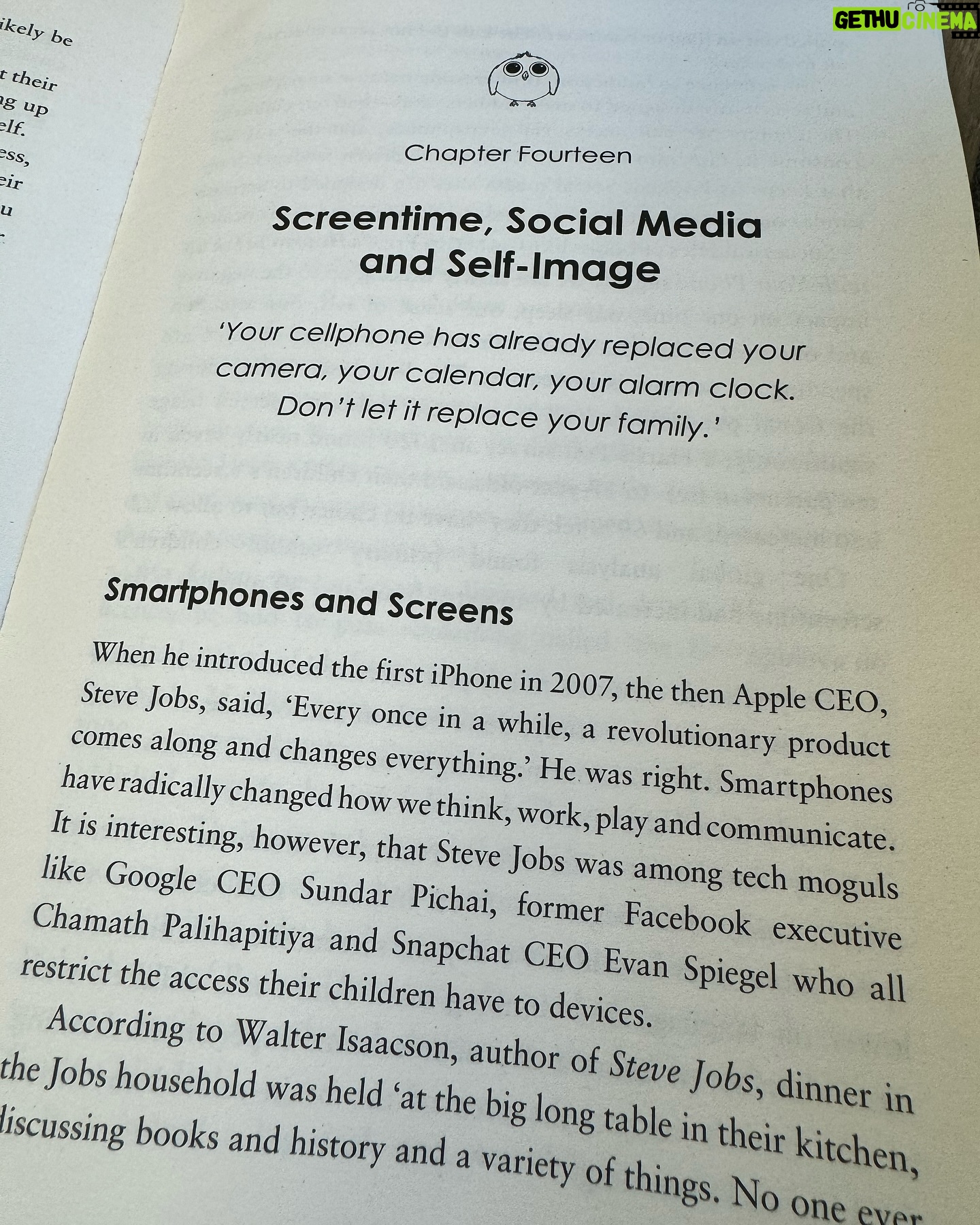
1.4K Likes – Kate Silverton Instagram
Caption : En route to @thismorning my book ‘there’s still no such thing as naughty ‘ in hand … I’ll share some of the research I did for the book that reveals the true impact of too much screen time on our children’s still developing brains. I’ll be talking about #smartphone & #screentimealternatives as we hear from the Headteacher Rachel Harper at St Patrick’s National School, Greystones who has led the charge for a community ‘smartphone voluntary code’ having seen increasing levels of anxiety in her primary pupils with their use. Would you like to see a similar code adopted at your child’s primary school? Indeed across your entire community ? Leave a 👍🏼 or 👎🏻 in the comments .. Hope you can join us @thismorning with @alisonhammond55 and @dermotoleary soonLikes : 1449

1.4K Likes – Kate Silverton Instagram
Caption : Merry Christmas to all my dear followers and friends! I hope this Christmas brings everything you’ve wished for—the magic of time with your children and those precious moments of self-care, too. I am so incredibly grateful for all your support and love this past year. Knowing that my work is helping parents and their families means the world to me, and I’m excited to do even more in 2025 to support you. Wishing you and your loved ones a joyful holiday season. Merry Christmas from my family to yours. With love, Kate xxx #merrychristmas #katesilvertonLikes : 1434

1.4K Likes – Kate Silverton Instagram
Caption : Why do I say that teaching our children the ‘art’ of emotional regulation is key to their future mental health … ? Google emotional dysregulation and you will find references to a ‘mental health symptom’ that involves trouble in controlling emotions – which can lead to ‘behavioral ER strategies that are harmful, can include (but are not limited to): drinking alcohol to cope with problems, binge eating, extreme social reassurance seeking, and non-suicidal self-injuries’ Being able to regulate our emotions is a vital skill for LIFE. It enables us to experience the highs as well as the lows without ‘tipping over’ in between. We can LEARN this skill and we can teach our children too I wrote my book to explain the science behind emotional dysregulation – and all the practical tips, tools and scripts to help support our children if and when they’re ‘spinning out’ as much as it can help us when we are feeling more dysregulated too. I explain the science using my super simple parenting concept ‘the lizard, baboon and wise owl way’ It instantly explains why your brain and nervous system respond they do when you’re under duress, or if you are frightened or ‘triggered’ Understanding the science allows us to work WITH our nervous system – and flex our ‘wise owl’ ( the prefrontal cortex in reality ) to quickly bring ourselves back to balance … This is how we achieve good mental health .. And it is here that we may support our children’s good future mental health too #parenting #parentingtips #mentalhealth #neuroscience #neurobiology #katesilverton #theresstillnosuchthingasnaughty #emotionalregulation #nervoussystemLikes : 1430

1.4K Likes – Kate Silverton Instagram
Caption : A VERY windy and spontaneous live about child ANXIETY .. I’ll get home and do a more considered one shortly – please send questions and I’ll pick one to give a demonstration of tips to help our children #childrensmentalhealthLikes : 1428

1.4K Likes – Kate Silverton Instagram
Caption : #parentinghacks #parenting #parentingtips The READATHON! How to get your kids to sleep with ease … top tips from my book ‘there’s STILL no such thing as naughty’ Xx @lfmarkey showing off my latest purchase from you – my first pair of dungarees 😆Likes : 1402

1.4K Likes – Kate Silverton Instagram
Caption : Research shows that toddlers need help with their emotional regulation EVERY TWENTY SECONDS ! Emotions like disappointment, fear, anger as well as JOY and excitement can all trigger what’s known as our ‘stress response’ and can be overwhelming for a small child ( and even our teens sometimes ) to handle on their own. Our children’s brains don’t finish their developmental journey until they are in their twenties … so what we do now to help support put children to experience life’s ups and downs counts. Meeting our children’s distress or anger with compassion and understanding helps them to model it for themselves in future. Emotional regulation is our ability to experience all the highs and lows of life so it’s key for future mental health … it’s a key part of parenting – I’d love to hear your thoughts in the comments .. and the poll – is this something you knew ? I was blown away as a parent when I first learned about brain development and it helped me with my parenting, just as it informs my work as a child therapist today. Do let me know if you found this helpful and if you would like more advice and content, I share scripts, tips and tools to help in my latest book ‘there’s STILL no such thing as naughty’ out on 28th March ..🙏🏼 #parenting #parentingtips #mentalhealth #mentalhealthawareness Were you aware of this research?Likes : 1396

1.4K Likes – Kate Silverton Instagram
Caption : All animals have a library of responses they turn to when feeling threatened or afraid. Typically we may experience fight / flight / but there’s also freeze / flop and faint too … When we have too much on our plate our whole system can feel under threat and we may experience that sense of flop, or ‘collapse’, it’s a sign that our nervous system needs is signalling that we need to ‘lie low’ for a bit, in order to feel safe. Listening to our nervous system means we can take action – to rest – which for busy parents I know can feel nigh on impossible – but having a few early nights, sitting and reading with the kids rather than worrying about the ‘to do list’ .. can help to soothe your nervous system and recharge … trusting that everything will get done in time Once we are rested we can move through that sense of ‘flop’ by taking small steps of action. We can start by considering the small jobs we can get done in a minute. Maybe it’s wiping down some dusty shelves as I’ve just done, making the bed, or ticking off just one thing on the ‘to do ‘ list … these small steps of action can help us to feel more empowered and able to move through that ‘overwhelmed’ state .. When did you last listen to your nervous system and hear that message to REST – to ‘lie low’ for a bit? TAG anyone who needs to see this and let me know what steps you take / will take to gift yourself some rest this week ♥️🙏🏼 #overwhelm #anxiety #anxietyrelief #mentalhealth #parenting #selfcare #nervoussystemLikes : 1386

1.4K Likes – Kate Silverton Instagram
Caption : All animals draw on a number of defence mechanisms when stressed / afraid … one of them is to retreat, pull back, or even ‘flop / faint’ to ‘play dead When we are on overwhelm – our nervous system may encourage us to do the same If you are on overwhelm ( and with the school holidays who isn’t?) Listen to your body – what is it telling you, you need right now ? As a parent / carer we still have a responsibility to those dependent on us – but you can still take time for you, even with your children alongside. You might 👉Suggest everyone gets outside for a walk 👉Suggest a game – like building blocks or @lego anything that allows you to be physically present but for your mind to have the space to switch off a little 👉do some art together – finger painting / crayons / drawing / painting is very soothing for the part of our brain where anxiety originates 👉have an afternoon nap all together / get an early night ( I talk about the power of ‘readathons’ in my book ‘there’s STILL no such thing as naughty’ 👉watch a movie – the ‘to do’ list can wait another day And a good start is by taking two deep breaths in as you read these last few lines .. and let out one long breath – with a little moan if it feels right to do so .. you’re here, you’re ok, and ‘this too shall pass’ Life can feel complex and complicated, which is why we experience anxiety and ultimately overwhelm Taking small steps where we can, to allow ourselves a pause, and to acknowledge what we feel within, can offer us the space to come back to balance, ready to go again TAG anyone you think needs to see this – and save it for yourself – it’s not that we won’t feel overwhelmed at times – it’s how we work with it that counts 💪🏼♥️ Let me know what you’re going to do today – to allow yourself to pause .. #parenting #overwhelm #anxiety #summerholidaysLikes : 1378















